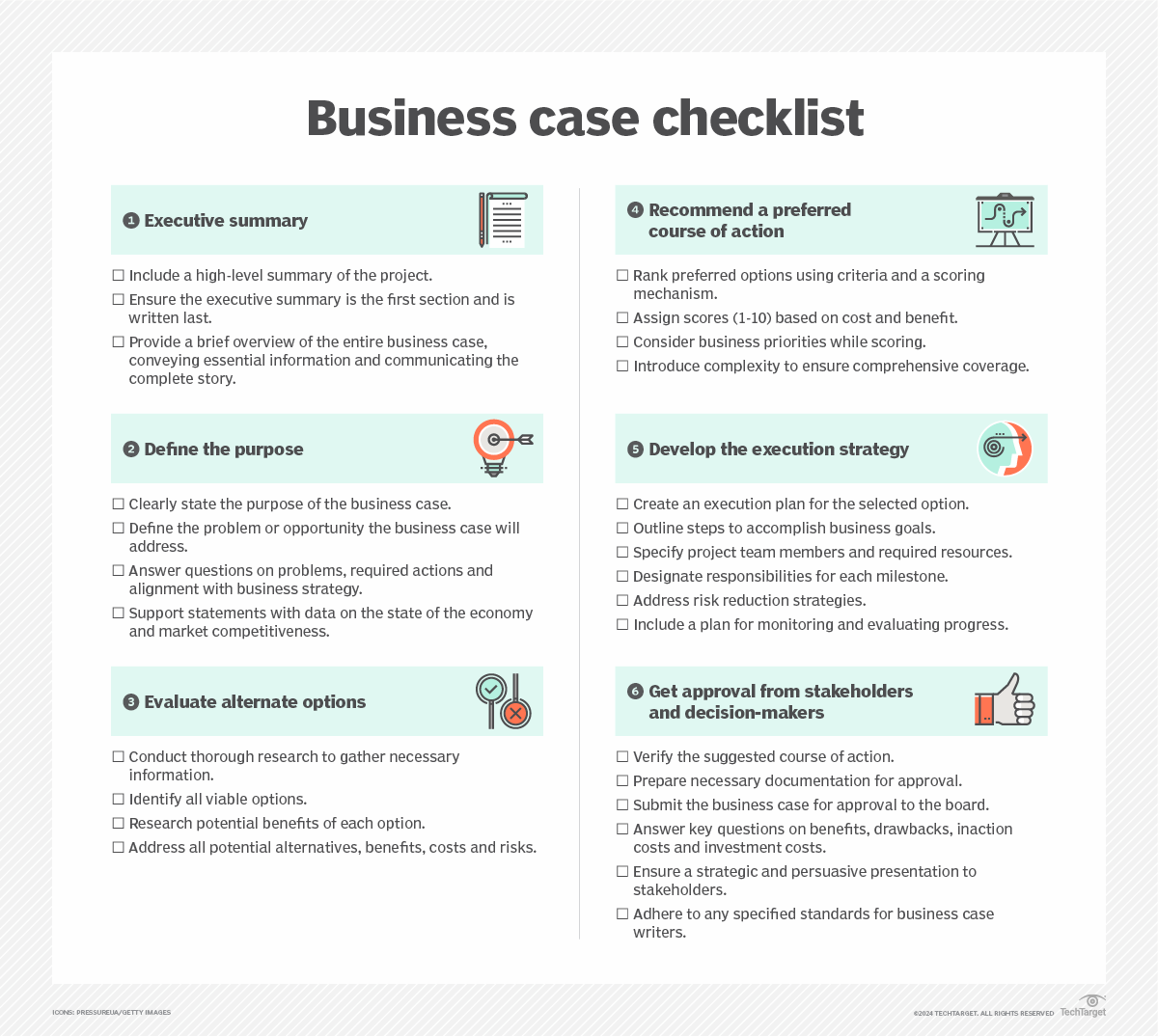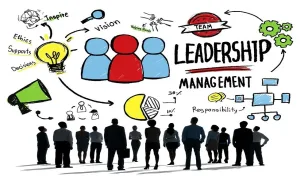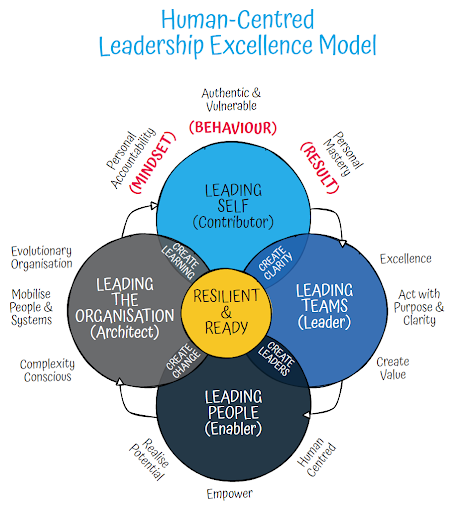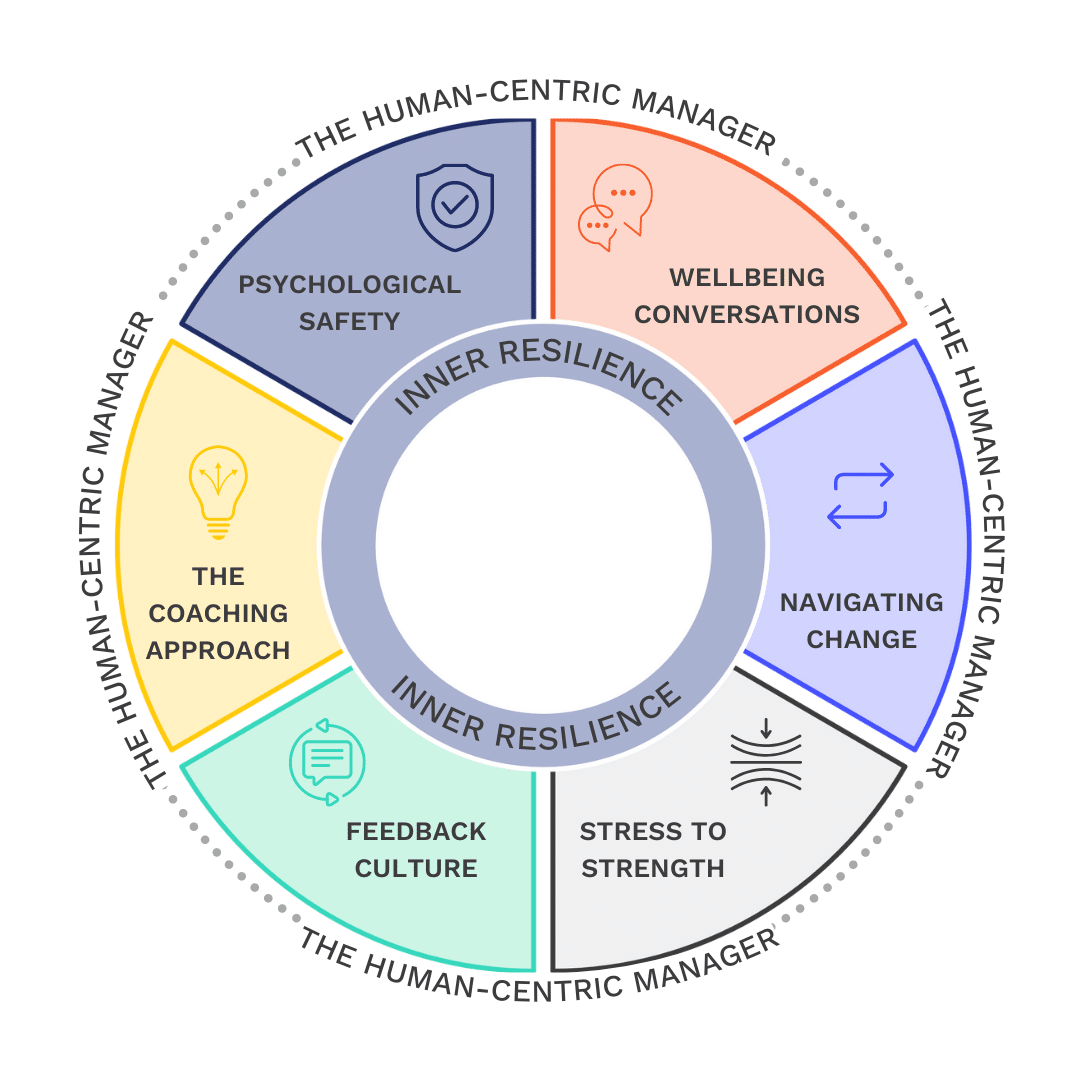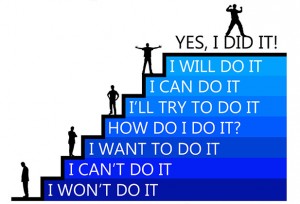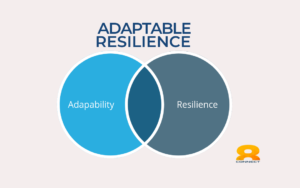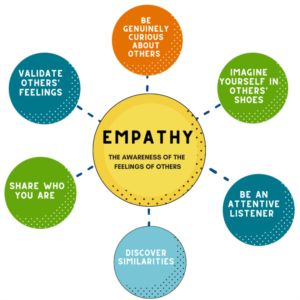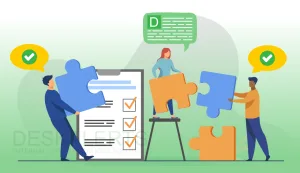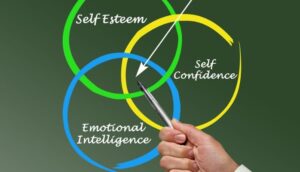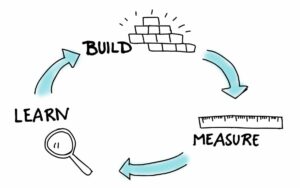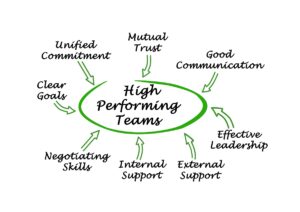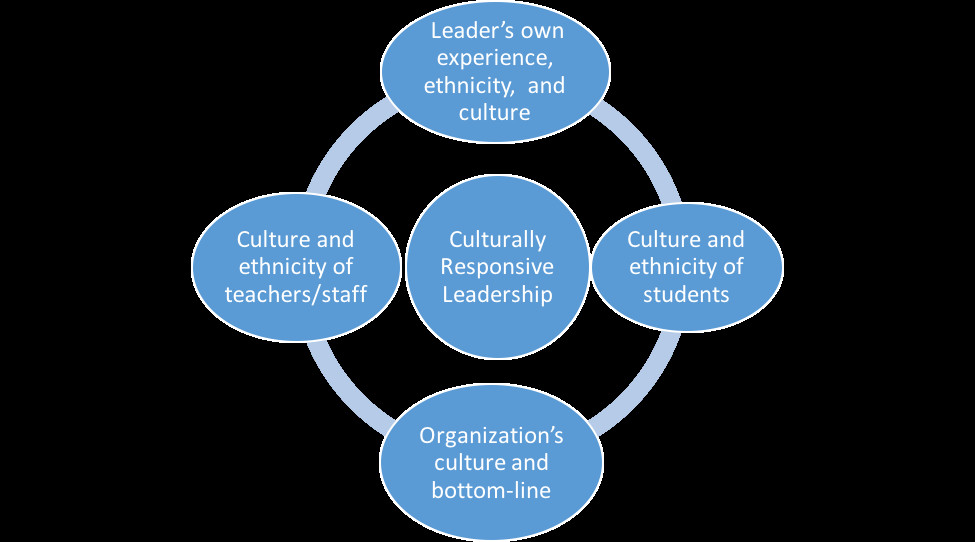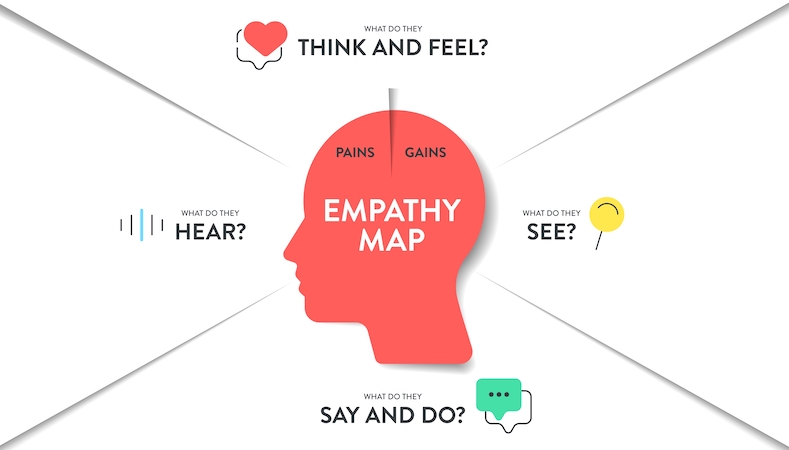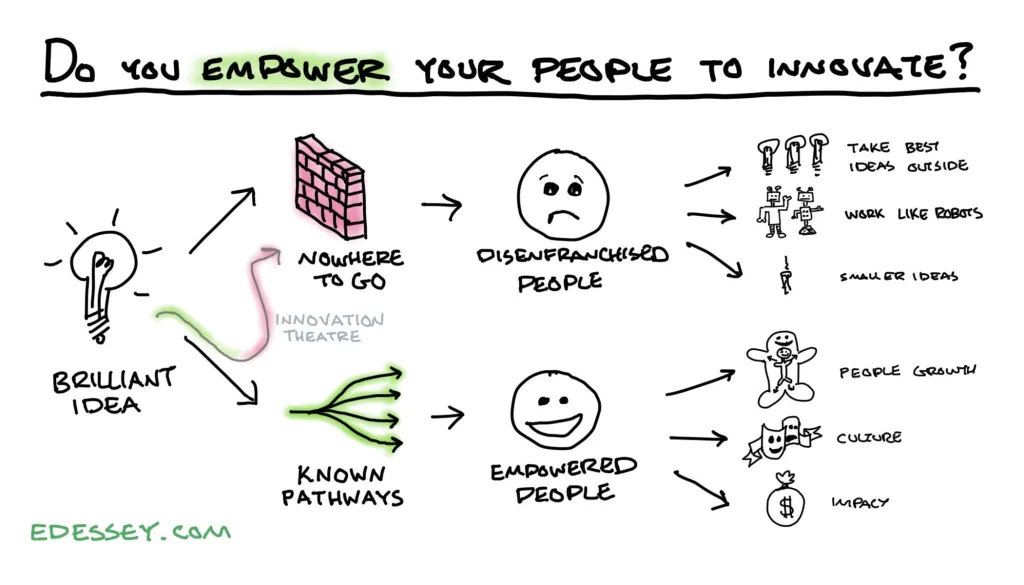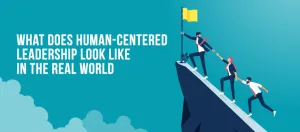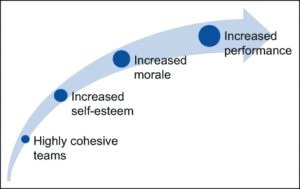Future-Ready Leadership – WDP1 (Business Case)

The Appleton Greene Corporate Training Program (CTP) for Future-Ready Leadership is provided by Mr. Stone Certified Learning Provider (CLP). Program Specifications: Monthly cost USD$2,500.00; Monthly Workshops 6 hours; Monthly Support 4 hours; Program Duration 12 months; Program orders subject to ongoing availability.
If you would like to view the Client Information Hub (CIH) for this program, please Click Here
Learning Provider Profile

Mr. Stone is an American business leader with a passion for nurturing healthy, high-growth teams powered by direct, open dialogue. He is an irrepressible optimist who believes strongly that in the business of life, we all either win together, or we all lose together.
Mr. Stone is the CEO of BehavioralOS®, a global agency that provides leaders with a proven method developed by an MIT behavioral scientist for proliferating the two most important ingredients for any company’s success: trust and respect. He draws on broad experience over twenty-five years as a business development professional, entrepreneur, and former practicing attorney. He brings a global perspective to all of his engagements, having spent over fifteen years of his life living in Europe and Asia.
Mr. Stone has been a speaker and facilitator on leadership and communication at various events and conferences including the Organization Development Network Conference in the U.S. He has also provided executive facilitation and consulting services in Europe and Asia.
Mr. Stone earned his B.A. in History from the Clark Honors College at the University of Oregon, and his Juris Doctor degree from the William S. Richardson School of Law, University of Hawai’i. He currently lives in the New York City area.
MOST Analysis
Mission Statement
Get a clear view of the performance-based benefits of mastering human skills and mindset needed to succeed as a leader in the 21st Century. The hard impact of so-called ‘soft skills’ is increasingly apparent. In this module we take a look at the research and topics that differentiate leaders in an era when the ability to communicate with both clarity and sensitivity is the name of the game. This module covers the necessity of practicing self-awareness and developing EQ to progress toward your leadership potential and inspire greatness in others.
Objectives
01. Introduction To Human-Centered Leadership: departmental SWOT analysis; strategy research & development. Time Allocated: 1 Month
02. The Science Behind Behavior: departmental SWOT analysis; strategy research & development. Time Allocated: 1 Month
03. Building Clarity: departmental SWOT analysis; strategy research & development. Time Allocated: 1 Month
04. Confidence Through Empowerment: departmental SWOT analysis; strategy research & development. Time Allocated: 1 Month
05. Culture of Continuous Learning: departmental SWOT analysis; strategy research & development. Time Allocated: 1 Month
06. Effective Feedback: departmental SWOT analysis; strategy research & development. Time Allocated: 1 Month
07. Resilience and Adaptability: departmental SWOT analysis; strategy research & development. 1 Month
08. Building Trust: departmental SWOT analysis; strategy research & development. Time Allocated: 1 Month
09. Leading with Empathy: departmental SWOT analysis; strategy research & development. Time Allocated: 1 Month
10. Driving Innovation: departmental SWOT analysis; strategy research & development. Time Allocated: 1 Month
11. Navigating Conflict: departmental SWOT analysis; strategy research & development. Time Allocated: 1 Month
12. Human-Centered Leadership: departmental SWOT analysis; strategy research & development. Time Allocated: 1 Month
Strategies
01. Introduction To Human-Centered Leadership: Each individual department head to undertake departmental SWOT analysis; strategy research & development.
02. The Science Behind Behavior: Each individual department head to undertake departmental SWOT analysis; strategy research & development.
03. Building Clarity: Each individual department head to undertake departmental SWOT analysis; strategy research & development.
04. Confidence Through Empowerment: Each individual department head to undertake departmental SWOT analysis; strategy research & development.
05. Culture of Continuous Learning: Each individual department head to undertake departmental SWOT analysis; strategy research & development.
06. Effective Feedback: Each individual department head to undertake departmental SWOT analysis; strategy research & development.
07. Resilience and Adaptability: Each individual department head to undertake departmental SWOT analysis; strategy research & development.
08. Building Trust: Each individual department head to undertake departmental SWOT analysis; strategy research & development.
09. Leading with Empathy: Each individual department head to undertake departmental SWOT analysis; strategy research & development.
10. Driving Innovation: Each individual department head to undertake departmental SWOT analysis; strategy research & development.
11. Navigating Conflict: Each individual department head to undertake departmental SWOT analysis; strategy research & development.
12. Human-Centered Leadership: Each individual department head to undertake departmental SWOT analysis; strategy research & development.
Tasks
01. Create a task on your calendar, to be completed within the next month, to analyze Introduction To Human-Centered Leadership.
02. Create a task on your calendar, to be completed within the next month, to analyze The Science Behind Behavior.
03. Create a task on your calendar, to be completed within the next month, to analyze Building Clarity.
04. Create a task on your calendar, to be completed within the next month, to analyze Confidence Through Empowerment.
05. Create a task on your calendar, to be completed within the next month, to analyze Culture of Continuous Learning.
06. Create a task on your calendar, to be completed within the next month, to analyze Effective Feedback.
07. Create a task on your calendar, to be completed within the next month, to analyze Resilience and Adaptability.
08. Create a task on your calendar, to be completed within the next month, to analyze Building Trust.
09. Create a task on your calendar, to be completed within the next month, to analyze Leading with Empathy.
10. Create a task on your calendar, to be completed within the next month, to analyze Driving Innovation.
11. Create a task on your calendar, to be completed within the next month, to analyze Navigating Conflict.
12. Create a task on your calendar, to be completed within the next month, to analyze Human-Centered Leadership.
Introduction
In the rapidly evolving landscape of the 21st century, where technological advancements and global interconnectedness redefine industries and workplaces, the role of leadership has undergone a profound transformation. Gone are the days when technical prowess and hard skills alone could propel an individual to the upper echelons of leadership. Today, the most influential leaders are those who master the human skills and mindset necessary to navigate complex interpersonal dynamics, foster collaboration, and inspire excellence within their teams. This module delves into the performance-based benefits of cultivating these so-called “soft skills,” which, despite the misnomer, have a hard and measurable impact on leadership success.
Understanding the critical role of human skills in leadership begins with recognizing the importance of emotional intelligence (EQ), self-awareness, and effective communication. Research consistently shows leaders who excel in these areas are better equipped to manage their teams, build strong relationships, and drive their organizations toward sustained success. In an era where the ability to connect with others on a human level is paramount, these skills have become indispensable.
Emotional intelligence, often referred to as EQ, is not just a buzzword, but the cornerstone of effective leadership. It empowers leaders with the ability to understand and manage their own emotions, as well as those of others. Leaders with high EQ can navigate the complexities of human behavior, recognizing the impact of their actions and words on their team members. They are adept at reading the room, sensing when morale is low or when an individual needs support, and they know how to respond in ways that motivate and uplift. In contrast, leaders who lack emotional intelligence may struggle to maintain harmony within their teams, leading to conflicts, reduced productivity, and high turnover rates. Understanding and mastering emotional intelligence can truly transform a leader’s capabilities and impact.
Self-awareness, a key component of emotional intelligence, is another vital trait for modern leaders. Self-aware leaders deeply understand their strengths, weaknesses, values, and motivations. This self-knowledge allows them to lead with authenticity and integrity, making decisions that align with their organizations’ core principles and broader goals. Moreover, self-aware leaders are more open to feedback, essential for personal growth and development. By acknowledging their limitations and seeking input from others, they not only improve themselves but also foster a culture of continuous improvement within their teams, making everyone feel committed to their personal growth.
Effective communication is the third pillar of successful leadership in the 21st century. In an age where clear and sensitive communication is crucial, leaders must convey their vision, expectations, and feedback in ways that resonate with their audience. This requires not only clarity of expression but also the ability to listen actively and empathetically. Leaders who communicate well can bridge gaps in understanding, resolve conflicts efficiently, and foster a sense of trust and collaboration among their team members. Effective communication is not just a tool but a bridge that connects leaders with their teams, making them feel more engaged and connected.
This module provides a comprehensive overview of these critical human skills and how mastering them can enhance leadership performance. By exploring the latest research and best practices in emotional intelligence, self-awareness, and communication, participants will gain valuable insights into what it takes to be a successful leader in the 21st century. Through practical exercises and real-world examples, this module will equip leaders with the tools they need to inspire greatness in themselves and others, ensuring they are well-prepared to meet the challenges of today’s dynamic and ever-changing work environment.
Leadership Evolution: The Rise of Human-Centric Skills in the 21st Century
The evolution of leadership skills and the increasing emphasis on human-centric qualities such as emotional intelligence (EQ), self-awareness, and effective communication are deeply rooted in historical shifts in organizational structures, societal values, and the broader economic landscape. Examining the historical context that has shaped modern leadership paradigms is essential to understanding the importance of these so-called “soft skills.”
In the early industrial age, leadership was primarily associated with authority, technical expertise, and the ability to manage processes efficiently. Organizations were typically hierarchical during this period, and leadership was often synonymous with control. The dominant management theories of the time, such as Frederick Taylor’s scientific management, emphasized efficiency, standardization, and the division of labor. Leaders were seen as the driving force behind productivity, focusing on optimizing work processes and ensuring that employees followed established procedures. The human element in leadership was primarily secondary to achieving measurable outcomes, with little consideration given to workers’ emotional and psychological needs.
As the 20th century progressed, several key developments challenged this narrow view of leadership. The aftermath of World War II, the rise of the service economy, and the increasing complexity of global markets all contributed to a shift in leadership thinking. The emergence of human relations theories, most notably those championed by Elton Mayo and his colleagues during the Hawthorne Studies in the 1930s, marked a turning point. These studies highlighted the significance of social factors in the workplace and demonstrated that employee morale and group dynamics profoundly impacted productivity. As a result, there was a growing recognition that effective leadership required more than just technical knowledge—it also needed an understanding of human behavior and the ability to motivate and engage employees.
The latter half of the 20th century saw further developments in leadership theory, particularly with the rise of transformational and servant leadership models. Transformational leadership, as articulated by James MacGregor Burns and later Bernard Bass, emphasized the role of leaders in inspiring and motivating their followers to achieve higher levels of performance. This approach highlighted the importance of vision, communication, and emotional intelligence in leadership. Servant leadership, introduced by Robert Greenleaf in the 1970s, took this a step further by advocating for leaders who prioritize the needs of their followers, fostering a culture of trust, empathy, and collaboration.
These shifts in leadership theory were paralleled by broader societal changes, including the civil rights movement, the rise of feminism, and the growing emphasis on diversity and inclusion in the workplace. As organizations became more diverse and globalized, the ability to understand and manage diverse perspectives and cultural differences became increasingly important. The demand for leaders who could navigate these complexities with sensitivity and emotional intelligence grew, leading to the recognition of the value of so-called “soft skills.”
In the 21st century, the rapid pace of technological change, the rise of remote work, and the increasing importance of innovation and creativity have amplified the need for human-centric leadership. As traditional hierarchical structures give way to more flexible and collaborative models, leaders must now rely on their ability to connect with and inspire others rather than simply exerting authority. Emotional intelligence, self-awareness, and effective communication have become essential tools for leaders who wish to thrive in this new environment.
In summary, the historical context of leadership evolution underscores the transition from focusing on technical skills and authority to a more nuanced understanding of leadership as a human-centered practice. The growing emphasis on emotional intelligence, self-awareness, and communication reflects the changing demands of the modern workplace and the recognition that these skills are critical for effective leadership in today’s complex and dynamic world.
The Human-Centric Future of Leadership: Navigating the 21st Century with Emotional Intelligence and Empathy
As we move further into the 21st century, the leadership landscape continues to evolve at an unprecedented pace. The traditional leadership paradigms that once emphasized technical skills, hierarchical authority, and command-and-control structures are being replaced by a new emphasis on human-centric skills. These skills, often called “soft skills,” include emotional intelligence (EQ), self-awareness, and effective communication. They have proven critical for leaders navigating the complexities of modern organizations, which are increasingly characterized by technological advancements, global interconnectedness, and diverse workforces. Looking ahead, the future of leadership will be defined by the mastery of these human skills, as they will be essential for leaders to inspire, motivate, and guide their teams through the challenges of an ever-changing world.
The Imperative for Emotional Intelligence in Future Leadership
Emotional intelligence (EQ) is emerging as a cornerstone of effective leadership in the 21st century. As technology advances, with artificial intelligence (AI) and automation reshaping industries, the uniquely human ability to connect emotionally with others becomes even more valuable. EQ, which involves the ability to recognize, understand, and manage one’s emotions and the emotions of others, is critical for fostering a positive organizational culture, building strong relationships, and leading diverse teams.
In the future, leaders with high EQ will be indispensable. As remote work becomes more common and global teams become the norm, the ability to empathize with team members from different cultural backgrounds and to navigate the nuances of virtual communication will be crucial. Leaders who excel in EQ will be better equipped to manage their teams’ emotional and psychological well-being, which is increasingly recognized as a critical driver of productivity and job satisfaction.
Moreover, the rise of the gig economy and the trend toward more flexible work arrangements will require leaders to build trust and loyalty with team members who may not be full-time employees. EQ will be essential in creating a sense of belonging and commitment among these workers, ensuring they remain engaged and motivated despite the lack of traditional employment structures.
Self-Awareness and Continuous Learning: The Hallmarks of Future Leaders
Self-awareness, a critical component of emotional intelligence, will be another defining characteristic of successful leaders in the future. As the business environment becomes more volatile and uncertain, leaders who deeply understand their strengths, weaknesses, values, and motivations will be better equipped to navigate these challenges with authenticity and integrity.
In the future, self-aware leaders will be committed to continuous learning and personal growth. The rapid pace of technological change and the increasing complexity of global markets mean that leaders must be agile and adaptable, constantly updating their skills and knowledge. Leaders aware of their limitations and actively seeking feedback will create a culture of continuous improvement within their organizations, fostering innovation and resilience.
Furthermore, self-awareness will be critical in helping leaders make ethical decisions in an increasingly complex world. As organizations face growing scrutiny from stakeholders, including customers, employees, and regulators, leaders must align their decisions with their core values and the broader mission of their organizations. Self-aware leaders will be better positioned to navigate ethical dilemmas and to lead with transparency and accountability, building trust and credibility with their stakeholders.
The Role of Effective Communication in Shaping the Future of Leadership
Effective communication is the third pillar of successful leadership in the 21st century and will continue to be a critical skill in the future. As organizations become more decentralized and diverse, leaders must be able to convey their vision, goals, and expectations clearly and persuasively to a wide range of audiences. This requires not only clarity of expression but also the ability to listen actively and empathetically, ensuring that all voices are heard and valued.
In the future, communication will be increasingly mediated by technology, with virtual meetings, digital collaboration tools, and social media playing a central role in how leaders interact with their teams and stakeholders. Leaders who use these tools to foster open and inclusive communication will be better equipped to build trust, resolve conflicts, and drive collaboration across geographic and cultural boundaries.
As organizations face growing pressure to be transparent and socially responsible, leaders must communicate their values and commitments effectively to internal and external audiences. This will require high authenticity and the ability to engage in meaningful dialogue with stakeholders, addressing their concerns and building consensus around shared goals.
The Future of Leadership Development: Fostering Human-Centric Skills
As the importance of human-centric skills becomes more apparent, organizations’ approaches to developing their leaders will also need to evolve. Traditional leadership development programs, which often focus on technical skills and management techniques, must be reimagined to prioritize cultivating emotional intelligence, self-awareness, and effective communication.
In the future, leadership development will likely become more personalized and experiential, emphasizing real-world application and self-reflection. Organizations must create environments where emerging leaders can practice and refine their human-centric skills, receiving feedback and coaching to help them grow. This could involve immersive experiences, such as role-playing exercises, simulations, and cross-functional projects, where leaders are challenged to apply their skills in dynamic and unpredictable situations.
Furthermore, organizations must recognize that leadership development is not a one-time event but an ongoing process. As the demands on leaders evolve, continuous learning and development will be essential for maintaining leadership effectiveness. This could involve regular coaching and mentoring and opportunities for leaders to engage in reflective practices, such as journaling, meditation, or peer discussions, to deepen their self-awareness and emotional intelligence.
The Impact of Globalization and Diversity on Future Leadership
Globalization and the increasing workforce diversity will continue to shape the future of leadership. As organizations operate in a more interconnected and multicultural world, leaders must manage and leverage diversity to drive innovation and performance.
In the future, leaders who can effectively navigate cultural differences and are committed to creating inclusive environments will have a significant advantage. This will require a deep understanding of different cultural norms and values and the ability to communicate and collaborate across cultural boundaries. Leaders must be culturally agile, able to adapt their leadership style to other contexts, and engage with a diverse range of stakeholders.
Moreover, as organizations become more diverse, leaders will need to champion inclusion, actively working to create environments where all employees feel valued and empowered to contribute. This will involve challenging unconscious biases, fostering open dialogue, and creating opportunities for underrepresented groups to advance and thrive within the organization.
The Role of Technology in Shaping Future Leadership
Technology will continue to play a central role in shaping the future of leadership. As AI, automation, and data analytics become more integrated into business operations, leaders must understand how to leverage these technologies to enhance decision-making, drive efficiency, and create value for their organizations.
Leaders who can effectively integrate technology into their leadership practices will have a significant advantage in the future. This could involve using data analytics to gain insights into team dynamics and performance, using AI to automate routine tasks and free up time for strategic thinking, or using digital platforms to enhance communication and collaboration across the organization.
However, as technology becomes more pervasive, leaders must also be mindful of its impact on employees and society. This will require balancing leveraging technology for business success and ensuring it is used ethically and responsibly. Leaders must consider the social implications of technological advancements, such as the impact on jobs, privacy, and inequality, and make decisions that reflect a commitment to the well-being of their employees and the broader community.
Conclusion: The Human-Centric Future of Leadership
As we look toward the future, it is clear that the nature of leadership is evolving in response to 21st-century demands. The leaders of tomorrow will be those who master the human-centric skills of emotional intelligence, self-awareness, and effective communication, which are essential for navigating the complexities of a rapidly changing world.
In the future, leaders who excel in these areas will be better equipped to inspire and motivate their teams, build strong and inclusive organizational cultures, and drive sustainable success in an increasingly interconnected and diverse global economy. As technology continues to reshape industries and workforces, the uniquely human abilities to connect, empathize, and lead with authenticity will become even more valuable, defining the future of leadership in the 21st century and beyond.
Organizations that recognize the importance of these skills and invest in developing their leaders will be well-positioned to thrive in the future, fostering environments where innovation, collaboration, and excellence can flourish. As we move forward, the emphasis on human-centric leadership will enhance organizational performance and contribute to a more equitable, inclusive, and sustainable world.

Case Study: Google’s Leadership Development Program
Background: In the early 2000s, Google faced a challenge that many fast-growing tech companies encounter: a lack of leadership development among its rapidly expanding workforce. While Google had hired some of the brightest minds in engineering and technology, many of these individuals lacked the human skills necessary for effective leadership. The company recognized that technical expertise alone would not be enough to drive success in the increasingly complex and interconnected world of the 21st century.
Problem: Google’s engineers were often promoted into leadership roles based on their technical skills, but many struggled with the human side of leadership, such as communication, empathy, and self-awareness. The absence of these skills led to disengaged teams, higher turnover rates, and a lack of innovation, as team members felt undervalued and misunderstood by their leaders.
Solution: To address this issue, Google launched Project Oxygen in 2008. The initiative aimed to identify the behaviors of effective managers and develop a leadership development program that would help managers at Google master the human skills needed for success. The program focused on the importance of “soft skills” like emotional intelligence (EQ), self-awareness, and effective communication.
Google’s leadership development program included the following components:
1. Research and Data Collection: Google’s People Operations team analyzed over 10,000 observations of Google managers, including performance reviews, feedback surveys, and interviews. The data revealed eight key behaviors that were consistently found in the most effective leaders. These behaviors emphasized the importance of emotional intelligence, clear communication, and the ability to inspire and motivate teams.
2. Training and Development: Google designed training programs that focused on building self-awareness, emotional intelligence, and communication skills. Workshops and seminars were held to help managers understand their strengths and weaknesses, improve their listening skills, and learn how to give constructive feedback with empathy and clarity.
3. Coaching and Support: Google provided ongoing coaching and support to managers as they applied their new skills. This included regular check-ins with HR specialists, peer mentoring, and access to resources that reinforced the importance of soft skills in leadership.
Results:
The impact of Google’s leadership development program was significant:
• Improved Employee Engagement: Teams led by managers who had participated in the program reported higher levels of engagement and job satisfaction. Employees felt more understood and valued, leading to lower turnover rates and increased loyalty to the company.
• Enhanced Innovation: By fostering a culture of psychological safety, where team members felt comfortable sharing ideas without fear of judgment, Google saw an increase in innovation. Teams were more collaborative and creative, leading to the development of new products and solutions.
• Better Performance: Managers who excelled in soft skills were more effective at setting clear expectations, providing feedback, and motivating their teams. This led to improved team performance and a more positive working environment overall.
Executive Summary
Chapter 1: Introduction To Human-Centered Leadership
Human-centered leadership stands in stark contrast to traditional models that prioritize operational efficiency, financial performance, or hierarchical authority. Instead, it places individuals at the heart of organizational success. This transformative shift in leadership philosophy recognizes that organizations are fundamentally human systems, and their success is deeply intertwined with the well-being and development of the people who drive them.
Human-centered leadership is an active practice that not only values and respects individuals but also empowers them. Leaders adopting this approach are not just focused on achieving business goals, but also on fostering positive relationships, promoting inclusivity, and ensuring that team members find meaning and purpose in their work. This leadership style requires a continuous effort to nurture a workplace culture where everyone can contribute their best work, feeling inspired and motivated.
Empathy is the cornerstone of human-centered leadership. It requires leaders to actively listen to their team members, understand their needs and perspectives, and show genuine concern for their well-being. This empathetic approach is vital for building trust, the bedrock of effective teamwork. Trust fosters open communication, collaboration, and innovation, as employees feel safe to express ideas and take risks. In a human-centered leadership model, empathy is not just a nice-to-have; it’s a must for creating a supportive and productive work environment, and it’s the leaders who play a crucial role in this.
Another vital aspect of human-centered leadership is the emphasis on personal and professional development. Leaders prioritizing this principle recognize that an organization can only grow as fast as its people. By providing opportunities for learning, mentoring, and career advancement, they ensure that employees continually develop and reach their full potential. This focus on development enhances individual performance and contributes to the organization’s overall success.
Inclusivity and diversity are also central to human-centered leadership. Leaders who embrace these values understand the importance of diverse perspectives and create spaces where all voices are heard and respected. By fostering a culture of inclusivity, they enhance decision-making processes, ensuring that all perspectives are considered and respected. This commitment to diversity not only enriches the organizational environment but also makes every individual feel valued and respected, leading to more innovative solutions and a stronger sense of employee belonging.
Human-centered leadership also ensures that organizational goals are in harmony with employee well-being. This approach guarantees that the pursuit of productivity, profitability, and growth does not come at the expense of the individuals who contribute to these goals. Leaders who embrace this philosophy are mindful of the long-term impact of their decisions on employees and the broader community, striving to strike a balance between organizational success and the well-being of their people. This ethical and sustainable approach is a hallmark of human-centered leadership.
Human-centered leadership is a paradigm that redefines the role of leaders in modern organizations. Leaders can cultivate more resilient, innovative, and engaged teams by emphasizing empathy, trust, development, inclusivity, and ethical decision-making. This leadership style enhances employee satisfaction and retention and drives sustainable success in an increasingly complex and dynamic world. As organizations navigate the challenges of the modern business environment, human-centered leadership will be crucial for building thriving, resilient, and prosperous teams.

Chapter 2: The Science Behind Behavior
Human behavior, a topic of deep interest for scholars across psychology, sociology, and neuroscience, is shaped by a complex interplay of biological, psychological, and environmental factors. These intricate dynamics influence individuals’ thinking, acting, and adapting to changes. The study of human behavior, encompassing everything from genetics and brain function to cognitive processes and social influences, provides valuable insights into the human mind and how behavior evolves.
The brain, a highly sophisticated organ, is central to understanding human behavior. It processes information, regulates emotions, and controls actions, with neurotransmitters playing a crucial role. Neurotransmitters like dopamine and serotonin significantly influence mood, motivation, and decision-making. For instance, dopamine is linked to reward-driven behaviors, while serotonin affects mood regulation, shaping how individuals respond to various stimuli. Understanding these neurochemical processes is essential for unraveling the mysteries of human behavior and how it changes over time.
Cognitive processes also play a significant role in shaping behavior. Cognitive psychology examines how people perceive, think, and remember, affecting their actions. Cognitive biases, such as confirmation bias or the availability heuristic, can lead individuals to make irrational decisions or cling to false beliefs, thus influencing their behavior in predictable ways. By becoming aware of these biases, individuals can better manage their influence, leading to more rational and adaptive behaviors.
Social and environmental factors are equally important in shaping human behavior. Social learning theory, for example, suggests that people learn behaviors by observing others, particularly those they consider role models. This concept helps explain the strong impact of cultural norms, peer influences, and media on individual behavior. Environmental factors like socioeconomic status, education, and family dynamics also create external conditions that facilitate or hinder behavioral change.
The science of behavior change examines explicitly how individuals can modify their habits, thoughts, and actions over time. This field integrates psychology, neuroscience, and behavioral economics principles to develop strategies that promote lasting change. Techniques such as cognitive-behavioral therapy (CBT), motivational interviewing, and behavioral nudges have been effective in helping individuals overcome negative behaviors and adopt healthier living patterns.
Understanding the science behind human behavior and change is vital for developing interventions that promote personal well-being, growth, and societal progress. By delving into why we behave like we do, scientists and practitioners can better guide individuals and communities toward positive transformation.
The psychology of change further explores how individuals experience, process, and adapt to change, whether in personal development, career transitions, or societal shifts. Cognitive dissonance, a key concept in this field, describes individuals’ discomfort when confronted with conflicting beliefs or behaviors, particularly during times of change. The stages of change model outlines how people progress through change, highlighting the importance of motivation and readiness.
Emotions play a significant role in how individuals react to change, with fear and anxiety often leading to resistance. However, positive emotions such as hope and excitement can also drive individuals to embrace change as an opportunity for growth. Personality traits and coping mechanisms further influence one’s adaptability, with social support playing a crucial role in easing the change process.
Understanding human behavior and the psychology of change provides crucial insights into how individuals navigate their environments and adapt to new circumstances. By leveraging this knowledge, strategies can be developed to foster positive behavioral changes, enhance well-being, and support personal and organizational growth.

Chapter 3: Building Clarity
In the volatile and ever-evolving business landscape, uncertainty is an unavoidable hurdle that can disrupt even the most meticulously planned strategies. Whether it’s due to economic shifts, technological advancements, fierce market competition, or unforeseen global events, the unpredictability of the business environment necessitates a focused approach to maintain direction and make informed decisions. In this context, creating a robust business case emerges as a pivotal tool, offering a clear path forward amidst uncertainty.
A business case is not just a document but a powerful decision-making tool. It serves as a comprehensive guide, outlining the rationale for a specific project or initiative. It meticulously details the expected benefits, costs, risks, and impacts, providing stakeholders with a thorough understanding of the project’s necessity, objectives, and alignment with the organization’s strategic goals. When decisions carry more significant risks in times of heightened uncertainty, a well-crafted business case becomes even more indispensable. It justifies resource allocation and provides a structured framework to evaluate potential outcomes, manage risks, and ensure all team members are on the same page with the organization’s goals. This empowerment of informed decision-making is crucial for maintaining control and confidence in uncertain times.
Creating clarity through a business case involves several critical steps. The first step is conducting a thorough assessment of the current situation. This involves gathering relevant data, analyzing market trends, and understanding the competitive landscape. By grounding the business case in factual and objective analysis, organizations can navigate uncertainty more effectively, providing a clearer picture of the challenges and opportunities.
The next element clearly articulates the proposed solution or course of action. This includes defining the project’s scope, setting strategic objectives, and outlining the expected outcomes. Clear articulation of the plan helps stakeholders grasp the proposal’s viability and potential impact, making it easier to support and execute, even in an unpredictable environment.
Risk management is another essential component in building clarity through a business case. A comprehensive business case does not avoid potential risks but addresses them directly, proposing mitigation strategies and contingency plans. This proactive approach builds confidence among stakeholders and ensures that the organization is prepared to adapt to changing circumstances without deviating from its core goals. This sense of preparedness and security is a crucial benefit of a well-structured business case.
Furthermore, aligning the business case with the broader organizational strategy is crucial. It ensures that the proposed initiative is not just a short-term fix, but a long-term contributor to the organization’s resilience and success. In times of uncertainty, organizations often make reactive, short-term decisions that may not align with their long-term vision. A well-constructed business case acts as a strategic anchor, keeping the organization focused on its overarching goals while navigating challenges.
In times of uncertainty, clarity becomes critical for effective decision-making and organizational success. A well-structured business case provides this clarity, offering a systematic approach to assessing situations, proposing solutions, managing risks, and aligning with strategic objectives. Doing so empowers organizations to make informed decisions and allocate resources wisely. This reassurance of a clear path forward is essential for maintaining focus and ensuring resilience and success even amid uncertainty.

Chapter 4: Confidence Through Empowerment
In today’s fast-paced business environment, fostering team confidence is crucial for driving success and innovation. Empowerment, a key strategy in achieving this, involves granting employees the authority, resources, and autonomy to make decisions, take initiative, and contribute meaningfully to the organization’s objectives. This could be through strategies such as self-managed teams, flexible work arrangements, or participative decision-making. This approach enhances individual performance and plays a significant role in cultivating a culture of trust and accountability, which is essential for sustaining long-term business growth. This strategy’s reassurance of a trustworthy and accountable team is crucial.
Empowerment instills a profound sense of ownership and responsibility in employees, significantly impacting their confidence levels. When team members feel that their contributions are not just valued, but crucial to the company’s success, and they are free to make decisions, they are likelier to take the initiative, propose innovative solutions, and engage deeply with their work. This boost in personal confidence also fosters loyalty, as empowered employees tend to see themselves as integral to the company’s success, reducing turnover and increasing commitment to its mission. This strategy’s potential reduction in turnover is a crucial benefit, ensuring a stable and committed team.
Empowerment leads to the development of a proactive workforce. In traditional hierarchical structures, decision-making can be slow, as it often requires approval from higher levels, stifling creativity and slowing responses to market changes. An empowered team, however, can act quickly, adapting to new challenges and seizing opportunities without waiting for top-down directives. This agility is critical in today’s business landscape, where the ability to pivot quickly can determine success or failure.
Empowerment also plays a pivotal role in promoting a culture of continuous learning and development. As employees take on more responsibility, they are not just encouraged, but empowered to acquire new skills and knowledge, driving personal and professional growth. This benefits the individual and enriches the organization with a more skilled and versatile workforce that is better equipped to handle future challenges. The value of this continuous learning and development cannot be overstated, as it not only benefits the individual but also the organization as a whole.
Fostering confidence through empowerment is more than just delegating tasks; it’s about creating a supportive environment where employees feel trusted, respected, and motivated to excel. By empowering their teams, businesses can build a dynamic, resilient, and engaged workforce capable of driving innovation and achieving sustainable success in an increasingly competitive marketplace.
Empowerment fundamentally transforms employees’ relationship with their work, enhancing confidence and performance. At its core, empowerment is based on trust—when leaders entrust employees with greater responsibility, they express belief in their abilities. This trust boosts self-confidence, making employees feel valued and capable and encouraging them to take initiative and innovate. Empowered employees are less fearful of failure, knowing mistakes are seen as learning opportunities rather than setbacks. The transformational power of empowerment on employees’ relationship with their work is profound, leading to a significant boost in confidence and performance.
The link between empowerment and performance is also vital. Empowered employees are more engaged, leading to higher productivity and better decision-making. They proactively identify issues and opportunities, fostering creativity and innovation, which are crucial in today’s competitive business environment. Additionally, empowerment enhances team dynamics and collaboration, as employees feel a shared sense of responsibility, leading to a more effective and cohesive team.
The connection between empowering employees and boosting their confidence and performance is clear. Empowerment is not just a management strategy; it’s a catalyst for transforming employees into confident, high-performing individuals who are deeply invested in the organization’s success. Leadership plays a crucial role in fostering an environment where employees feel trusted and valued. By empowering their teams, businesses can unlock their full potential, driving innovation, productivity, and long-term success.

Chapter 5: Culture of Continuous Learning
In the fast-evolving business environment, continuous learning is increasingly recognized as essential for maintaining a competitive edge. Organizations that foster a culture of constant learning enable their employees to adapt, innovate, and thrive, ensuring long-term success. This culture involves integrating learning into daily operations, empowering employees to seek knowledge and develop skills, and aligning learning initiatives with business goals.
A culture of continuous learning is not limited to formal training sessions but permeates the entire organization. It empowers and encourages employees to engage in self-directed learning driven by curiosity and a growth mindset. This approach not only increases job satisfaction but also makes employees feel valued and integral to the organization’s success. For the organization, it means increased innovation, improved productivity, and enhanced adaptability, which are crucial in responding to the dynamic business landscape.
Establishing such a culture comes with challenges, including aligning learning with business objectives. This can be achieved by identifying the skills and knowledge gaps that hinder the achievement of business goals and then designing learning initiatives to address these gaps. It provides necessary resources and fosters an environment that values and rewards learning. Leadership plays a pivotal role in this process, as leaders must embody continuous learning behaviors, provide guidance, and create growth opportunities. Digital technologies have revolutionized workplace learning, offering flexible, accessible, personalized experiences that cater to diverse workforce needs.
A growth mindset, as championed by psychologist Carol Dweck, is a cornerstone of continuous learning. It’s the belief that abilities can be developed through dedication and effort, fundamentally changing how teams approach challenges and setbacks. Teams with a growth mindset are more innovative, resilient, and collaborative, seeing failures as learning opportunities and feedback as a tool for improvement.
To foster a growth mindset and continuous learning, organizations should lead by example, promote a learning culture, normalize failure as a learning tool, provide constructive feedback, set challenging goals, and celebrate growth and learning. This can be done by encouraging employees to take on new challenges, providing opportunities for skill development, and recognizing and rewarding their efforts. Empowering employees to take ownership of their development and creating a collaborative environment for peer learning further strengthens this culture.
A culture of continuous learning bolsters organizational agility and the ability to adapt rapidly to changes. When learning is embedded in the organizational fabric, employees are more likely to embrace change, experiment with new ideas, and stay ahead of industry trends. Continuous learning fosters innovation by encouraging creative thinking and knowledge sharing, essential for long-term success.
Implementing a continuous learning culture requires strategic efforts, including leadership commitment, empowering employees, integrating learning into daily operations, and leveraging technology. But it’s also about recognizing and rewarding learning achievements. This is not just a formality; it’s a way to make employees feel appreciated and motivated. By prioritizing continuous learning, organizations can build a workforce that is agile, innovative, and prepared for future challenges, ensuring sustained growth and success.
A culture of continuous learning is not just beneficial; it’s essential for organizations striving to stay competitive in a rapidly changing business environment. It boosts employee engagement, fuels innovation, and enhances organizational performance. By committing to continuous learning, organizations can navigate the complexities of the modern business landscape and set themselves up for long-term success.

Chapter 6: Effective Feedback
Continuous learning and adaptability are essential for organizational growth, and effective feedback is critical. When delivered effectively, constructive feedback is not just a tool for performance evaluation but a mechanism that drives future success by nurturing talent, enhancing performance, and fostering a culture of continuous improvement. It bridges the gap between current capabilities and future potential, guiding employees on their professional journeys and helping organizations meet their strategic objectives.
Modern businesses increasingly recognize that feedback is not solely about reviewing past performance; it is a proactive strategy for shaping future achievements. Effective feedback is a powerful tool that empowers individuals, providing clear, actionable insights into their strengths and areas for improvement. This empowerment allows them to take control of their professional growth and align their efforts with the organization’s goals. For feedback to be truly effective, it must be timely, specific, and relevant. Immediate feedback allows for prompt reflection and adjustment, making it more impactful. Specific feedback focuses on behaviors or outcomes rather than generalities, helping recipients understand precisely what needs to change. Additionally, feedback must be relevant to the individual’s role and the broader business context, ensuring that the guidance aligns with personal and organizational objectives.
Moreover, feedback should be a two-way street, fostering open dialogue between employees and leaders. This exchange encourages employees to take ownership of their development, builds trust, and makes them feel more connected and part of a collaborative environment. Leaders play a crucial role in this process, as those who model a feedback-rich culture contribute to a more engaged and motivated workforce, where continuous learning becomes ingrained in the organizational culture.
It’s important to note that delivering effective feedback requires skill and sensitivity. Poorly delivered feedback can have a detrimental effect, demoralizing employees, creating resistance, and undermining the growth it intends to promote. Therefore, it’s crucial that organizations invest in training leaders and managers to provide constructive, balanced, and empathetic feedback. This investment ensures that feedback fulfills its intended purpose of supporting and accelerating personal and professional development, underscoring the value of the audience’s professional growth.
Constructive feedback is not just a tool for performance evaluation; it’s a strategic enabler of growth and development. It plays a vital role in fostering a culture of continuous learning and development, driving individual and collective success in a competitive marketplace. By prioritizing a culture of continuous feedback, organizations can create a collaborative and high-performing environment where employees are motivated, engaged, and aligned with the organization’s goals.
The research underscores the importance of constructive feedback in improving performance, enhancing motivation, and fostering a growth mindset within teams. Employees who receive regular, constructive feedback are more likely to engage in self-reflection and take proactive steps toward self-improvement. Feedback also promotes a culture of continuous learning, where challenges are viewed as opportunities for growth. This environment encourages innovation and adaptability, which are critical for long-term organizational success.
Additionally, constructive feedback strengthens team relationships by promoting open communication, resolving conflicts, and building trust. Teams that engage in regular, open feedback are more likely to develop strong working relationships based on respect and mutual understanding, leading to a more secure and confident workplace. This promotes a more collaborative and high-performing workplace.
Constructive feedback is not just a tool for performance evaluation; it’s a strategic enabler of growth and development. By prioritizing a culture of continuous feedback, organizations can create a collaborative and high-performing environment where employees are motivated, engaged, and aligned with the organization’s goals. This feedback-rich culture is not just beneficial, but crucial for long-term success in today’s dynamic business landscape.

Chapter 7: Resilience and Adaptability
In today’s rapidly changing business environment, resilience and adaptability have become essential traits for effective leadership. Global markets’ increasing volatility, uncertainty, complexity, and ambiguity (VUCA) require leaders who can navigate challenges with agility and maintain composure under pressure. Resilience—the ability to recover quickly from setbacks—is no longer just a desirable quality but a necessity for sustaining business operations and fostering a positive organizational culture. Similarly, adaptability—the capacity to adjust strategies, behaviors, and mindsets in response to changing circumstances—is crucial for steering organizations through periods of disruption and uncertainty.
Resilient leaders play a pivotal role in maintaining stability during crises. They can withstand pressures, maintain a sense of purpose, and inspire team confidence. Resilient leaders possess a growth mindset, viewing failures as opportunities for learning rather than obstacles. This perspective helps them recover from setbacks and promotes a culture of continuous improvement within their organizations. In times of crisis, resilient leaders act as stabilizing forces, providing direction and reassurance and ensuring that the organization remains focused on its long-term goals. This role of resilience in maintaining stability instills a sense of security and confidence in their teams, making them feel reassured and secure.
Adaptability is not just a desirable trait, but a crucial one that allows leaders to pivot strategies, embrace new ideas, and innovate in response to external changes. In a business environment where technological advancements, regulatory shifts, and evolving consumer preferences can upend established business models overnight, adaptable leaders are essential for keeping organizations competitive. They are open to feedback, value diverse perspectives, and are willing to experiment with new approaches to problem-solving. By fostering a culture of adaptability, these leaders empower their teams to embrace change, driving innovation and maintaining relevance in a fast-paced environment.
The combination of resilience and adaptability is potent. Leaders who embody both traits can recover from challenges, learn from them, and adjust their strategies accordingly. This dual approach ensures that organizations survive adversity and seize opportunities arising from change. Resilient and adaptable leaders can guide their teams through uncertainty while staying aligned with long-term objectives, creating a robust foundation for sustainable success.
Resilient leadership is characterized by maintaining composure under stress, fostering a supportive work environment, and encouraging a culture of continuous learning and innovation. These leaders are equipped to manage stress effectively, make well-informed decisions under pressure, and support their teams through challenges. Their adaptability enables them to adjust to new conditions swiftly, ensuring their organizations remain agile and competitive.
Resilience and adaptability are not just desirable traits, but survival skills and foundational qualities for building future-ready organizations. Leaders who cultivate these traits are better positioned to navigate the complexities of the modern business world, ensuring long-term success and growth. As the business landscape continues to evolve, the importance of resilient and adaptable leadership will only increase, making these qualities critical for sustained organizational success. By understanding and embracing these skills, leaders can feel prepared and proactive in facing future challenges.

Chapter 8: Building Trust
Building and maintaining trust is more critical than ever, especially in the face of constant technological advancements, shifting market demands, and global uncertainties. Trust has become the cornerstone of effective business relationships, binding employees, customers, partners, and stakeholders together. However, fostering and sustaining trust in such a dynamic environment presents unique challenges that demand a strategic and adaptable approach.
The rise of digital transformation, remote work, and changing consumer expectations has compelled businesses to rethink traditional operations. In this context, trust is a desirable and vital component of a resilient and sustainable business model. Trust impacts everything from employee engagement and customer loyalty to brand reputation and competitive advantage.
One of the primary challenges in building trust in a changing environment is the potential for uncertainty and misinformation. As businesses adopt new technologies and processes, misunderstandings and perceived inconsistencies can arise. Additionally, the prevalence of misinformation in the digital age can erode trust if not proactively managed. To address these risks, companies must prioritize transparency and open communication, ensuring that all stakeholders are informed and engaged during periods of change.
Leadership plays a pivotal role in trust-building during times of uncertainty. Leaders who embody integrity, empathy, and consistency are likelier to inspire trust among their teams and customers. Their strong leadership becomes a guiding force, helping organizations navigate challenges and reinforcing confidence. Leaders must also be adaptable and ready to pivot strategies as needed while effectively communicating these changes to maintain trust.
Aligning actions with core values is another essential aspect of sustaining trust. For instance, if a company values customer-centricity, it should prioritize customer needs in all its decisions and actions. Staying true to their values is crucial for maintaining credibility as businesses evolve. Organizations that consistently demonstrate ethical behavior, social responsibility, and customer-centricity are more likely to foster long-term trust, even in the face of significant changes.
Strategies for building and maintaining trust during organizational change include prioritizing transparent communication, demonstrating consistent leadership, empowering employees and stakeholders, aligning actions with values, and being adaptive and responsive. Transparent communication ensures that everyone understands the changes and their impacts, mitigating the spread of misinformation. Consistent leadership provides stability and reinforces trust, while empowerment gives individuals a sense of control and involvement in the change process. Aligning actions with organizational values reassures stakeholders that the company remains committed to its principles. Adaptability allows organizations to respond effectively to new challenges while maintaining trust.
Trust is the bedrock for more vital collaboration, employee engagement, and organizational resilience. High levels of trust encourage open communication, innovation, and risk-taking, essential for a collaborative and high-performing workplace. Trust also drives employee engagement by creating an environment where individuals feel valued and supported. Furthermore, trust contributes to organizational resilience by facilitating faster decision-making, fostering a learning culture, and maintaining morale during challenging times.
Trust is a critical asset influencing every aspect of an organization’s success. By fostering a culture of trust through transparent communication, ethical leadership, empowerment, value alignment, and adaptability, organizations can build stronger relationships, enhance resilience, and ensure long-term success in a constantly changing business environment.

Chapter 9: Leading with Empathy
Leadership is shifting from traditional models centered on authority and control to more human-centric approaches prioritizing empathy and compassion. These qualities, once considered ‘soft skills,’ are now recognized as critical competencies for driving organizational success. Leaders who lead with kindness and compassion not only enhance employee satisfaction and well-being but also foster a culture of trust, collaboration, and innovation. Reiterating these positive impacts will reassure the audience about the benefits of these qualities.
Empathy, the ability to understand and share the feelings of others, is a powerful tool for leaders. It allows them to connect deeply with their teams, understanding their needs, concerns, and motivations. This connection builds trust, a fundamental element in any successful team. More importantly, empathy plays a crucial role in fostering diversity and inclusion. By understanding the diverse experiences and perspectives within their teams, empathetic leaders can create environments where everyone feels respected and empowered, thereby promoting inclusivity and respect.
Compassion, closely linked to empathy, takes this a step further by prompting leaders to act to alleviate their employees’ challenges. Compassionate leadership involves recognizing when someone is struggling and offering support—whether through flexible working arrangements, additional resources, or simply providing a listening ear. This approach helps individuals and strengthens the organization as a whole. Companies that cultivate compassionate leadership often become more resilient and better equipped to support their employees through crises and change.
Leading with empathy and compassion also significantly impacts business outcomes. Research has shown that companies with empathetic leaders tend to have higher employee retention rates, greater job satisfaction, and improved overall performance. As businesses are increasingly judged by their corporate social responsibility, leaders prioritizing their people’s well-being stand out. These leaders attract and retain top talent, enhance their brand reputation, and build more substantial, sustainable businesses.
The strategic benefits of empathy and compassion in leadership are manifold. Empathetic leaders enhance employee engagement and satisfaction by creating an environment where individuals feel valued and heard. This engagement fosters greater collaboration, innovation, and job performance. Compassionate leaders strengthen this by actively supporting their employees, leading to a more resilient organization. These leadership qualities also help reduce workplace conflict by fostering open communication and understanding, essential for maintaining a positive and productive work environment. This emphasis on the strategic benefits will reassure the audience about the effectiveness of these qualities.
Leading with empathy and compassion is not just a choice, it’s a moral imperative and a strategic advantage in today’s business landscape. As leadership evolves, these qualities will become essential for inspiring teams, driving innovation, and achieving long-term success. By embracing empathy and compassion, leaders can empower their teams and position their organizations for sustainable growth and resilience in a competitive marketplace. This emphasis on the moral and strategic significance of these qualities will inspire and motivate the audience.

Chapter 10: Driving Innovation
Innovation is crucial for maintaining a competitive edge and achieving long-term success. However, fostering genuine innovation goes beyond technology and processes; it centers on the people who drive these elements. Human-centered leadership has emerged as a critical approach to nurturing innovation by placing individuals at the heart of decision-making and organizational strategy. This leadership style emphasizes empathy, collaboration, and employee well-being, understanding that when people feel valued and supported, they are more likely to contribute creative ideas and fully engage in the innovation process.
Human-centered leadership is not a one-size-fits-all model. It requires leaders to create an environment of trust where individuals feel safe to express their ideas and take risks. By doing so, leaders can unlock the creative potential within their organizations and foster a culture of continuous learning and experimentation. This culture, where failures are viewed as opportunities for growth rather than setbacks, is essential for innovation, enabling organizations to adapt quickly to changing market conditions and consumer demands. It’s an exciting journey of growth and development for both the leaders and their teams.
Diversity and inclusion are not just buzzwords but integral to human-centered leadership and drive innovation. Diverse teams bring a broader range of perspectives, experiences, and ideas, leading to more innovative solutions. Leaders who prioritize inclusivity inspire their teams to ensure that all voices are heard and that the best ideas, regardless of their source, are recognized and implemented. This drives innovation and enhances employee engagement and satisfaction, as individuals feel their contributions are meaningful and impactful.
Human-centered leadership extends beyond internal dynamics to external relationships with customers, partners, and the broader community. For instance, leaders can conduct customer empathy sessions to understand their needs better or foster a culture of open communication with partners to co-create innovative solutions. By understanding and addressing the needs of these stakeholders, organizations can develop products and services that resonate more deeply with their target audiences. This external focus on human-centeredness ensures that innovation is not just about creating something new but something meaningful and relevant.
Research supports the significance of human-centered leadership in driving innovation. Studies show that organizations with engaged and supported employees are more profitable and innovative. For example, Google’s Project Aristotle highlighted that psychological safety—an environment where individuals feel safe to take risks and share ideas—is the most critical factor in team success. Additionally, diverse leadership teams have been shown to generate higher innovation revenue due to the range of ideas they bring to the table.
Human-centered leadership is a powerful approach to fostering innovation. As business leaders, creating an environment where creativity thrives is crucial by prioritizing empathy, diversity, psychological safety, and focusing on meaningful work. This drives competitive advantage and business growth and builds a resilient and adaptable organizational culture, positioning companies for long-term success in an increasingly complex and dynamic business landscape. I urge you to consider these principles and implement human-centered leadership in your organizations today.

Chapter 11: Navigating Conflict
Conflict is unavoidable in the modern business environment but can be a powerful force for positive change when managed effectively. When addressed constructively, conflict can lead to innovation, growth, and improved decision-making by bringing diverse perspectives and challenging the status quo. However, the key lies not in the absence of conflict but in how it is navigated. Effective conflict management is crucial for maintaining a healthy organizational culture, fostering collaboration, and driving sustainable success. It is not just about resolving disputes, but about leveraging conflict to drive positive change and growth.
A well-prepared approach to managing conflict and difficult conversations is essential for achieving organizational objectives. This approach should include strategic elements such as comprehensive training programs that equip employees with conflict resolution skills. These clear communication protocols ensure all parties are heard and understood, and a supportive culture encourages open dialogue. By proactively addressing conflict, organizations can mitigate risks, reduce the potential for escalation, and align resolutions with company values and goals.
Difficult conversations about giving feedback, addressing performance issues, or discussing sensitive topics such as diversity and inclusion are integral to personal and professional growth. Avoiding these conversations can lead to unresolved problems, decreased morale, and a lack of accountability. Conversely, approaching them with empathy, clarity, and a solution-oriented mindset can strengthen relationships, build trust, and create a more resilient workforce.
Conflict management is not just a managerial skill but a strategic business imperative. Every leader, manager, and employee must develop these competencies. Organizations that invest in conflict management are better positioned to harness the potential of their teams, foster a culture of continuous improvement, and navigate the complexities of today’s business environment. This commitment to growth and progress is a critical factor in sustained success.
Conflict management plays a vital role in building trust within teams. Trust is the foundation of any high-performing team, and it is significantly strengthened when conflicts are handled fairly and transparently. Effective conflict management prevents disagreements from escalating, ensures that negative emotions do not spread, and maintains a positive team environment. When team members trust that conflicts will be resolved relatively, they are more likely to engage openly and collaborate effectively, fostering a sense of security and confidence in their work environment.
In high-performing teams, conflict management encourages healthy debate, avoiding groupthink and leading to more robust solutions. It fosters a learning environment where team members feel safe to express their ideas and learn from mistakes, which is critical for creativity and innovation. By embracing effective conflict management, team members feel encouraged and open to new ideas, leading to higher engagement and job satisfaction, and contributing to greater productivity and overall team performance.
Conflict management is indispensable for building trust, fostering open communication, and creating a harmonious work environment. Leaders play a crucial role in this process. Those who handle conflicts constructively not only resolve immediate issues but also strengthen their team’s ability to collaborate, innovate, and achieve sustained success. By embracing conflict as an opportunity for growth rather than a threat, leaders empower their organizations to thrive in today’s complex and dynamic business landscape.

Chapter 12: Human-Centered Leadership
Human-centered leadership has emerged as a critical approach to ensuring long-term organizational success. This leadership style, which leaders largely shape, prioritizes empathy, inclusivity, and the well-being of employees, recognizing that people are the most valuable assets of any organization. Unlike traditional leadership models focusing primarily on short-term gains and productivity metrics, human-centered leadership emphasizes creating a supportive and engaging workplace culture where employees can thrive. As leaders, you have the power to shape this culture, not only meeting the immediate needs of the workforce but also laying the foundation for sustainable success.
Human-centered leadership is built on the belief that employees are more likely to be engaged, motivated, and loyal when valued and supported. As the architects of this belief, leaders who adopt this style prioritize their team members’ needs, aspirations, and personal growth, fostering an environment of trust and respect. This approach leads to higher job satisfaction, reduced turnover, and a more committed workforce. The result is a more innovative and resilient organization, better equipped to navigate challenges and adapt to changing market conditions. This optimistic outlook is a key benefit of human-centered leadership, offering a promising future for your organization.
However, sustaining human-centered leadership over the long term requires more than good intentions. It necessitates a strategic commitment from the highest levels of the organization, embedding these principles into the company’s operations, policies, and culture. Success must be redefined to include financial performance, employee satisfaction, diversity, and social impact. For example, companies can measure success by how well employees feel their voices are heard, the diversity within the workforce, or the company’s contributions to the community. This could be through regular employee surveys, diversity reports, or community impact assessments. For instance, a company could measure success by the percentage of employees who feel their opinions are valued, the diversity of its leadership team, or the number of community service hours contributed by its employees. Additionally, it involves equipping leaders with the skills necessary to lead with empathy and emotional intelligence.
Organizations must also recognize the evolving needs of their workforce, especially in an era where work-life balance, mental health, and purpose-driven careers are increasingly important. Leaders attuned to these shifts and adapt their leadership styles accordingly are more likely to build resilient teams capable of driving long-term success. For instance, they can introduce flexible work hours, mental health support programs, and career development opportunities. Leaders can adapt their leadership styles by being more open to feedback, providing more support and resources for mental health, and offering more opportunities for career growth. Furthermore, a human-centered approach can enhance the organization’s reputation, attract top talent, and position the company as a leader in corporate social responsibility.
Embedding human-centered leadership into an organization’s culture requires aligning these practices with strategic goals, incorporating them into decision-making processes, and continuously evaluating their effectiveness. This strategic alignment ensures that decisions consider the impact on employees and the broader organizational culture, providing a sense of reassurance and confidence. The continuous evaluation of these practices is a testament to their adaptability and effectiveness, ensuring that your organization is always on the right track. For instance, when implementing new technologies or processes, leaders should assess how these changes will affect employees and take steps to mitigate any adverse effects. Leaders must also foster open communication and seek employee input, ensuring their voices are heard and their concerns addressed.
Human-centered leadership is not just a leadership choice but a strategic imperative for businesses aiming for long-term success. By prioritizing the human elements within an organization, leaders can create a thriving, innovative, and resilient business that stands the test of time. This approach enhances organizational performance, attracts top talent, and builds a strong reputation, ensuring sustained success in an increasingly complex and dynamic business environment.
Curriculum
Future-Ready Leadership – WDP1 – Business Case
- Introduction To Human-Centered Leadership
- The Science Behind Behavior
- Building Clarity
- Confidence Through Empowerment
- Culture of Continuous Learning
- Effective Feedback
- Resilience and Adaptability
- Building Trust
- Leading with Empathy
- Driving Innovation
- Navigating Conflict
- Human-Centered Leadership
Distance Learning
Introduction
Welcome to Appleton Greene and thank you for enrolling on the Future-Ready Leadership corporate training program. You will be learning through our unique facilitation via distance-learning method, which will enable you to practically implement everything that you learn academically. The methods and materials used in your program have been designed and developed to ensure that you derive the maximum benefits and enjoyment possible. We hope that you find the program challenging and fun to do. However, if you have never been a distance-learner before, you may be experiencing some trepidation at the task before you. So we will get you started by giving you some basic information and guidance on how you can make the best use of the modules, how you should manage the materials and what you should be doing as you work through them. This guide is designed to point you in the right direction and help you to become an effective distance-learner. Take a few hours or so to study this guide and your guide to tutorial support for students, while making notes, before you start to study in earnest.
Study environment
You will need to locate a quiet and private place to study, preferably a room where you can easily be isolated from external disturbances or distractions. Make sure the room is well-lit and incorporates a relaxed, pleasant feel. If you can spoil yourself within your study environment, you will have much more of a chance to ensure that you are always in the right frame of mind when you do devote time to study. For example, a nice fire, the ability to play soft soothing background music, soft but effective lighting, perhaps a nice view if possible and a good size desk with a comfortable chair. Make sure that your family know when you are studying and understand your study rules. Your study environment is very important. The ideal situation, if at all possible, is to have a separate study, which can be devoted to you. If this is not possible then you will need to pay a lot more attention to developing and managing your study schedule, because it will affect other people as well as yourself. The better your study environment, the more productive you will be.
Study tools & rules
Try and make sure that your study tools are sufficient and in good working order. You will need to have access to a computer, scanner and printer, with access to the internet. You will need a very comfortable chair, which supports your lower back, and you will need a good filing system. It can be very frustrating if you are spending valuable study time trying to fix study tools that are unreliable, or unsuitable for the task. Make sure that your study tools are up to date. You will also need to consider some study rules. Some of these rules will apply to you and will be intended to help you to be more disciplined about when and how you study. This distance-learning guide will help you and after you have read it you can put some thought into what your study rules should be. You will also need to negotiate some study rules for your family, friends or anyone who lives with you. They too will need to be disciplined in order to ensure that they can support you while you study. It is important to ensure that your family and friends are an integral part of your study team. Having their support and encouragement can prove to be a crucial contribution to your successful completion of the program. Involve them in as much as you can.
Successful distance-learning
Distance-learners are freed from the necessity of attending regular classes or workshops, since they can study in their own way, at their own pace and for their own purposes. But unlike traditional internal training courses, it is the student’s responsibility, with a distance-learning program, to ensure that they manage their own study contribution. This requires strong self-discipline and self-motivation skills and there must be a clear will to succeed. Those students who are used to managing themselves, are good at managing others and who enjoy working in isolation, are more likely to be good distance-learners. It is also important to be aware of the main reasons why you are studying and of the main objectives that you are hoping to achieve as a result. You will need to remind yourself of these objectives at times when you need to motivate yourself. Never lose sight of your long-term goals and your short-term objectives. There is nobody available here to pamper you, or to look after you, or to spoon-feed you with information, so you will need to find ways to encourage and appreciate yourself while you are studying. Make sure that you chart your study progress, so that you can be sure of your achievements and re-evaluate your goals and objectives regularly.
Self-assessment
Appleton Greene training programs are in all cases post-graduate programs. Consequently, you should already have obtained a business-related degree and be an experienced learner. You should therefore already be aware of your study strengths and weaknesses. For example, which time of the day are you at your most productive? Are you a lark or an owl? What study methods do you respond to the most? Are you a consistent learner? How do you discipline yourself? How do you ensure that you enjoy yourself while studying? It is important to understand yourself as a learner and so some self-assessment early on will be necessary if you are to apply yourself correctly. Perform a SWOT analysis on yourself as a student. List your internal strengths and weaknesses as a student and your external opportunities and threats. This will help you later on when you are creating a study plan. You can then incorporate features within your study plan that can ensure that you are playing to your strengths, while compensating for your weaknesses. You can also ensure that you make the most of your opportunities, while avoiding the potential threats to your success.
Accepting responsibility as a student
Training programs invariably require a significant investment, both in terms of what they cost and in the time that you need to contribute to study and the responsibility for successful completion of training programs rests entirely with the student. This is never more apparent than when a student is learning via distance-learning. Accepting responsibility as a student is an important step towards ensuring that you can successfully complete your training program. It is easy to instantly blame other people or factors when things go wrong. But the fact of the matter is that if a failure is your failure, then you have the power to do something about it, it is entirely in your own hands. If it is always someone else’s failure, then you are powerless to do anything about it. All students study in entirely different ways, this is because we are all individuals and what is right for one student, is not necessarily right for another. In order to succeed, you will have to accept personal responsibility for finding a way to plan, implement and manage a personal study plan that works for you. If you do not succeed, you only have yourself to blame.
Planning
By far the most critical contribution to stress, is the feeling of not being in control. In the absence of planning we tend to be reactive and can stumble from pillar to post in the hope that things will turn out fine in the end. Invariably they don’t! In order to be in control, we need to have firm ideas about how and when we want to do things. We also need to consider as many possible eventualities as we can, so that we are prepared for them when they happen. Prescriptive Change, is far easier to manage and control, than Emergent Change. The same is true with distance-learning. It is much easier and much more enjoyable, if you feel that you are in control and that things are going to plan. Even when things do go wrong, you are prepared for them and can act accordingly without any unnecessary stress. It is important therefore that you do take time to plan your studies properly.
Management
Once you have developed a clear study plan, it is of equal importance to ensure that you manage the implementation of it. Most of us usually enjoy planning, but it is usually during implementation when things go wrong. Targets are not met and we do not understand why. Sometimes we do not even know if targets are being met. It is not enough for us to conclude that the study plan just failed. If it is failing, you will need to understand what you can do about it. Similarly if your study plan is succeeding, it is still important to understand why, so that you can improve upon your success. You therefore need to have guidelines for self-assessment so that you can be consistent with performance improvement throughout the program. If you manage things correctly, then your performance should constantly improve throughout the program.
Study objectives & tasks
The first place to start is developing your program objectives. These should feature your reasons for undertaking the training program in order of priority. Keep them succinct and to the point in order to avoid confusion. Do not just write the first things that come into your head because they are likely to be too similar to each other. Make a list of possible departmental headings, such as: Customer Service; E-business; Finance; Globalization; Human Resources; Technology; Legal; Management; Marketing and Production. Then brainstorm for ideas by listing as many things that you want to achieve under each heading and later re-arrange these things in order of priority. Finally, select the top item from each department heading and choose these as your program objectives. Try and restrict yourself to five because it will enable you to focus clearly. It is likely that the other things that you listed will be achieved if each of the top objectives are achieved. If this does not prove to be the case, then simply work through the process again.
Study forecast
As a guide, the Appleton Greene Future-Ready Leadership corporate training program should take 12-18 months to complete, depending upon your availability and current commitments. The reason why there is such a variance in time estimates is because every student is an individual, with differing productivity levels and different commitments. These differentiations are then exaggerated by the fact that this is a distance-learning program, which incorporates the practical integration of academic theory as an as a part of the training program. Consequently all of the project studies are real, which means that important decisions and compromises need to be made. You will want to get things right and will need to be patient with your expectations in order to ensure that they are. We would always recommend that you are prudent with your own task and time forecasts, but you still need to develop them and have a clear indication of what are realistic expectations in your case. With reference to your time planning: consider the time that you can realistically dedicate towards study with the program every week; calculate how long it should take you to complete the program, using the guidelines featured here; then break the program down into logical modules and allocate a suitable proportion of time to each of them, these will be your milestones; you can create a time plan by using a spreadsheet on your computer, or a personal organizer such as MS Outlook, you could also use a financial forecasting software; break your time forecasts down into manageable chunks of time, the more specific you can be, the more productive and accurate your time management will be; finally, use formulas where possible to do your time calculations for you, because this will help later on when your forecasts need to change in line with actual performance. With reference to your task planning: refer to your list of tasks that need to be undertaken in order to achieve your program objectives; with reference to your time plan, calculate when each task should be implemented; remember that you are not estimating when your objectives will be achieved, but when you will need to focus upon implementing the corresponding tasks; you also need to ensure that each task is implemented in conjunction with the associated training modules which are relevant; then break each single task down into a list of specific to do’s, say approximately ten to do’s for each task and enter these into your study plan; once again you could use MS Outlook to incorporate both your time and task planning and this could constitute your study plan; you could also use a project management software like MS Project. You should now have a clear and realistic forecast detailing when you can expect to be able to do something about undertaking the tasks to achieve your program objectives.
Performance management
It is one thing to develop your study forecast, it is quite another to monitor your progress. Ultimately it is less important whether you achieve your original study forecast and more important that you update it so that it constantly remains realistic in line with your performance. As you begin to work through the program, you will begin to have more of an idea about your own personal performance and productivity levels as a distance-learner. Once you have completed your first study module, you should re-evaluate your study forecast for both time and tasks, so that they reflect your actual performance level achieved. In order to achieve this you must first time yourself while training by using an alarm clock. Set the alarm for hourly intervals and make a note of how far you have come within that time. You can then make a note of your actual performance on your study plan and then compare your performance against your forecast. Then consider the reasons that have contributed towards your performance level, whether they are positive or negative and make a considered adjustment to your future forecasts as a result. Given time, you should start achieving your forecasts regularly.
With reference to time management: time yourself while you are studying and make a note of the actual time taken in your study plan; consider your successes with time-efficiency and the reasons for the success in each case and take this into consideration when reviewing future time planning; consider your failures with time-efficiency and the reasons for the failures in each case and take this into consideration when reviewing future time planning; re-evaluate your study forecast in relation to time planning for the remainder of your training program to ensure that you continue to be realistic about your time expectations. You need to be consistent with your time management, otherwise you will never complete your studies. This will either be because you are not contributing enough time to your studies, or you will become less efficient with the time that you do allocate to your studies. Remember, if you are not in control of your studies, they can just become yet another cause of stress for you.
With reference to your task management: time yourself while you are studying and make a note of the actual tasks that you have undertaken in your study plan; consider your successes with task-efficiency and the reasons for the success in each case; take this into consideration when reviewing future task planning; consider your failures with task-efficiency and the reasons for the failures in each case and take this into consideration when reviewing future task planning; re-evaluate your study forecast in relation to task planning for the remainder of your training program to ensure that you continue to be realistic about your task expectations. You need to be consistent with your task management, otherwise you will never know whether you are achieving your program objectives or not.
Keeping in touch
You will have access to qualified and experienced professors and tutors who are responsible for providing tutorial support for your particular training program. So don’t be shy about letting them know how you are getting on. We keep electronic records of all tutorial support emails so that professors and tutors can review previous correspondence before considering an individual response. It also means that there is a record of all communications between you and your professors and tutors and this helps to avoid any unnecessary duplication, misunderstanding, or misinterpretation. If you have a problem relating to the program, share it with them via email. It is likely that they have come across the same problem before and are usually able to make helpful suggestions and steer you in the right direction. To learn more about when and how to use tutorial support, please refer to the Tutorial Support section of this student information guide. This will help you to ensure that you are making the most of tutorial support that is available to you and will ultimately contribute towards your success and enjoyment with your training program.
Work colleagues and family
You should certainly discuss your program study progress with your colleagues, friends and your family. Appleton Greene training programs are very practical. They require you to seek information from other people, to plan, develop and implement processes with other people and to achieve feedback from other people in relation to viability and productivity. You will therefore have plenty of opportunities to test your ideas and enlist the views of others. People tend to be sympathetic towards distance-learners, so don’t bottle it all up in yourself. Get out there and share it! It is also likely that your family and colleagues are going to benefit from your labors with the program, so they are likely to be much more interested in being involved than you might think. Be bold about delegating work to those who might benefit themselves. This is a great way to achieve understanding and commitment from people who you may later rely upon for process implementation. Share your experiences with your friends and family.
Making it relevant
The key to successful learning is to make it relevant to your own individual circumstances. At all times you should be trying to make bridges between the content of the program and your own situation. Whether you achieve this through quiet reflection or through interactive discussion with your colleagues, client partners or your family, remember that it is the most important and rewarding aspect of translating your studies into real self-improvement. You should be clear about how you want the program to benefit you. This involves setting clear study objectives in relation to the content of the course in terms of understanding, concepts, completing research or reviewing activities and relating the content of the modules to your own situation. Your objectives may understandably change as you work through the program, in which case you should enter the revised objectives on your study plan so that you have a permanent reminder of what you are trying to achieve, when and why.
Distance-learning check-list
Prepare your study environment, your study tools and rules.
Undertake detailed self-assessment in terms of your ability as a learner.
Create a format for your study plan.
Consider your study objectives and tasks.
Create a study forecast.
Assess your study performance.
Re-evaluate your study forecast.
Be consistent when managing your study plan.
Use your Appleton Greene Certified Learning Provider (CLP) for tutorial support.
Make sure you keep in touch with those around you.

Tutorial Support
Programs
Appleton Greene uses standard and bespoke corporate training programs as vessels to transfer business process improvement knowledge into the heart of our clients’ organizations. Each individual program focuses upon the implementation of a specific business process, which enables clients to easily quantify their return on investment. There are hundreds of established Appleton Greene corporate training products now available to clients within customer services, e-business, finance, globalization, human resources, information technology, legal, management, marketing and production. It does not matter whether a client’s employees are located within one office, or an unlimited number of international offices, we can still bring them together to learn and implement specific business processes collectively. Our approach to global localization enables us to provide clients with a truly international service with that all important personal touch. Appleton Greene corporate training programs can be provided virtually or locally and they are all unique in that they individually focus upon a specific business function. They are implemented over a sustainable period of time and professional support is consistently provided by qualified learning providers and specialist consultants.
Support available
You will have a designated Certified Learning Provider (CLP) and an Accredited Consultant and we encourage you to communicate with them as much as possible. In all cases tutorial support is provided online because we can then keep a record of all communications to ensure that tutorial support remains consistent. You would also be forwarding your work to the tutorial support unit for evaluation and assessment. You will receive individual feedback on all of the work that you undertake on a one-to-one basis, together with specific recommendations for anything that may need to be changed in order to achieve a pass with merit or a pass with distinction and you then have as many opportunities as you may need to re-submit project studies until they meet with the required standard. Consequently the only reason that you should really fail (CLP) is if you do not do the work. It makes no difference to us whether a student takes 12 months or 18 months to complete the program, what matters is that in all cases the same quality standard will have been achieved.
Support Process
Please forward all of your future emails to the designated (CLP) Tutorial Support Unit email address that has been provided and please do not duplicate or copy your emails to other AGC email accounts as this will just cause unnecessary administration. Please note that emails are always answered as quickly as possible but you will need to allow a period of up to 20 business days for responses to general tutorial support emails during busy periods, because emails are answered strictly within the order in which they are received. You will also need to allow a period of up to 30 business days for the evaluation and assessment of project studies. This does not include weekends or public holidays. Please therefore kindly allow for this within your time planning. All communications are managed online via email because it enables tutorial service support managers to review other communications which have been received before responding and it ensures that there is a copy of all communications retained on file for future reference. All communications will be stored within your personal (CLP) study file here at Appleton Greene throughout your designated study period. If you need any assistance or clarification at any time, please do not hesitate to contact us by forwarding an email and remember that we are here to help. If you have any questions, please list and number your questions succinctly and you can then be sure of receiving specific answers to each and every query.
Time Management
It takes approximately 1 Year to complete the Future-Ready Leadership corporate training program, incorporating 12 x 6-hour monthly workshops. Each student will also need to contribute approximately 4 hours per week over 1 Year of their personal time. Students can study from home or work at their own pace and are responsible for managing their own study plan. There are no formal examinations and students are evaluated and assessed based upon their project study submissions, together with the quality of their internal analysis and supporting documents. They can contribute more time towards study when they have the time to do so and can contribute less time when they are busy. All students tend to be in full time employment while studying and the Future-Ready Leadership program is purposely designed to accommodate this, so there is plenty of flexibility in terms of time management. It makes no difference to us at Appleton Greene, whether individuals take 12-18 months to complete this program. What matters is that in all cases the same standard of quality will have been achieved with the standard and bespoke programs that have been developed.
Distance Learning Guide
The distance learning guide should be your first port of call when starting your training program. It will help you when you are planning how and when to study, how to create the right environment and how to establish the right frame of mind. If you can lay the foundations properly during the planning stage, then it will contribute to your enjoyment and productivity while training later. The guide helps to change your lifestyle in order to accommodate time for study and to cultivate good study habits. It helps you to chart your progress so that you can measure your performance and achieve your goals. It explains the tools that you will need for study and how to make them work. It also explains how to translate academic theory into practical reality. Spend some time now working through your distance learning guide and make sure that you have firm foundations in place so that you can make the most of your distance learning program. There is no requirement for you to attend training workshops or classes at Appleton Greene offices. The entire program is undertaken online, program course manuals and project studies are administered via the Appleton Greene web site and via email, so you are able to study at your own pace and in the comfort of your own home or office as long as you have a computer and access to the internet.
How To Study
The how to study guide provides students with a clear understanding of the Appleton Greene facilitation via distance learning training methods and enables students to obtain a clear overview of the training program content. It enables students to understand the step-by-step training methods used by Appleton Greene and how course manuals are integrated with project studies. It explains the research and development that is required and the need to provide evidence and references to support your statements. It also enables students to understand precisely what will be required of them in order to achieve a pass with merit and a pass with distinction for individual project studies and provides useful guidance on how to be innovative and creative when developing your Unique Program Proposition (UPP).
Tutorial Support
Tutorial support for the Appleton Greene Future-Ready Leadership corporate training program is provided online either through the Appleton Greene Client Support Portal (CSP), or via email. All tutorial support requests are facilitated by a designated Program Administration Manager (PAM). They are responsible for deciding which professor or tutor is the most appropriate option relating to the support required and then the tutorial support request is forwarded onto them. Once the professor or tutor has completed the tutorial support request and answered any questions that have been asked, this communication is then returned to the student via email by the designated Program Administration Manager (PAM). This enables all tutorial support, between students, professors and tutors, to be facilitated by the designated Program Administration Manager (PAM) efficiently and securely through the email account. You will therefore need to allow a period of up to 20 business days for responses to general support queries and up to 30 business days for the evaluation and assessment of project studies, because all tutorial support requests are answered strictly within the order in which they are received. This does not include weekends or public holidays. Consequently you need to put some thought into the management of your tutorial support procedure in order to ensure that your study plan is feasible and to obtain the maximum possible benefit from tutorial support during your period of study. Please retain copies of your tutorial support emails for future reference. Please ensure that ALL of your tutorial support emails are set out using the format as suggested within your guide to tutorial support. Your tutorial support emails need to be referenced clearly to the specific part of the course manual or project study which you are working on at any given time. You also need to list and number any questions that you would like to ask, up to a maximum of five questions within each tutorial support email. Remember the more specific you can be with your questions the more specific your answers will be too and this will help you to avoid any unnecessary misunderstanding, misinterpretation, or duplication. The guide to tutorial support is intended to help you to understand how and when to use support in order to ensure that you get the most out of your training program. Appleton Greene training programs are designed to enable you to do things for yourself. They provide you with a structure or a framework and we use tutorial support to facilitate students while they practically implement what they learn. In other words, we are enabling students to do things for themselves. The benefits of distance learning via facilitation are considerable and are much more sustainable in the long-term than traditional short-term knowledge sharing programs. Consequently you should learn how and when to use tutorial support so that you can maximize the benefits from your learning experience with Appleton Greene. This guide describes the purpose of each training function and how to use them and how to use tutorial support in relation to each aspect of the training program. It also provides useful tips and guidance with regard to best practice.
Tutorial Support Tips
Students are often unsure about how and when to use tutorial support with Appleton Greene. This Tip List will help you to understand more about how to achieve the most from using tutorial support. Refer to it regularly to ensure that you are continuing to use the service properly. Tutorial support is critical to the success of your training experience, but it is important to understand when and how to use it in order to maximize the benefit that you receive. It is no coincidence that those students who succeed are those that learn how to be positive, proactive and productive when using tutorial support.
Be positive and friendly with your tutorial support emails
Remember that if you forward an email to the tutorial support unit, you are dealing with real people. “Do unto others as you would expect others to do unto you”. If you are positive, complimentary and generally friendly in your emails, you will generate a similar response in return. This will be more enjoyable, productive and rewarding for you in the long-term.
Think about the impression that you want to create
Every time that you communicate, you create an impression, which can be either positive or negative, so put some thought into the impression that you want to create. Remember that copies of all tutorial support emails are stored electronically and tutors will always refer to prior correspondence before responding to any current emails. Over a period of time, a general opinion will be arrived at in relation to your character, attitude and ability. Try to manage your own frustrations, mood swings and temperament professionally, without involving the tutorial support team. Demonstrating frustration or a lack of patience is a weakness and will be interpreted as such. The good thing about communicating in writing, is that you will have the time to consider your content carefully, you can review it and proof-read it before sending your email to Appleton Greene and this should help you to communicate more professionally, consistently and to avoid any unnecessary knee-jerk reactions to individual situations as and when they may arise. Please also remember that the CLP Tutorial Support Unit will not just be responsible for evaluating and assessing the quality of your work, they will also be responsible for providing recommendations to other learning providers and to client contacts within the Appleton Greene global client network, so do be in control of your own emotions and try to create a good impression.
Remember that quality is preferred to quantity
Please remember that when you send an email to the tutorial support team, you are not using Twitter or Text Messaging. Try not to forward an email every time that you have a thought. This will not prove to be productive either for you or for the tutorial support team. Take time to prepare your communications properly, as if you were writing a professional letter to a business colleague and make a list of queries that you are likely to have and then incorporate them within one email, say once every month, so that the tutorial support team can understand more about context, application and your methodology for study. Get yourself into a consistent routine with your tutorial support requests and use the tutorial support template provided with ALL of your emails. The (CLP) Tutorial Support Unit will not spoon-feed you with information. They need to be able to evaluate and assess your tutorial support requests carefully and professionally.
Be specific about your questions in order to receive specific answers
Try not to write essays by thinking as you are writing tutorial support emails. The tutorial support unit can be unclear about what in fact you are asking, or what you are looking to achieve. Be specific about asking questions that you want answers to. Number your questions. You will then receive specific answers to each and every question. This is the main purpose of tutorial support via email.
Keep a record of your tutorial support emails
It is important that you keep a record of all tutorial support emails that are forwarded to you. You can then refer to them when necessary and it avoids any unnecessary duplication, misunderstanding, or misinterpretation.
Individual training workshops or telephone support
Please be advised that Appleton Greene does not provide separate or individual tutorial support meetings, workshops, or provide telephone support for individual students. Appleton Greene is an equal opportunities learning and service provider and we are therefore understandably bound to treat all students equally. We cannot therefore broker special financial or study arrangements with individual students regardless of the circumstances. All tutorial support is provided online and this enables Appleton Greene to keep a record of all communications between students, professors and tutors on file for future reference, in accordance with our quality management procedure and your terms and conditions of enrolment. All tutorial support is provided online via email because it enables us to have time to consider support content carefully, it ensures that you receive a considered and detailed response to your queries. You can number questions that you would like to ask, which relate to things that you do not understand or where clarification may be required. You can then be sure of receiving specific answers to each individual query. You will also then have a record of these communications and of all tutorial support, which has been provided to you. This makes tutorial support administration more productive by avoiding any unnecessary duplication, misunderstanding, or misinterpretation.
Tutorial Support Email Format
You should use this tutorial support format if you need to request clarification or assistance while studying with your training program. Please note that ALL of your tutorial support request emails should use the same format. You should therefore set up a standard email template, which you can then use as and when you need to. Emails that are forwarded to Appleton Greene, which do not use the following format, may be rejected and returned to you by the (CLP) Program Administration Manager. A detailed response will then be forwarded to you via email usually within 20 business days of receipt for general support queries and 30 business days for the evaluation and assessment of project studies. This does not include weekends or public holidays. Your tutorial support request, together with the corresponding TSU reply, will then be saved and stored within your electronic TSU file at Appleton Greene for future reference.
Subject line of your email
Please insert: Appleton Greene (CLP) Tutorial Support Request: (Your Full Name) (Date), within the subject line of your email.
Main body of your email
Please insert:
1. Appleton Greene Certified Learning Provider (CLP) Tutorial Support Request
2. Your Full Name
3. Date of TS request
4. Preferred email address
5. Backup email address
6. Course manual page name or number (reference)
7. Project study page name or number (reference)
Subject of enquiry
Please insert a maximum of 50 words (please be succinct)
Briefly outline the subject matter of your inquiry, or what your questions relate to.
Question 1
Maximum of 50 words (please be succinct)
Maximum of 50 words (please be succinct)
Question 3
Maximum of 50 words (please be succinct)
Question 4
Maximum of 50 words (please be succinct)
Question 5
Maximum of 50 words (please be succinct)
Please note that a maximum of 5 questions is permitted with each individual tutorial support request email.
Procedure
* List the questions that you want to ask first, then re-arrange them in order of priority. Make sure that you reference them, where necessary, to the course manuals or project studies.
* Make sure that you are specific about your questions and number them. Try to plan the content within your emails to make sure that it is relevant.
* Make sure that your tutorial support emails are set out correctly, using the Tutorial Support Email Format provided here.
* Save a copy of your email and incorporate the date sent after the subject title. Keep your tutorial support emails within the same file and in date order for easy reference.
* Allow up to 20 business days for a response to general tutorial support emails and up to 30 business days for the evaluation and assessment of project studies, because detailed individual responses will be made in all cases and tutorial support emails are answered strictly within the order in which they are received.
* Emails can and do get lost. So if you have not received a reply within the appropriate time, forward another copy or a reminder to the tutorial support unit to be sure that it has been received but do not forward reminders unless the appropriate time has elapsed.
* When you receive a reply, save it immediately featuring the date of receipt after the subject heading for easy reference. In most cases the tutorial support unit replies to your questions individually, so you will have a record of the questions that you asked as well as the answers offered. With project studies however, separate emails are usually forwarded by the tutorial support unit, so do keep a record of your own original emails as well.
* Remember to be positive and friendly in your emails. You are dealing with real people who will respond to the same things that you respond to.
* Try not to repeat questions that have already been asked in previous emails. If this happens the tutorial support unit will probably just refer you to the appropriate answers that have already been provided within previous emails.
* If you lose your tutorial support email records you can write to Appleton Greene to receive a copy of your tutorial support file, but a separate administration charge may be levied for this service.

How To Study
Your Certified Learning Provider (CLP) and Accredited Consultant can help you to plan a task list for getting started so that you can be clear about your direction and your priorities in relation to your training program. It is also a good way to introduce yourself to the tutorial support team.
Planning your study environment
Your study conditions are of great importance and will have a direct effect on how much you enjoy your training program. Consider how much space you will have, whether it is comfortable and private and whether you are likely to be disturbed. The study tools and facilities at your disposal are also important to the success of your distance-learning experience. Your tutorial support unit can help with useful tips and guidance, regardless of your starting position. It is important to get this right before you start working on your training program.
Planning your program objectives
It is important that you have a clear list of study objectives, in order of priority, before you start working on your training program. Your tutorial support unit can offer assistance here to ensure that your study objectives have been afforded due consideration and priority.
Planning how and when to study
Distance-learners are freed from the necessity of attending regular classes, since they can study in their own way, at their own pace and for their own purposes. This approach is designed to let you study efficiently away from the traditional classroom environment. It is important however, that you plan how and when to study, so that you are making the most of your natural attributes, strengths and opportunities. Your tutorial support unit can offer assistance and useful tips to ensure that you are playing to your strengths.
Planning your study tasks
You should have a clear understanding of the study tasks that you should be undertaking and the priority associated with each task. These tasks should also be integrated with your program objectives. The distance learning guide and the guide to tutorial support for students should help you here, but if you need any clarification or assistance, please contact your tutorial support unit.
Planning your time
You will need to allocate specific times during your calendar when you intend to study if you are to have a realistic chance of completing your program on time. You are responsible for planning and managing your own study time, so it is important that you are successful with this. Your tutorial support unit can help you with this if your time plan is not working.
Keeping in touch
Consistency is the key here. If you communicate too frequently in short bursts, or too infrequently with no pattern, then your management ability with your studies will be questioned, both by you and by your tutorial support unit. It is obvious when a student is in control and when one is not and this will depend how able you are at sticking with your study plan. Inconsistency invariably leads to in-completion.
Charting your progress
Your tutorial support team can help you to chart your own study progress. Refer to your distance learning guide for further details.
Making it work
To succeed, all that you will need to do is apply yourself to undertaking your training program and interpreting it correctly. Success or failure lies in your hands and your hands alone, so be sure that you have a strategy for making it work. Your Certified Learning Provider (CLP) and Accredited Consultant can guide you through the process of program planning, development and implementation.
Reading methods
Interpretation is often unique to the individual but it can be improved and even quantified by implementing consistent interpretation methods. Interpretation can be affected by outside interference such as family members, TV, or the Internet, or simply by other thoughts which are demanding priority in our minds. One thing that can improve our productivity is using recognized reading methods. This helps us to focus and to be more structured when reading information for reasons of importance, rather than relaxation.
Speed reading
When reading through course manuals for the first time, subconsciously set your reading speed to be just fast enough that you cannot dwell on individual words or tables. With practice, you should be able to read an A4 sheet of paper in one minute. You will not achieve much in the way of a detailed understanding, but your brain will retain a useful overview. This overview will be important later on and will enable you to keep individual issues in perspective with a more generic picture because speed reading appeals to the memory part of the brain. Do not worry about what you do or do not remember at this stage.
Content reading
Once you have speed read everything, you can then start work in earnest. You now need to read a particular section of your course manual thoroughly, by making detailed notes while you read. This process is called Content Reading and it will help to consolidate your understanding and interpretation of the information that has been provided.
Making structured notes on the course manuals
When you are content reading, you should be making detailed notes, which are both structured and informative. Make these notes in a MS Word document on your computer, because you can then amend and update these as and when you deem it to be necessary. List your notes under three headings: 1. Interpretation – 2. Questions – 3. Tasks. The purpose of the 1st section is to clarify your interpretation by writing it down. The purpose of the 2nd section is to list any questions that the issue raises for you. The purpose of the 3rd section is to list any tasks that you should undertake as a result. Anyone who has graduated with a business-related degree should already be familiar with this process.
Organizing structured notes separately
You should then transfer your notes to a separate study notebook, preferably one that enables easy referencing, such as a MS Word Document, a MS Excel Spreadsheet, a MS Access Database, or a personal organizer on your cell phone. Transferring your notes allows you to have the opportunity of cross-checking and verifying them, which assists considerably with understanding and interpretation. You will also find that the better you are at doing this, the more chance you will have of ensuring that you achieve your study objectives.
Question your understanding
Do challenge your understanding. Explain things to yourself in your own words by writing things down.
Clarifying your understanding
If you are at all unsure, forward an email to your tutorial support unit and they will help to clarify your understanding.
Question your interpretation
Do challenge your interpretation. Qualify your interpretation by writing it down.
Clarifying your interpretation
If you are at all unsure, forward an email to your tutorial support unit and they will help to clarify your interpretation.
Qualification Requirements
The student will need to successfully complete the project study and all of the exercises relating to the Future-Ready Leadership corporate training program, achieving a pass with merit or distinction in each case, in order to qualify as an Accredited Future-Ready Leadership Specialist (APTS). All monthly workshops need to be tried and tested within your company. These project studies can be completed in your own time and at your own pace and in the comfort of your own home or office. There are no formal examinations, assessment is based upon the successful completion of the project studies. They are called project studies because, unlike case studies, these projects are not theoretical, they incorporate real program processes that need to be properly researched and developed. The project studies assist us in measuring your understanding and interpretation of the training program and enable us to assess qualification merits. All of the project studies are based entirely upon the content within the training program and they enable you to integrate what you have learnt into your corporate training practice.
Future-Ready Leadership – Grading Contribution
Project Study – Grading Contribution
Customer Service – 10%
E-business – 05%
Finance – 10%
Globalization – 10%
Human Resources – 10%
Information Technology – 10%
Legal – 05%
Management – 10%
Marketing – 10%
Production – 10%
Education – 05%
Logistics – 05%
TOTAL GRADING – 100%
Qualification grades
A mark of 90% = Pass with Distinction.
A mark of 75% = Pass with Merit.
A mark of less than 75% = Fail.
If you fail to achieve a mark of 75% with a project study, you will receive detailed feedback from the Certified Learning Provider (CLP) and/or Accredited Consultant, together with a list of tasks which you will need to complete, in order to ensure that your project study meets with the minimum quality standard that is required by Appleton Greene. You can then re-submit your project study for further evaluation and assessment. Indeed you can re-submit as many drafts of your project studies as you need to, until such a time as they eventually meet with the required standard by Appleton Greene, so you need not worry about this, it is all part of the learning process.
When marking project studies, Appleton Greene is looking for sufficient evidence of the following:
Pass with merit
A satisfactory level of program understanding
A satisfactory level of program interpretation
A satisfactory level of project study content presentation
A satisfactory level of Unique Program Proposition (UPP) quality
A satisfactory level of the practical integration of academic theory
Pass with distinction
An exceptional level of program understanding
An exceptional level of program interpretation
An exceptional level of project study content presentation
An exceptional level of Unique Program Proposition (UPP) quality
An exceptional level of the practical integration of academic theory
Preliminary Analysis
“Developing Soft Skills for Effective Leadership” – Aaron Hall
This article delves into the importance of soft skills in leadership, particularly focusing on emotional intelligence, self-awareness, and effective communication. It discusses how these skills are increasingly becoming essential for leaders to navigate the complexities of modern workplaces and foster productive, motivated teams.

“Emotional Intelligence and Self-awareness for Leadership” – Anthony Gregg
This blog post emphasizes the vital role of emotional intelligence and self-awareness in leadership. It offers practical advice on how leaders can enhance these skills, such as through self-reflection, feedback, and executive coaching, to improve their leadership effectiveness and team dynamics.

“7 Essential Leadership Soft Skills For Success in 2024” – Retorio
This article outlines key soft skills that leaders must develop to succeed in the rapidly changing business landscape of 2024. It highlights emotional intelligence, self-awareness, and adaptability as crucial competencies for leaders to effectively manage teams and navigate challenges.

“The Role of Soft Skills in Effective Leadership” – InDepth Research
This blog post explores how soft skills, particularly emotional intelligence and communication, have become central to effective leadership. It discusses how these skills contribute to better decision-making, conflict resolution, and overall team performance.

“Why Emotional Intelligence Is the 21st-Century Skill Employees Need” – ASAE Center
This article focuses on emotional intelligence as a critical leadership skill for the 21st century, explaining how it enhances leaders’ abilities to manage teams, foster a positive work environment, and achieve organizational success in an increasingly complex world.
Course Manuals 1-12
Course Manual 1: Introduction To Human-Centered Leadership
Human-centered leadership, a paradigm that starkly contrasts with traditional models, places the individual at the heart of leadership practice. Unlike the latter, which often prioritizes operational efficiency, financial performance, or hierarchical authority, this approach recognizes that organizations are fundamentally human systems. It acknowledges that the success of any strategy or initiative is deeply intertwined with the people who execute it. For instance, human-centered leadership might focus on employee well-being and empowerment in a customer service-oriented company, leading to better customer satisfaction and retention, and ultimately, improved financial performance and operational efficiency.
Human-centered leadership is not a passive philosophy but an active practice. It’s about leaders taking the responsibility of constantly creating and nurturing environments where individuals feel valued, respected, and empowered to contribute their best work. This ongoing effort involves leaders focused on achieving business goals, fostering positive relationships, promoting inclusivity, and ensuring that team members find meaning and purpose in their work. This emphasis on leadership’s role in creating and nurturing such environments should empower them to make their teams feel valued and empowered.
Empathy is not just a buzzword in human-centered leadership; it’s a critical principle that underpins the entire approach. Leaders practicing this approach actively listen to their team members, seek to understand their needs and perspectives, and demonstrate genuine concern for their well-being. This empathetic approach is not just a nice-to-have; it’s a must-have. It is pivotal in building trust, the foundation of any successful team. Trust enables open communication, fosters collaboration, and encourages innovation, as employees feel safe to share ideas and take risks. Empathy in decision-making ensures that every team member feels understood and considered, thereby enhancing their sense of belonging and commitment.
Another critical aspect of human-centered leadership is the emphasis on personal and professional development. Human-centered leaders actively invest in their people’s growth, recognizing that an organization can only grow as fast as its people do. They actively provide opportunities for learning, mentoring, and career advancement, ensuring employees feel supported in their journey to reach their full potential.
Moreover, human-centered leadership promotes a culture of inclusivity and diversity. Leaders who adopt this approach understand the value of diverse perspectives and actively create spaces where all voices are heard and respected. Their commitment to inclusivity and diversity enriches the decision-making process and reflects a commitment to equity and fairness within the organization.
In summary, human-centered leadership is a transformative approach that redefines the role of leaders in modern organizations. By focusing on the human elements of leadership—empathy, trust, development, and inclusivity—leaders can create more resilient, innovative, and engaged teams, ultimately driving sustainable success in a world where people are the most valuable asset. This transformative potential should inspire and motivate leaders to adopt this approach, knowing that it can revolutionize their organizations and the lives of their team members.
Core Principles of Human-Centered Leadership: Building People-Centered Organizations for Sustainable Success
Human-centered leadership is a leadership philosophy that emphasizes prioritizing people within an organization. This approach can be integrated into existing leadership structures by encouraging leaders to adopt practices that prioritize employee well-being and empowerment. It’s not about completely overhauling the existing system, but about making small, meaningful changes that can have a big impact. Understanding the core principles of human-centered leadership is essential for leaders who aim to build thriving, resilient organizations that can navigate the complexities of the modern world.
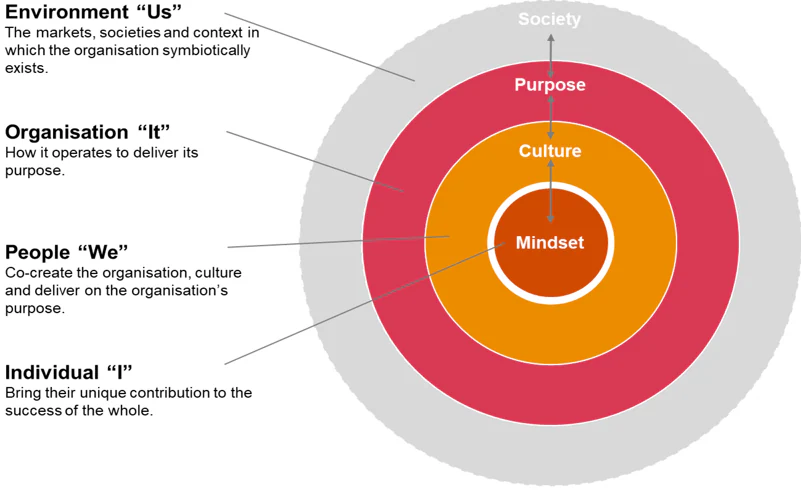
1. Empathy
Empathy is the cornerstone of human-centered leadership. It involves understanding and sharing the feelings, thoughts, and experiences of others. Leaders who practice empathy actively listen to their team members, seeking to understand their perspectives, needs, and challenges. For instance, they could hold regular one-on-one meetings to check in on their team’s well-being, or they could create a feedback system that allows team members to share their concerns and suggestions. This empathetic approach builds trust and fosters open communication, as employees feel heard and valued. Empathy also helps leaders make more informed decisions that consider the human impact, thereby enhancing the overall well-being and morale of the team. Empathy means being attuned to employees’ emotional and psychological states and responding in ways that demonstrate care and concern.
2. Empowerment
Empowerment is another critical principle of human-centered leadership. It involves giving employees the autonomy, resources, and support they need to take ownership of their work and make meaningful contributions to the organization. Empowerment also involves trusting team members to make decisions, solve problems, and take initiative. Leaders who empower their teams create an environment where individuals feel confident in their abilities and motivated to achieve their goals. Empowerment also fosters a sense of responsibility and accountability, as employees understand that their actions directly impact the organization’s success.
3. Inclusivity and Diversity
Human-centered leadership places a strong emphasis on inclusivity and diversity. Leaders who embrace this principle recognize the value of different perspectives, backgrounds, and experiences. They create a culture where all voices are heard and respected, and everyone has an equal opportunity to contribute and succeed. Inclusivity goes beyond mere representation; it involves creating an environment where individuals feel a genuine sense of belonging. By fostering diversity, leaders enrich the decision-making process and drive innovation and creativity, as diverse teams are better equipped to solve complex problems and adapt to changing circumstances.
4. Personal and Professional Development
Investing in the growth and development of employees is a fundamental aspect of human-centered leadership. Leaders who prioritize development understand that the success of an organization is closely tied to the growth of its people. This principle involves providing continuous learning, skill-building, and career advancement opportunities. Through formal training programs, mentoring, or on-the-job experiences, human-centered leaders ensure that employees have the tools and support they need to reach their full potential. By focusing on development, leaders help employees achieve their personal and professional goals, leading to higher engagement, satisfaction, and retention.
5. Purpose-Driven Leadership
Purpose-driven leadership is about aligning the goals and values of the organization with those of its people. Human-centered leaders inspire and motivate their teams by connecting their work to a larger purpose or mission. This principle emphasizes the importance of meaning and fulfillment in the workplace. When employees understand how their work contributes to the greater good, they are more likely to be engaged, committed, and passionate about their roles. Purpose-driven leadership also involves articulating a clear vision and ensuring that every team member understands how their efforts contribute to achieving that vision.
6. Ethical and Transparent Decision-Making
Ethical and transparent decision-making is a critical component of human-centered leadership. Leaders who adhere to this principle make decisions based on fairness, integrity, and the well-being of their people. Transparency involves openly sharing information, being honest about challenges, and explaining the rationale behind decisions. This approach builds trust and credibility, as employees appreciate forthright and accountable leaders. Ethical decision-making also involves considering the long-term impact of decisions on employees, customers, and the broader community, ensuring that the organization operates socially responsibly.
Human-centered leadership is a holistic approach that focuses on the well-being and growth of individuals within an organization. Leaders can create a positive and supportive work environment that drives sustainable success by embracing empathy, empowerment, inclusivity, development, purpose-driven leadership, and ethical decision-making. These principles not only enhance employee satisfaction and engagement but also contribute to the overall effectiveness and resilience of the organization in an increasingly complex and dynamic world.
Empowering Success: How Human-Centered Leadership Drives Engagement, Reduces Turnover and Enhances Organizational Well-Being
In today’s rapidly evolving business landscape, organizations face the constant challenge of maintaining high levels of employee engagement, reducing turnover, and ensuring long-term success. Human-centered leadership, which prioritizes the well-being of individuals, has emerged as a powerful approach to addressing these challenges. Human-centered leaders create environments that foster engagement, loyalty, and productivity by focusing on employees’ needs, aspirations, and overall well-being, ultimately driving the organization’s success. This essay explores how human-centered leadership enhances employee engagement, reduces turnover, and drives organizational success by prioritizing the well-being of individuals.
Enhancing Employee Engagement
Employee engagement is a critical factor in organizational success. Engaged employees are more committed to their work, more productive, and more likely to contribute to a positive organizational culture. Human-centered leadership enhances employee engagement by creating a work environment where individuals feel valued, heard, and supported.
1. Fostering a Sense of Purpose
Human-centered leaders understand that employees are more engaged when they find meaning and purpose in their work. These leaders go beyond the transactional aspects of work to connect employees’ roles with the broader mission and values of the organization. Human-centered leaders inspire a sense of belonging and motivation by clearly communicating the organization’s purpose and how each employee’s work contributes to that purpose. When employees see the impact of their work and understand how it aligns with their values, they are more likely to be engaged and committed to their roles.
2. Encouraging Autonomy and Empowerment
Empowerment is a cornerstone of human-centered leadership. Leaders who empower their employees by giving them autonomy over their work create a sense of ownership and responsibility. This autonomy allows employees to make decisions, innovate, and take initiative, increasing engagement and job satisfaction. Employees who feel trusted to manage tasks and contribute ideas are more likely to be motivated and invested in their work. Human-centered leaders provide the necessary resources and support while encouraging employees to take charge of their projects, leading to higher levels of engagement.
3. Promoting Open Communication and Collaboration
Human-centered leadership emphasizes the importance of open communication and collaboration. Leaders who actively listen to their employees, seek their input, and involve them in decision-making processes create a culture of trust and transparency. This approach encourages employees to voice their opinions, share ideas, and collaborate with others, which enhances their sense of belonging and engagement. By fostering a collaborative environment, human-centered leaders ensure that employees feel connected to their colleagues and the organization, leading to higher engagement and commitment.
Reducing Turnover
High employee turnover can be costly for organizations financially and in terms of lost productivity and morale. Human-centered leadership can significantly reduce turnover by creating a work environment that prioritizes the well-being and satisfaction of employees. Employees who feel valued, respected, and supported are less likely to leave the organization.
1. Prioritizing Employee Well-Being
Human-centered leaders recognize that employees’ well-being is essential to their satisfaction and retention. These leaders prioritize their employees’ physical, mental, and emotional well-being by promoting work-life balance, offering wellness programs, and supporting mental health. By addressing the holistic needs of employees, human-centered leaders create a supportive work environment that reduces stress and burnout, leading to lower turnover rates. Employees who feel that their well-being is a priority are likelier to remain loyal to the organization.
2. Offering Professional Development and Growth Opportunities
One of the main reasons employees leave organizations is the lack of opportunities for growth and development. Human-centered leaders address this issue by investing in their employees’ personal and professional development. They provide continuous learning, skill-building, and career advancement opportunities, ensuring employees feel supported in their growth. By offering clear pathways for development and promotion from within, human-centered leaders demonstrate a commitment to the long-term success of their employees, which reduces turnover and increases loyalty.
3. Building Strong Relationships and Trust
Trust is a fundamental element of employee retention. Human-centered leaders build trust by being transparent, ethical, and consistent. They establish strong relationships with their employees by showing genuine concern for their well-being and development. When employees trust their leaders and feel secure in their roles, they are less likely to seek opportunities elsewhere. Human-centered leadership fosters a sense of loyalty and commitment by creating a work environment where employees feel valued and trusted, leading to lower turnover rates.
Driving Organizational Success
Organizations that adopt human-centered leadership are better positioned for long-term success. By prioritizing the well-being of individuals, these organizations create a positive work culture that drives productivity, innovation, and overall performance.
1. Cultivating a Positive Organizational Culture
Organizational culture plays a significant role in the success of any organization. Human-centered leaders cultivate a positive culture by promoting respect, inclusivity, and collaboration. This culture enhances employee engagement and retention and attracts top talent. A positive organizational culture fosters a sense of pride and loyalty among employees, which translates into higher levels of productivity and performance. Employees who feel part of a supportive and inclusive culture are likelier to contribute their best work, driving the organization’s success.
2. Encouraging Innovation and Creativity
Innovation is essential for organizational success in today’s competitive business environment. Human-centered leadership encourages innovation by creating an environment where employees feel safe to experiment, take risks, and share new ideas. When employees are empowered to think creatively and are supported in their efforts to innovate, they are more likely to develop solutions that drive the organization forward. Human-centered leaders recognize that the best ideas often come from those who are closest to the work, and they create a culture that values and rewards innovation. This focus on creativity and innovation positions the organization for long-term success.
3. Enhancing Organizational Agility and Adaptability
Organizational agility is crucial to success in an increasingly dynamic and unpredictable world. Human-centered leadership enhances organizational agility by fostering a culture of continuous learning, adaptability, and resilience. Leaders who prioritize the well-being and development of their employees ensure that the organization is equipped to respond to changing circumstances and challenges. Human-centered leaders create a flexible and adaptable workforce by promoting a growth mindset and encouraging employees to embrace change. This agility allows the organization to navigate uncertainties and seize new opportunities, driving long-term success.
4. Strengthening Employee Loyalty and Advocacy
Loyal employees are more likely to advocate for their organization internally and externally. Human-centered leadership strengthens employee loyalty by creating a work environment where individuals feel valued, respected, and supported. When employees have a positive experience at work, they are more likely to speak positively about the organization to others, which can enhance the organization’s reputation and attract top talent. Additionally, loyal employees are more likely to go above and beyond in their roles, contributing to the organization’s success. By prioritizing the well-being of individuals, human-centered leaders build a loyal and committed workforce that drives organizational success.
5. Aligning Organizational Goals with Employee Well-Being
Human-centered leadership ensures that organizational goals are aligned with the well-being of employees. Leaders who adopt this approach recognize that the organization’s success is intertwined with its people’s happiness and satisfaction. By aligning goals such as productivity, profitability, and growth with the well-being of employees, human-centered leaders create a sustainable model for success. This alignment ensures that employees are motivated to achieve organizational goals because they see a direct connection between their efforts and well-being. Employees who feel their work contributes to their and the organization’s success are more likely to be engaged and committed to achieving those goals.
Human-centered leadership is a powerful approach that enhances employee engagement, reduces turnover, and drives organizational success by prioritizing the well-being of individuals. Human-centered leaders create a positive work environment that motivates and empowers employees by fostering a sense of purpose, encouraging autonomy, promoting open communication, and prioritizing employee well-being. This approach not only enhances engagement and reduces turnover but also drives organizational success by cultivating a positive culture, encouraging innovation, enhancing agility, and strengthening employee loyalty.
In an era when employee well-being is increasingly recognized as a critical factor in organizational success, human-centered leadership offers a sustainable and effective model for leading organizations. By prioritizing the well-being of individuals, human-centered leaders create a strong foundation for long-term success, ensuring that both employees and the organization thrive in an increasingly complex and competitive world. As organizations continue to navigate the challenges of the modern business environment, human-centered leadership will be essential for building resilient, engaged, and successful teams.

Case Study: Satya Nadella’s Leadership at Microsoft
Background:
When Satya Nadella took over as CEO of Microsoft in 2014, the company was at a crossroads. Once the dominant player in the tech industry, Microsoft struggled to adapt to the rapidly changing landscape of cloud computing and mobile technology. The company’s culture was often described as competitive and hierarchical, focusing intensely on financial performance and operational efficiency. This culture had led to internal silos, stifled innovation, and a declining market share in key areas.
Nadella’s leadership marked a significant shift from the traditional leadership model that had been in place. Instead of solely focusing on operational efficiency and financial performance, Nadella introduced a human-centered approach to leadership that prioritized empathy, inclusivity, and the well-being of employees.
Empathy as a Cornerstone:
One of Nadella’s first initiatives as CEO was to change the culture at Microsoft by emphasizing empathy. He recognized that the company’s success was deeply intertwined with the well-being and development of its employees. Nadella believed that Microsoft could unlock its full potential by fostering a culture where individuals felt valued, respected, and empowered.
Nadella’s emphasis on empathy was not just rhetoric. He actively sought to understand the perspectives and needs of his employees, customers, and partners. For example, Nadella encouraged leaders within Microsoft to listen more, ask questions, and demonstrate genuine concern for their team members’ well-being. This shift in leadership style was reflected in how the company approached its products, with a renewed focus on creating technology that served a broader range of people and needs.
Fostering Trust and Collaboration:
Under Nadella’s leadership, trust became a foundational element of Microsoft’s culture. He understood that trust was essential for effective teamwork and innovation. By creating an environment where employees felt safe to express ideas and take risks, Nadella helped break down the silos that had previously hindered collaboration across the company.
One notable example of this is the development of Microsoft Teams. The creation of Teams was a collaborative effort across various departments, including engineering, marketing, and customer support. The success of Teams, which became a critical tool for businesses worldwide, was a direct result of the culture of trust and open communication that Nadella fostered.
Emphasis on Development and Growth:
Nadella also placed a strong emphasis on personal and professional development. He believed that Microsoft could only grow as fast as its people and that its long-term success depended on its employees’ continuous learning and development. To this end, Nadella invested in various initiatives to support employee growth, including leadership training, mentoring programs, and resources for continuous learning.
One example of this commitment is establishing the Microsoft LEAP program, which provides non-traditional candidates, such as those with diverse backgrounds or career changers, with the opportunity to enter the tech industry through a structured internship program. This initiative supports individual employees’ development and brings fresh perspectives into the organization, enhancing innovation and inclusivity.
Inclusivity and Diversity:
Inclusivity and diversity became central to Microsoft’s leadership philosophy under Nadella. He recognized a diverse and inclusive workforce was a moral and business imperative. By ensuring that all voices were heard and respected, Microsoft could benefit from a broader range of perspectives, leading to more innovative solutions and a more robust organizational culture.
Nadella took concrete steps to promote diversity and inclusion, including setting goals for increasing the representation of women and underrepresented minorities in leadership roles. Additionally, Microsoft launched several initiatives to foster a more inclusive workplace, such as unconscious bias training, employee resource groups, and a commitment to pay equity.
Alignment of Organizational Goals with Employee Well-Being:
Nadella’s human-centered leadership also involved aligning Microsoft’s organizational goals with the well-being of its employees. He was mindful of the long-term impact of business decisions on employees and the broader community. For instance, during the COVID-19 pandemic, Microsoft was one of the first major companies to implement flexible work arrangements, recognizing the importance of employee well-being during a challenging time.
Nadella’s focus on ethical decision-making and corporate responsibility extended beyond the company’s walls. Under his leadership, Microsoft committed to ambitious sustainability goals, such as becoming carbon-negative by 2030, reflecting a broader commitment to balancing business success with social and environmental responsibility.
Outcomes:
The results of Nadella’s human-centered leadership approach have been striking. Under his tenure, Microsoft has experienced a significant turnaround, with its market capitalization increasing from around $300 billion in 2014 to over $2 trillion in 2024. The company has regained its position as a leader in the tech industry, with successful products like Azure and Microsoft Teams and the continued growth of Office 365.
Moreover, Microsoft has been consistently recognized as one of the best workplaces, with high employee satisfaction and low turnover rates. This success is a testament to human-centered leadership’s power to drive organizational success and employee well-being.
Conclusion:
Satya Nadella’s leadership at Microsoft is a compelling case study of how a shift to human-centered leadership can transform an organization. By prioritizing empathy, trust, development, inclusivity, and ethical decision-making, Nadella created a workplace culture that enhanced employee satisfaction and retention and drove significant business success. This case study demonstrates that human-centered leadership is not just a departure from traditional models but a powerful approach to building resilient, innovative, and prosperous organizations in today’s complex business environment.

Exercise: Exploring Empathy in Human-Centered Leadership
• Partner A: Describe a workplace situation where you felt genuinely listened to and understood by a leader or manager. Explain how their empathetic approach made you feel and impacted your motivation, trust in the leader, and overall contribution to the team.
• Partner B: Listen actively without interrupting. Focus on understanding your partner’s feelings and perspective.
• Partner B: Describe a situation where a leader did not acknowledge your needs or concerns. Explain how this lack of empathy affected your trust in the leader and your engagement at work.
• Partner A: Listen actively, demonstrating empathy and understanding.
• Discuss how empathy (or the lack of it) influenced your experience and the overall team dynamics in your described situations.
• Reflect on how the empathetic actions of a leader can build trust and foster a positive, productive work environment.
• What did you learn about the importance of empathy in leadership?
• How can practicing empathy enhance trust and collaboration within a team?

Course Manual 2: The Science Behind Behavior
Human behavior, a subject of enduring fascination for scholars and scientists, is a complex interplay of biological, psychological, and environmental factors. This intricate tapestry, which forms the basis of psychology, sociology, and neuroscience, shapes how individuals act, think, and evolve. The science behind human behavior and change, spanning genetics, brain function, cognitive processes, and social influences, is a captivating journey into the depths of the human mind.
The brain, a marvelously complex organ at the core of human behavior, processes information, regulates emotions, and controls actions. Its chemical messengers, neurotransmitters, play a crucial role in shaping mood, motivation, and decision-making. For instance, dopamine, a neurotransmitter associated with reward and pleasure, drives behaviors that lead to positive outcomes. Similarly, serotonin, another neurotransmitter, influences mood regulation, affecting how people respond to various stimuli. Understanding these neurochemical processes is a key to unlocking the mysteries of human behavior and change, shedding light on the fascinating interplay of biology and behavior.
Aside from the biological framework, cognitive processes significantly influence behavior. Cognitive psychology delves into how people perceive, think, and remember, affecting their actions. Cognitive biases, such as confirmation bias or the availability heuristic, can lead individuals to make irrational decisions or hold onto false beliefs, impacting their behavior in predictable ways. However, by becoming aware of these biases, individuals can learn to recognize and mitigate their influence, leading to more rational and adaptive behaviors. This awareness empowers us to understand better and control our behavior.
Social and environmental factors play a significant role in shaping human behavior, often setting the context in which individuals operate. Social learning theory, a powerful concept, suggests that people learn behaviors by observing others, particularly those they consider role models. This theory helps explain the profound impact of cultural norms, peer influence, and media on individual behavior. Furthermore, environmental factors, such as socioeconomic status, education, and family dynamics, create external conditions that facilitate or hinder behavioral change.
The science of behavior change examines explicitly how individuals can modify their habits, thoughts, and actions over time. This field draws on psychology, neuroscience, and behavioral economics principles to develop strategies that promote lasting change. Techniques such as cognitive-behavioral therapy (CBT), motivational interviewing, and behavioral nudges have proven effective in helping individuals overcome negative behaviors and adopt healthier living patterns.
Understanding the science behind human behavior and change is essential for developing interventions that promote well-being, personal growth, and societal progress. By unraveling the complexities of why we behave the way we do, scientists and practitioners can better guide individuals and communities toward positive transformation.
Navigating the Psychology of Change: Understanding the Impact on Individuals
The psychology of change is a critical area of study within the broader field of psychology, focusing on understanding how individuals experience, process, and adapt to change. Change is inevitable, whether it involves personal development, relationship shifts, career transitions, or societal transformations. Despite its ubiquity, change often evokes various emotional responses, from excitement and anticipation to fear and resistance. Exploring the psychology of change reveals why individuals react differently, what factors influence their ability to adapt, and how these reactions impact their overall well-being and behavior.
Cognitive dissonance, a psychological state where an individual experiences discomfort due to conflicting beliefs, attitudes, or behaviors, is at the heart of change. When faced with change, especially when it contradicts previously held beliefs or routines, individuals often experience cognitive dissonance. However, understanding this concept can be empowering. It helps to explain why some people resist change and why others embrace it more readily, giving individuals a sense of control over their reactions to change.
The stages of change model, also known as the transtheoretical model, provides a framework for understanding how individuals navigate the change process. This model outlines six stages: pre-contemplation, contemplation, preparation, action, maintenance, and termination. In the pre-contemplation stage, individuals may not yet recognize the need for change or may be in denial about it. During contemplation, they begin to acknowledge the need for change but might feel ambivalent or uncertain about taking action. The preparation stage involves planning and gathering resources to facilitate the change, while the action stage is when individuals actively implement the change. Maintenance consists of sustaining the new behavior over time, and termination represents the stage where the change has become fully integrated into the individual’s life.
This model highlights that change is a process rather than a single event. Individuals move through these stages at their own pace, and setbacks or relapses are common, particularly in the maintenance stage. The model also emphasizes the importance of motivation and readiness in the change process. Those not ready to change may linger in the contemplation or contemplation stages, while those with solid motivation are more likely to progress to the action and maintenance stages.
Emotions play a significant role in how individuals experience and respond to change. Change often triggers fear and anxiety because it involves stepping into the unknown and facing uncertainty. This fear can lead to resistance, as individuals may prefer the familiarity of their current situation, even if it is unsatisfactory, over the uncertainty of change. On the other hand, change can also evoke positive emotions, such as hope and excitement, particularly when the change is perceived as an opportunity for growth or improvement.
Their personality traits and coping mechanisms also influence the impact of change on individuals. For instance, individuals with a high tolerance for ambiguity and a proactive personality are generally more adaptable to change. They tend to view change as a challenge rather than a threat and are likelier to take initiative in navigating new circumstances. Conversely, individuals with high levels of anxiety or a strong need for control may struggle more with change, experiencing higher levels of stress and resistance.
Social support is a crucial factor in the psychology of change. The presence of supportive relationships can significantly ease the process of change, providing individuals with emotional encouragement, practical advice, and a sense of belonging. Social networks can also serve as a source of accountability, helping individuals stay committed to their change efforts. Emphasizing the role of social support in the change process can make your audience feel more connected and less isolated in their change journey.
In summary, the psychology of change encompasses a complex interplay of cognitive, emotional, and social factors that determine how individuals perceive, respond to, and ultimately adapt to change. Understanding these dynamics is essential for facilitating positive change in individuals and organizations, as it allows for developing strategies that address resistance, enhance motivation, and provide the necessary support for successful change. In personal life, therapy, or organizational settings, recognizing the psychological aspects of change can lead to more effective and sustainable outcomes.
Leveraging the Psychology of Change: Enhancing Management, Team Morale, and Organizational Transitions
Understanding human behavior during periods of change is crucial for effective management, increased team morale, and smoother transitions during disruption. In any organization, change is inevitable—whether it’s due to technological advancements, market shifts, mergers, or internal restructuring. However, change often brings uncertainty, stress, and resistance among employees. By gaining insights into how human behavior operates in these contexts, leaders and managers can better navigate the complexities of organizational change, ensuring that transitions are successful and contribute to a more positive and productive workplace environment.
The Psychological Impact of Change
Change, by its nature, disrupts the status quo. For many individuals, this disruption can trigger a range of psychological responses, including fear, anxiety, and resistance. These reactions are often rooted in a fear of the unknown or a perceived loss of control over one’s environment. Cognitive dissonance, the discomfort experienced when holding conflicting beliefs or facing situations challenging existing worldviews, can exacerbate these feelings. For example, employees comfortable with their current role may experience anxiety if a new system or process threatens their routine or competence.
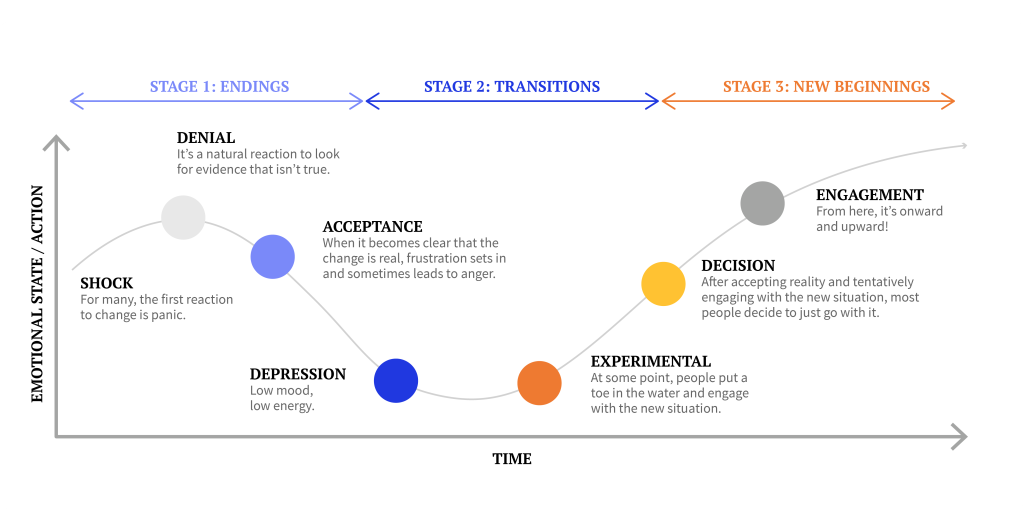
Understanding these psychological reactions is essential for managers who must lead their teams through change. Acknowledging that resistance to change is a natural human response rather than a sign of poor attitude or unwillingness to cooperate can help managers approach the situation with empathy and strategic insight. This understanding allows managers to proactively anticipate and address potential challenges rather than reacting to issues as they arise.
The Role of Communication in Managing Change
Effective communication is the most critical factor in managing human behavior during change. When employees are kept in the dark about the reasons for change, its benefits, or how it will impact their roles, uncertainty and rumors can spread, leading to increased anxiety and resistance. Transparent communication helps to mitigate these concerns by providing clarity and reducing the fear of the unknown.
Leaders should aim to communicate the vision behind the change, the steps involved in the transition, and the expected outcomes. This communication should be ongoing and interactive, allowing employees to voice their concerns, ask questions, and receive timely answers. By involving employees in the conversation, managers can help them feel more in control of the situation, reducing resistance and fostering a sense of ownership over the change process.
Additionally, messaging should be tailored to the audience. Different teams or departments may have varying concerns or interests regarding the change. For instance, a technical team may need detailed information about new software implementations, while a customer service team might be more concerned with how changes affect client interactions. Managers can ensure that communication is relevant and practical by addressing each group’s needs and concerns.
The Importance of Leadership During Change
Leadership plays a pivotal role in guiding teams through change. Influential leaders act as role models, demonstrating resilience, adaptability, and a positive attitude toward change. When leaders visibly support the change and engage actively with the process, it sends a powerful message to the rest of the organization. This can inspire confidence and reduce anxiety among employees, as they see that their leaders are not only advocating for the change but are also willing to go through it with them.
Leaders should be accessible and approachable during periods of change. Employees are more likely to express their concerns or seek guidance if they feel that their leaders are genuinely interested in their well-being. This engagement level helps build trust and maintain morale and commitment during transitions. Leaders who listen to their teams, acknowledge their feelings, and provide support can foster a more cohesive and motivated workforce.
Fostering a Supportive Organizational Culture
Organizational culture significantly influences how change is perceived and managed. A culture that values adaptability, continuous learning, and open communication will likely embrace change positively. In such environments, change is seen as an opportunity for growth rather than a threat. Employees in these cultures are typically more resilient and open to new ideas, which can lead to smoother transitions.
To foster such a culture, organizations should encourage continuous professional development and create an environment where feedback is welcomed and acted upon. Providing training and development opportunities equips employees with the skills needed to navigate change and signals that the organization is invested in their growth and success. This can enhance employee engagement and loyalty, which are critical during disruption.
Recognizing and rewarding adaptability and innovation can reinforce a positive attitude toward change. When employees see that their efforts to embrace change are valued and rewarded, they are more likely to remain committed and motivated, even in the face of challenges.
Managing Resistance to Change
Resistance to change is a common challenge that can derail even the most well-planned transitions. Understanding the underlying reasons for resistance is critical to managing it effectively. Resistance often stems from fear of losing one’s job, fear of the unknown, or fear of failure. It can also arise from a perceived loss of status, power, or comfort, significantly if the change disrupts long-standing routines or roles.
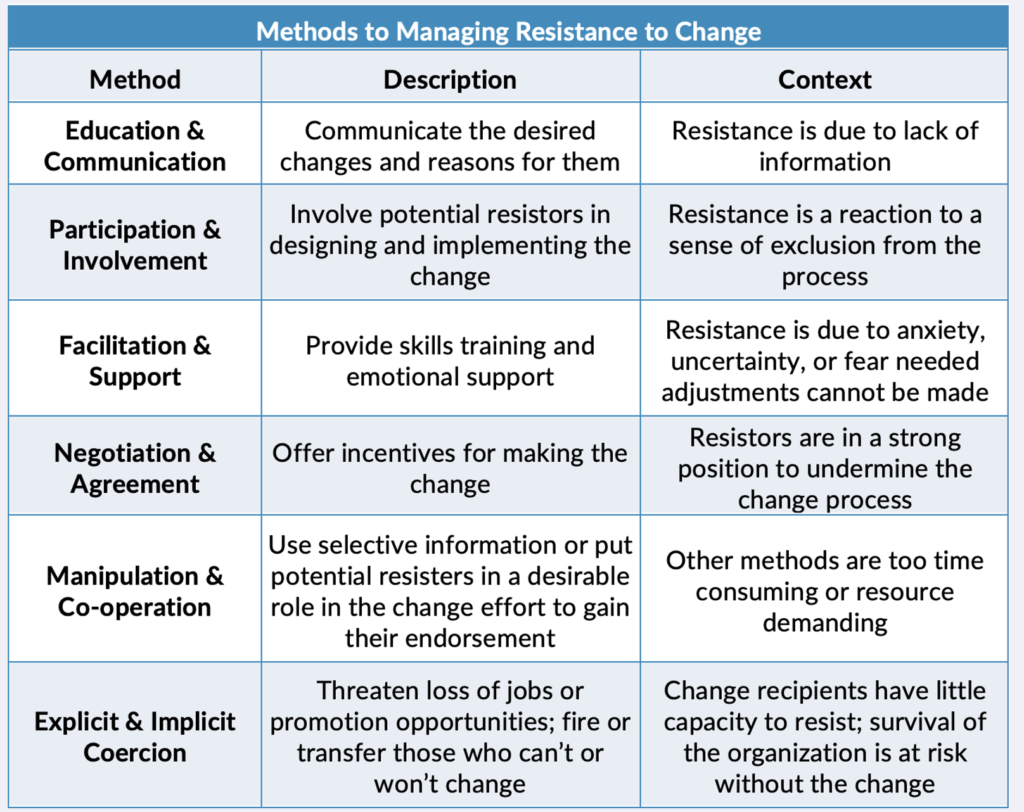
One effective strategy for managing resistance is to involve employees in the change process. When employees actively plan and implement change, they are likelier to feel a sense of ownership and commitment to the process. This can be achieved by seeking input from employees, involving them in decision-making, and giving them responsibilities related to the change. This participatory approach reduces resistance and leverages the workforce’s collective knowledge and creativity, leading to better outcomes.
Addressing the emotional aspect of resistance is also essential. Managers should acknowledge the challenges and discomfort that change can bring and provide support to help employees cope. This might include offering counseling services, facilitating peer support groups, or creating spaces where employees can express their concerns and frustrations. By addressing both the practical and emotional aspects of change, managers can help employees navigate the transition more effectively.
The Role of Training and Development
Training and development are essential components of managing change effectively. Change often requires new skills, knowledge, or behaviors, and providing the necessary training ensures that employees are equipped to meet these demands. Training programs should be tailored to the specific needs of the change initiative and the employees involved. For example, suppose a company is implementing new technology. In that case, training should focus on using the technology and how it will benefit the employees in their daily work.
Beyond technical training, organizations should also invest in soft skills development, such as communication, problem-solving, and resilience. These skills are crucial for navigating the interpersonal and emotional challenges often accompanying change. Moreover, training programs should be ongoing rather than one-time events, ensuring employees can continually develop and refine their skills as the change process unfolds.
Maintaining Team Morale During Change
Maintaining team morale during change is critical to ensuring a successful transition. Low morale can lead to decreased productivity, increased absenteeism, and higher turnover rates, undermining the change initiative. To maintain morale, managers should build a sense of community and shared purpose within the team.
One way to do this is by celebrating small wins throughout the change process. Recognizing and rewarding progress, no matter how minor, can boost morale and reinforce the belief that the change leads to positive outcomes. This can be as simple as acknowledging a team’s hard work during a meeting or offering small incentives for achieving specific milestones.
Another critical aspect of maintaining morale is ensuring employees feel valued and supported. Managers should regularly check in with their teams, not just to monitor progress but to gauge how employees are feeling and to offer assistance where needed. Providing flexibility, such as allowing remote work or adjusting deadlines, can also help reduce stress and maintain morale.
The Long-Term Benefits of Understanding Human Behavior During Change
Investing in understanding human behavior during change pays long-term dividends for organizations. When change is managed effectively, it can lead to a more adaptable and resilient workforce. Employees who successfully navigate change are often more confident in their abilities and willing to embrace future changes. This adaptability is increasingly essential in today’s fast-paced and ever-evolving business environment, where organizations must constantly innovate to stay competitive.
Organizations that manage change well tend to have higher employee engagement and retention rates. Employees are more likely to stay with a company they feel values their well-being and invests in their development. This reduces the costs associated with turnover and ensures that the organization retains valuable knowledge and skills.
Effective change management also enhances organizational reputation. Companies that are seen as handling change well are more attractive to top talent and can position themselves as leaders in their industry. This can provide a competitive edge, as attracting and retaining the best talent is crucial for long-term success.
Understanding human behavior during periods of change is fundamental to effective management, increased team morale, and smoother transitions during disruption. Managers can guide their teams through change with empathy and strategic insight by acknowledging the psychological impact of change, communicating effectively, and fostering a supportive organizational culture. Addressing resistance, providing adequate training, and maintaining team morale are essential to ensuring that change initiatives are successful and sustainable.
In the long term, organizations prioritizing understanding and managing human behavior during change will be better equipped to navigate the complexities of the modern business environment. They will achieve smoother transitions and cultivate a more resilient, engaged, and innovative workforce capable of thriving in the face of future challenges. By leveraging the insights from psychology and behavioral science, managers can transform the challenge of change into an opportunity for growth and improvement, both for their teams and the organization.

Case Study: Behavioral Economics and Nudging in Employee Wellness Programs at Google
Background:
Google, known for its innovative approach to employee welfare and productivity, has implemented various programs to improve the health and well-being of its employees. One notable initiative involves using behavioral economics principles, specifically “nudging,” to encourage healthier eating habits among employees. This approach provides a real-world example of how understanding and influencing human behavior can lead to significant positive outcomes in a business setting.
Understanding the Problem:
Google’s cafeteria offers various food options, from healthy salads to indulgent snacks. Despite the availability of healthy choices, many employees tended to choose less nutritious options, which could lead to long-term health issues and reduce overall productivity. The challenge was encouraging employees to make healthier food choices without restricting their freedom.
Applying Behavioral Economics:
In collaboration with behavioral economists, Google’s People Operations team designed a series of subtle interventions (nudges) to guide employees toward healthier eating behaviors. These interventions were based on key concepts from behavioral economics, such as choice architecture and the default effect.
1. Choice Architecture:
• Positioning of Food: The team changed the cafeteria layout to make healthy food options visible and accessible. For instance, salads and fruits were placed at eye level and at the beginning of the buffet line, while less healthy snacks were positioned in less prominent locations. Research shows that people are more likely to choose items that are easily accessible and within their line of sight.
• Portion Control: Smaller plates were introduced to subtly reduce portion sizes, helping employees to consume fewer calories without feeling deprived. This approach leverages the fact that people tend to fill their plates, so smaller plates naturally lead to smaller portions.
2. The Default Effect:
• Healthy Default Options: In meetings and catered events, the default food options provided were healthier, such as whole grains, lean proteins, and vegetables. Employees could still opt for less healthy choices if desired, but the effort required to make this change meant more people stuck with the healthier default.
3. Visual Cues:
• Calorie Labels: Clear and straightforward calorie information was displayed next to each food item in the cafeteria. This transparency allowed employees to make more informed decisions, reducing the likelihood of overconsumption of high-calorie foods.
Outcomes:
Google’s nudges led to significant improvements in employees’ eating habits. Research conducted within the company showed an increase in the consumption of fruits and vegetables and a decrease in the intake of unhealthy snacks. Employees reported feeling more energized and satisfied with their food choices, positively impacting their productivity and well-being.
Moreover, the company noted a reduction in healthcare costs related to diet-related illnesses over time, demonstrating the long-term financial benefits of promoting healthier behavior among employees. The success of this initiative also reinforced Google’s reputation as a company that prioritizes the well-being of its workforce, contributing to high levels of employee satisfaction and retention.
Conclusion:
Google’s use of behavioral economics principles to nudge employees towards healthier eating habits illustrates the powerful impact that understanding human behavior can have in a business context. By making small, strategic changes to the environment and default options, Google could influence employees’ choices in a way that improves their health and well-being without imposing restrictions. This case study highlights the potential for businesses to drive positive behavioral changes through thoughtful design and the application of behavioral science, leading to enhanced employee satisfaction, productivity, and long-term organizational success.

Exercise: Exploring Cognitive Biases in Your Decision-Making
• Reflect on a significant decision you’ve made in the past week. This could be related to your personal life, work, or any other area where you had to choose different options.
• Write down the thought process you went through when making this decision. Be as detailed as possible, including the factors you considered, any information you relied on, and your emotions.
• Review your decision-making process and identify any cognitive biases that may have influenced your choice. Common biases include:
• Confirmation Bias: Did you focus on information confirming what you already believed while ignoring evidence?
• Availability Heuristic: Did you base your decision on the most readily available information rather than all relevant data?
• Anchoring Bias: Were you overly influenced by the first information you encountered?
• Consider how these biases might have affected the outcome of your decision. Did they lead you to overlook better options or make a choice that wasn’t entirely rational?
• Write down one or two strategies you can use in the future to minimize the influence of cognitive biases in your decision-making. For example, you might commit to seeking out diverse perspectives before deciding or setting aside time to evaluate all available information critically.

Course Manual 3: Building Clarity
In today’s world, uncertainty is a constant companion. Whether driven by economic fluctuations, technological advancements, market competition, or unforeseen global events, uncertainty can disrupt even the most well-laid plans. In such times, building clarity becomes a desirable goal and a critical necessity. Clarity in business is a guiding light, helping organizations navigate ambiguity, make informed decisions, and maintain a sense of direction amid chaos. A well-constructed business case is one of the most effective tools for fostering this clarity, providing a clear path forward in uncertain times.
A business case is a formal document that outlines the rationale for a particular project or decision, detailing the expected benefits, costs, risks, and potential impacts. It serves as a decision-making framework, providing stakeholders with a clear understanding of why a project is necessary, what it aims to achieve, and how it aligns with the organization’s strategic objectives. In times of uncertainty, when the stakes are higher, and the margin for error is slimmer, a robust business case becomes even more valuable. It justifies allocating resources, ensuring every penny is spent wisely, and provides a structured approach to evaluating potential outcomes, mitigating risks, and aligning the team with a shared vision. This empowerment instills a sense of confidence and control, even in the face of unpredictable variables.
Building clarity through a business case involves several vital elements. First and foremost, a comprehensive assessment of the current situation is required. This includes an honest appraisal of the challenges and opportunities of the uncertain environment, gathering relevant data, analyzing market trends, and understanding the competitive landscape. By grounding the business case in factual analysis, organizations can cut through the uncertainty and gain a more objective view of the situation.
Second, the business case must clearly articulate the proposed solution or action. This includes outlining the strategic objectives, defining the project’s scope, and specifying the expected outcomes. Clarity in this context means providing a detailed plan that stakeholders can understand and support, even in the face of unpredictable variables. The more precise and well-defined the proposal, the easier for decision-makers to evaluate its viability and potential impact, empowering them to make confident decisions.
Risk management is another critical component of building clarity in uncertain times. A well-prepared business case does not shy away from acknowledging potential risks; instead, it addresses them head-on. By identifying and analyzing risks early on, the business case can propose mitigation strategies, contingency plans, and alternative scenarios. This proactive approach builds confidence among stakeholders and prepares the organization to adapt to changing circumstances without losing sight of its goals.
A business case must align with the broader organizational strategy, ensuring that the proposed initiative supports long-term objectives and contributes to overall business resilience. In uncertain times, it is easy for organizations to become reactive, making short-term decisions that may not align with their long-term vision. A well-crafted business case, however, acts as a strategic anchor, helping organizations stay focused on their core goals while navigating through turbulent waters.
Building clarity in times of uncertainty is essential for effective decision-making and organizational success. A well-constructed business case provides the framework for this clarity, offering a structured approach to assessing situations, proposing solutions, managing risks, and aligning with strategic objectives. In doing so, it empowers organizations to make informed decisions, allocate resources wisely, and steer confidently through the challenges of uncertainty.
Strategies for Providing Clarity and Direction During Disruptive Times
In disruptive times, when uncertainty and rapid change become the norm, providing clarity and direction is paramount for leaders who aim to steer their organizations successfully. Disruptions—whether due to economic downturns, technological shifts, global crises, or internal upheavals—can create confusion and anxiety among employees, eroding morale and productivity. To mitigate these effects and maintain organizational momentum, leaders must employ strategies that offer clear guidance and reinforce a sense of stability. Here are key strategies to provide clarity and direction during such challenging periods.
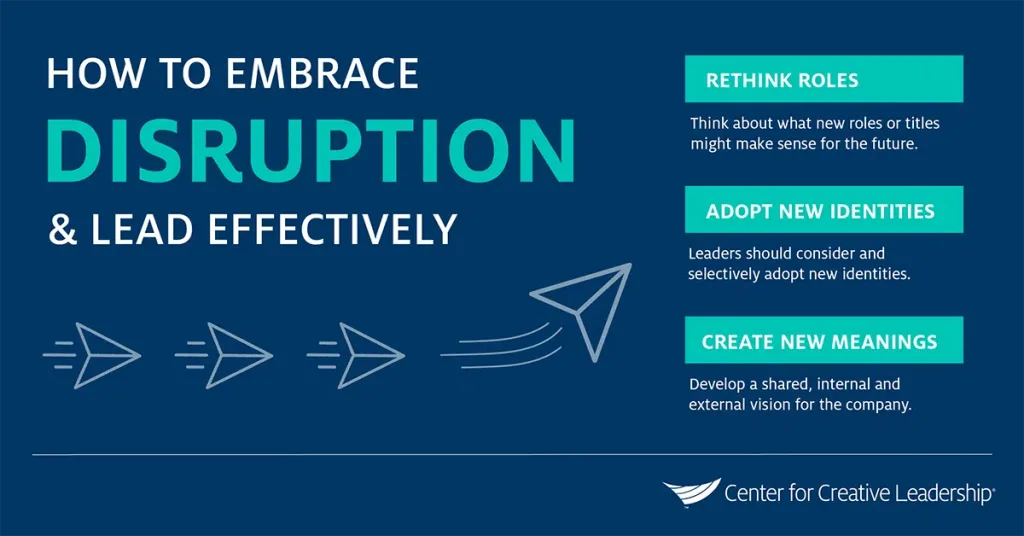
1. Transparent Communication
Effective communication is the cornerstone of clarity during disruption. Leaders should prioritize transparency, ensuring that information flows freely throughout the organization. This involves sharing the organization’s challenges, potential impacts, and the rationale behind making decisions. When employees understand the context and reasoning behind actions, they are more likely to trust leadership and remain engaged. Regular updates, open forums, and Q&A sessions can help maintain an ongoing dialogue, allowing leaders to address concerns, dispel rumors, and keep everyone aligned with the organization’s goals. This clear and open communication fosters a sense of reassurance and connection, even in turbulent times.
2. Establishing a Clear Vision
In times of uncertainty, a clear and compelling vision can guide the entire organization. Leaders should articulate a vision that outlines the organization’s long-term goals and how it intends to navigate the current disruption. This vision should be realistic and inspiring, providing a sense of purpose that transcends immediate challenges. Leaders can help employees stay focused on the bigger picture by consistently reinforcing this vision, even as they adapt to short-term changes. This emphasis on a clear vision inspires and focuses the entire organization, even in the midst of disruption.
3. Prioritizing and Simplifying Objectives
During disruptive periods, the temptation to pursue multiple initiatives can lead to scattered efforts and further confusion. Leaders should instead focus on simplifying and prioritizing objectives. By identifying and concentrating resources on the most critical goals, organizations can maintain focus and ensure that their efforts yield meaningful results. This prioritization also involves clear communication about what can be postponed or scaled back, helping teams to concentrate on what truly matters and avoid burnout.
4. Empowering Decision-Making at All Levels
Empowering employees at various levels of the organization to make decisions is crucial during disruptive times. Centralized decision-making can lead to bottlenecks and slow response times, exacerbating the challenges of disruption. Instead, leaders should foster a culture of trust and autonomy, enabling teams to make decisions that align with the organization’s overall strategy and vision. Providing the necessary training and resources ensures that employees can make informed decisions, contributing to a more agile and responsive organization.
5. Demonstrating Empathy and Support
Disruptive times often bring about heightened stress and anxiety among employees. Leaders must demonstrate empathy, acknowledging their teams’ difficulties professionally and personally. Providing support, whether through mental health resources, flexible working arrangements, or simply being available to listen, can make a significant difference in maintaining morale and engagement. When employees feel cared for and understood, they are more likely to remain committed and resilient in facing challenges.
6. Adapting and Being Open to Change
Finally, leaders must be adaptable and open to change. Disruptive times require flexibility, as plans must be adjusted rapidly in response to evolving circumstances. Leaders who model adaptability inspire their teams to do the same. This includes being open to feedback, learning from setbacks, and continually seeking better ways to achieve objectives. By fostering a continuous learning and improvement culture, organizations can turn disruption into an opportunity for growth and innovation.
In summary, providing clarity and direction during disruptive times involves transparent communication, a clear vision, prioritized objectives, empowered decision-making, empathy, and adaptability. By implementing these strategies, leaders can help their organizations navigate uncertainty confidently, maintain focus, and emerge stronger on the other side.
The Power of Clear Communication in Navigating Uncertainty
In times of uncertainty, whether triggered by economic fluctuations, organizational changes, or global events, the need for clear and effective communication becomes paramount. Uncertainty often breeds anxiety, confusion, and hesitation, significantly impairs decision-making processes, and disrupts team productivity. Leaders can mitigate these challenges by fostering an environment where clear communication is prioritized, ensuring that their teams remain focused, informed, and engaged. Clear communication is critical in reducing anxiety, enhancing decision-making, and maintaining productivity, even in unpredictable circumstances.
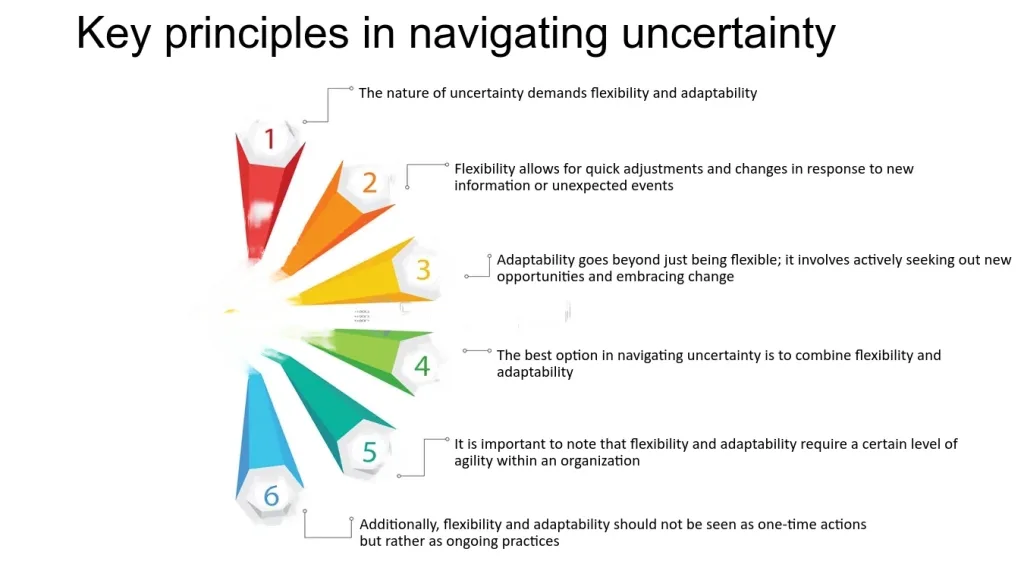
Reducing Anxiety Through Clear Communication
Uncertainty is often a breeding ground for anxiety. When employees are unsure about what is happening or what is expected, it can lead to stress and a sense of helplessness. This anxiety can manifest in various ways, from decreased morale and motivation to increased absenteeism and turnover. Clear communication is one of leaders’ most effective tools to combat this anxiety.
When leaders communicate transparently, they provide employees with the information they need to understand the situation and how it might affect them. This transparency helps demystify the unknown, reducing the fear and speculation often accompanying uncertain times. For example, during corporate restructuring, if leaders clearly outline the reasons for the change, the steps involved, and how employees will be supported throughout the process, it can significantly alleviate concerns and reduce rumors and misinformation.
Moreover, clear communication fosters trust. Employees who feel their leaders are honest and straightforward are likelier to trust the leadership team and remain committed to the organization. This trust is crucial in maintaining a positive work environment, especially when external factors may be causing uncertainty. Leaders who regularly update their teams, provide avenues for questions, and acknowledge employees’ difficulties create a supportive atmosphere where anxiety is minimized and resilience is bolstered.
Enhancing Decision-Making
Effective decision-making is crucial in any organization, but it becomes even more critical during times of uncertainty. Unclear communication can lead to misunderstandings, misaligned goals, and poor decision-making, all of which can exacerbate the challenges posed by uncertainty. On the other hand, clear communication ensures that everyone has the necessary information to make informed decisions that align with the organization’s objectives.
In decision-making, clarity begins with ensuring that everyone understands the organization’s goals and priorities. When these are communicated, employees at all levels can make decisions that support these goals rather than working at cross purposes. For instance, if a company faces a market downturn, clear communication about prioritizing cost-saving measures allows managers to make decisions that contribute to financial stability rather than inadvertently increasing expenses.
Additionally, clear communication involves providing the right level of detail to the right audience. Leaders should ensure that employees have the information relevant to their roles without overwhelming them with unnecessary details. This approach helps to streamline decision-making processes, enabling teams to focus on what matters most and respond swiftly to changes in their environment. For example, while senior leadership might need detailed financial forecasts to guide strategic decisions, frontline teams might require clear guidelines for managing day-to-day operations under new constraints.
Another critical aspect of enhancing decision-making through communication is feedback loops. Leaders should create mechanisms for regular feedback, allowing employees to voice concerns, offer suggestions, and report on the outcomes of their decisions. This ensures that decision-making processes are dynamic and responsive and empowers employees by making them active participants in the decision-making process. When communication flows in both directions, it enhances collective problem-solving and ensures that decisions are well-informed and practical.
Ensuring Teams Remain Focused and Productive
Maintaining focus and productivity during uncertain times is challenging, particularly if employees are distracted by concerns about the future. Clear communication is vital in keeping teams aligned with their goals and ensuring they remain productive.
One fundamental way clear communication supports productivity is by setting clear expectations. During the disruption, the usual success metrics may shift, and employees need to know what is expected of them under the new circumstances. Leaders should clearly articulate any changes in priorities, deadlines, or performance metrics, ensuring all team members understand their roles and responsibilities. This clarity helps prevent confusion and allows employees to focus their efforts where they are most needed.
Furthermore, clear communication helps to eliminate distractions. Uncertainty often leads to speculation and rumors, diverting attention from essential tasks. By addressing potential concerns head-on and providing regular updates, leaders can minimize the spread of misinformation and keep employees focused on their work. For example, clear communication about the timeline, processes, and potential outcomes during organizational change can help employees concentrate on their tasks rather than becoming preoccupied with what might happen next.
Clear communication also fosters a sense of purpose and direction. When employees understand how their work contributes to the organization’s larger goals, they are more likely to stay engaged and motivated, even during challenging times. Leaders should try to connect individual tasks and projects to the organization’s broader mission, helping employees see the value and impact of their work. This connection can be vital during times of uncertainty when the usual markers of success may be more complex to discern.
Clear, positive, and constructive communication can significantly boost team morale. Leaders who communicate optimistically and focus on solutions rather than problems can inspire their teams to adopt a similar mindset. This positivity helps maintain a productive work environment where employees feel empowered to tackle challenges rather than overwhelmed by them.
The Role of Consistency in Communication
Consistency in communication is another crucial factor that supports clarity, reduces anxiety, enhances decision-making, and ensures productivity. Inconsistent messages can create confusion and undermine trust, leading to increased stress and reduced effectiveness. Leaders must strive for consistency in their communication’s content and frequency.
This means delivering messages that align with previously communicated goals and strategies and avoiding sudden shifts that could lead to uncertainty. It also involves regularly communicating updates, even when there is no new information to share. Regular communication, even if only to reaffirm previous messages, helps reinforce stability and keeps teams on track.
Consistency also extends to how communication is delivered across different levels of the organization. Leaders should ensure that all teams receive the same core messages, tailored appropriately for their context, to avoid mixed signals and ensure everyone is working from the same understanding.
Clear communication is a powerful tool that can significantly reduce anxiety, enhance decision-making, and ensure that teams remain focused and productive, even in the face of uncertainty. Leaders can confidently navigate challenging times by prioritizing transparency, setting clear expectations, fostering trust, and maintaining consistency. In an uncertain world, the clarity provided by effective communication stabilizes the present and lays a strong foundation for future success.

Case Study: The Business Case for Netflix’s Shift to Streaming
Background:
In the early 2000s, Netflix was primarily known as a DVD rental-by-mail service. The company had built a solid customer base, leveraging the convenience of online ordering and postal delivery. However, by the mid-2000s, the landscape of home entertainment began to change rapidly due to advancements in internet technology, the growing popularity of video-on-demand, and the increasing competition from emerging digital content platforms.
Recognizing the potential impact of these changes on its business model, Netflix faced significant uncertainty. The traditional DVD rental business was at risk of becoming obsolete, but the path was unclear. In this context, Netflix’s leadership team needed to create a robust business case for transitioning from a DVD rental company to a streaming service.
Assessment of the Current Situation:
The first step in Netflix’s business case was conducting a thorough assessment of the current market environment and the future of digital media consumption. This involved:
• Analyzing Market Trends: Netflix observed the rapid growth of broadband internet and the increasing digital media consumption. The rise of piracy and the decline in DVD sales also indicated a shift in consumer behavior towards digital formats.
• Understanding Competitive Landscape: The company recognized emerging competitors like Hulu and YouTube, which are beginning to offer streaming content. Traditional media companies were also starting to explore digital distribution channels.
• Evaluating Internal Capabilities: Netflix assessed its existing technology infrastructure, user base, and content acquisition strategies. The company had already built a recommendation algorithm and user interface that could be adapted to a streaming platform, giving it a competitive edge.
Proposed Solution and Strategic Objectives:
Based on this analysis, Netflix’s leadership proposed a strategic pivot to a streaming service. The business case clearly articulated the scope and objectives of this transition:
• Objective: To become a leading global streaming service provider, offering on-demand access to a wide range of digital content, including movies, TV shows, and original programming.
• Scope: The initiative involved significant investments in technology infrastructure to support streaming, acquiring digital content rights, and developing original content to differentiate the service from competitors.
• Expected Outcomes: The transition to streaming was expected to reduce the company’s reliance on physical DVDs, attract a broader customer base, and create a recurring revenue model through subscription services. Over time, Netflix aimed to expand globally, capitalizing on the growing demand for digital content worldwide.
Risk Management:
Netflix’s business case did not shy away from the risks associated with this strategic shift:
• Technological Risks: The streaming technology was still evolving, and there was uncertainty about its ability to deliver high-quality video to a broad audience. To mitigate this risk, Netflix invested heavily in building a robust streaming infrastructure and formed partnerships with content delivery networks (CDNs) to ensure reliable service.
• Content Acquisition Risks: Securing digital rights for popular content was a significant challenge, as traditional media companies hesitated to license their content to a digital competitor. Netflix addressed this by gradually building its library and investing in original content production to reduce dependence on external providers.
• Market Risks: There was a risk that consumers would be slow to adopt streaming or that competitors would capture the market first. During the transition period, Netflix mitigated this by offering a hybrid model (DVD and streaming), allowing customers to experience streaming while still relying on DVDs.
Alignment with Organizational Strategy:
The business case emphasized that the shift to streaming aligned with Netflix’s long-term strategic vision of becoming a global leader in home entertainment. By focusing on digital content delivery, Netflix could position itself at the forefront of the industry, ensuring long-term growth and sustainability.
This alignment with the broader organizational strategy was crucial in gaining buy-in from stakeholders, including investors, who needed assurance that this significant shift would support the company’s overall goals.
Outcomes:
Netflix’s transition to streaming proved to be a transformative success. The company’s clear and well-structured business case allowed it to navigate the uncertainty of a rapidly changing market effectively. Key outcomes included:
• Market Leadership: Netflix became the dominant player in the streaming industry, with millions of subscribers worldwide.
• Innovation and Growth: The company pioneered original content production, such as *House of Cards* and *Stranger Things*, further differentiating itself from competitors and driving subscriber growth.
• Global Expansion: Netflix successfully expanded its streaming service to international markets, capitalizing on the global demand for digital content.
• Financial Success: The shift to streaming created a more scalable and profitable business model, significantly increasing Netflix’s revenue and market capitalization.
Conclusion:
Netflix’s case study demonstrates the power of a well-crafted business case in providing clarity and direction amidst uncertainty. By thoroughly assessing the current situation, clearly articulating the proposed solution, addressing potential risks, and ensuring alignment with strategic objectives, Netflix was able to make informed decisions that led to its remarkable success in the streaming industry. This approach highlights the critical role that a robust business case plays in maintaining focus and driving resilience in a dynamic business environment.

Exercise: Crafting a Business Case Amidst Uncertainty
• Imagine your company is facing a rapidly changing market due to a sudden technological advancement that threatens to disrupt your core product line. Your team has been tasked with developing a new product or service to address this challenge.
• The success of this initiative depends on creating a well-structured business case to justify the investment and secure stakeholder approval.
• Discuss and identify the key uncertainties your company faces due to technological advancement.
• What data would you gather to understand the market trends, competitive landscape, and internal capabilities?
• How would this information shape your understanding of the challenges and opportunities ahead?
• As a group, brainstorm a potential solution or new product/service that your company could develop in response to the technological disruption.
• Clearly articulate the scope of the project, its strategic objectives, and the expected outcomes.
• How does this solution align with the company’s long-term goals?
• Identify the potential risks associated with the proposed solution.
• Discuss possible mitigation strategies and contingency plans that could be included in the business case.
• How would addressing these risks help build confidence among stakeholders?
• Each group will present their proposed business case to the larger group.
• Focus on how your group assessed the situation, defined the solution, and addressed the risks.
• Be prepared to explain how the business case provides clarity and direction in the face of uncertainty.
• Discuss the different approaches taken by each group.
• What were the common challenges in developing the business case?
• How did the exercise enhance your understanding of the importance of clarity and structured decision-making in uncertain business environments?

Course Manual 4: Confidence Through Empowerment
Fostering confidence within a team is essential for driving success and innovation. A pivotal strategy to achieve this is through empowerment. In a business context, empowerment gives employees the authority, resources, and autonomy to make decisions, take initiative, and contribute meaningfully to the organization’s objectives. This approach enhances individual performance and cultivates a culture of trust and accountability, critical for sustaining long-term business growth.
Empowerment instills in employees a profound sense of ownership and responsibility, directly impacting their confidence levels. When team members feel that their contributions are valued and they are free to make decisions, they are more likely to take initiative, suggest innovative solutions, and engage more deeply with their work. This personal confidence extends to their perception of the company, fostering loyalty and significantly reducing turnover. Employees who feel empowered are more likely to believe in the company’s mission and are committed to its success, as they see themselves as integral to its achievements.
Moreover, empowerment leads to the development of a proactive workforce. In a traditional hierarchical structure, decisions are often delayed as they move up the chain of command. This can stifle creativity and slow down the response to market changes. By contrast, an empowered team can act quickly, adapting to new challenges and seizing opportunities without waiting for top-down directives. This agility is critical in today’s fast-paced business landscape, where the ability to pivot quickly can mean the difference between success and failure.
Empowering employees fosters a culture of confidence and responsibility and continuous learning and development. As team members take on more responsibility, they are encouraged to acquire new skills and knowledge, driving personal and professional growth. This continuous learning benefits the individual and enriches the organization with a more skilled and versatile workforce, ensuring its long-term success. The culture of confidence and responsibility that empowerment fosters is a critical factor in this long-term success.
Fostering confidence through empowerment is not just about delegating tasks; it’s about building a supportive environment where employees feel trusted, respected, and motivated to excel. By empowering their teams, businesses can create a more dynamic, resilient, and engaged workforce capable of driving innovation and achieving sustainable success in an increasingly competitive marketplace.
Empowerment: The Key to Unlocking Employee Confidence and Performance
Empowering employees is a critical strategy in modern business management, closely linked to enhancing their confidence and performance. When empowered, employees are given the autonomy, resources, and authority to make decisions and take ownership of their roles. This empowerment fundamentally transforms their relationship with their work, significantly improving their confidence and performance.
Empowerment and Confidence
At the core of empowerment is trust. When leaders entrust employees with greater responsibility, they believe in their abilities, which is a powerful motivator. Employees who are trusted to make decisions, solve problems, and manage their tasks without constant oversight experience a significant boost in self-confidence. They begin to see themselves as capable and valuable contributors to the organization, which enhances their self-esteem and professional identity.
Empowerment also plays a crucial role in reducing the fear of failure, a common barrier to confidence. In traditional, hierarchical organizations, the fear of making mistakes can paralyze employees, making them hesitant to take the initiative or propose new ideas. Empowerment changes this dynamic by encouraging employees to take calculated risks and learn from their experiences. Knowing that they have the support of their leaders, employees are more likely to step out of their comfort zones, try new approaches, and innovate. This process of trial and error is essential for building confidence, as it allows employees to see the direct results of their efforts and learn from successes and setbacks. Empowerment encourages a culture of innovation and risk-taking by reducing the fear of failure.
Empowerment and Performance
The link between empowerment and performance is equally vital. When empowered, employees are more engaged and invested in their work. This increased engagement leads to higher productivity, as employees are motivated to contribute at their best. Empowered employees take ownership of their tasks, making them more likely to go above and beyond their basic job requirements. They are also more proactive, identifying potential issues and opportunities early, leading to better decision-making and more efficient processes.
Empowerment fosters creativity and innovation. When employees are free to think independently and make decisions, they are more likely to develop creative solutions to problems. This is especially important in rapidly evolving industries, where the ability to innovate can be a critical competitive advantage. Empowered employees are not just following orders but thinking critically about improving their work and the organization. This sense of freedom and responsibility can significantly boost their confidence and performance.
Additionally, empowerment leads to better team dynamics and collaboration. When employees are given autonomy, they tend to communicate more openly and collaborate more effectively with their peers. This is because they feel a shared sense of responsibility and are likelier to contribute their ideas and feedback. Such an environment of collaboration enhances individual performance and improves overall team effectiveness.
Empowered employees are also more likely to stay with the organization. The sense of ownership and purpose that comes with empowerment increases job satisfaction and loyalty. This boosts morale and significantly reduces turnover, a significant cost for businesses. High retention rates mean organizations can build and maintain a more experienced and skilled workforce, increasing overall performance and positively impacting the company’s bottom line.
The connection between empowering employees and boosting their confidence and performance is clear and compelling. Empowerment is not just a management strategy; it is a catalyst for transforming employees into confident, high-performing individuals who are deeply invested in the organization’s success. By fostering an environment where employees feel trusted and valued, businesses can unlock their full potential, driving innovation, productivity, and long-term success.
Unlocking Potential
In today’s competitive and rapidly evolving business environment, organizations increasingly recognize the value of empowering their employees. Empowerment is not just a buzzword; it is a powerful management strategy that directly impacts how employees view their roles, how they perform, and, ultimately, how they contribute to the organization’s success. Empowered employees are more confident, take greater ownership of their work, and contribute meaningfully to the organization, resulting in increased innovation and job satisfaction. This paper explores the multifaceted benefits of employee empowerment and its critical role in driving organizational success.
The Essence of Employee Empowerment
Employee empowerment enables employees to make decisions, take initiative, and have the authority to act on their ideas within the organization’s goals and objectives. This approach shifts the traditional hierarchical model, where decision-making is centralized at the top, to a more decentralized structure, where employees at all levels are encouraged to contribute. Empowerment involves providing employees with the resources, information, and support to perform their duties effectively and with autonomy.
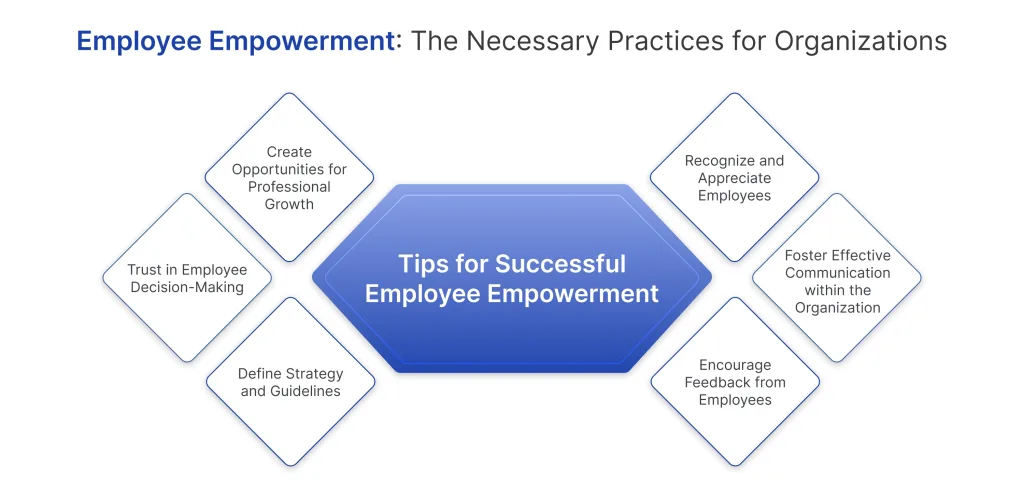
Empowerment is not merely about delegating tasks but cultivating a culture of trust and respect. When empowered, employees are not just following orders but are encouraged to think critically, challenge the status quo, and develop innovative solutions. This cultural shift from control to trust is fundamental to building a confident and proactive workforce.
Building Confidence Through Empowerment
Confidence is a crucial outcome of employee empowerment. When employees are given the autonomy to make decisions and the trust to execute them, their self-confidence naturally increases. This confidence is built on the understanding that their leaders believe in their abilities and that their contributions are valued. In a workplace where employees feel trusted and respected, they are likelier to take initiative and show creativity.
Empowered employees are also more likely to take risks, which is essential for innovation. In traditional organizations, the fear of making mistakes can inhibit employees from proposing new ideas or taking bold steps. However, when employees know that they have the support of their managers and that mistakes are seen as learning opportunities rather than failures, they become more willing to experiment and innovate. This willingness to take calculated risks directly results from the confidence that comes from empowerment.
Moreover, empowerment enhances employees’ belief in their capabilities, which is crucial for their professional development. As employees take on more responsibility and make decisions independently, they gain experience and expertise. This builds their confidence and prepares them for higher organizational roles, contributing to their career growth and satisfaction.
Ownership and Accountability in the Workplace
Another significant impact of employee empowerment is its increased sense of ownership and accountability. When employees are empowered, they feel a greater sense of responsibility for the outcomes of their work. This sense of ownership is vital for driving high performance because employees who feel accountable for their work are likelier to put in the effort needed to achieve excellence.
Ownership also means that employees are more engaged in their work. They are not just completing tasks because they have to but because they care about the results and understand their role in the bigger picture of the organization’s success. This deeper engagement leads to higher productivity and a more motivated workforce.
Additionally, empowered employees are more likely to identify and proactively address problems early. In a traditional setup, issues might be ignored or passed up the chain of command, causing delays and inefficiencies. However, when employees have the authority to act, they can resolve issues quickly, leading to smoother operations and better overall performance.
Meaningful Contributions and Increased Innovation
Empowerment also leads to more meaningful contributions from employees. When employees are encouraged to bring their ideas to the table and are given the resources to implement them, they become active participants in the organization’s growth. This active participation is a critical driver of innovation.
Innovation thrives in an environment where employees feel free to express their ideas and take risks. Empowered employees are more likely to suggest new processes, products, or services because they are not restricted by rigid hierarchies or the fear of failure. They are motivated by the understanding that their ideas are valued and have the power to make a difference.
Furthermore, empowerment fosters a culture of continuous improvement. When involved in decision-making and problem-solving, employees develop a deeper understanding of the business and its challenges. This understanding enables them to contribute more effectively to strategic discussions and propose innovations aligned with the organization’s goals. As a result, the organization becomes more agile and better equipped to adapt to changes in the market.
Enhanced Job Satisfaction and Retention
Job satisfaction is another critical area positively impacted by employee empowerment. When employees feel empowered, they experience higher levels of job satisfaction because they are more engaged in their work, have greater control over their tasks, and see a clear connection between their efforts and the organization’s success. This sense of satisfaction is crucial for maintaining a motivated and committed workforce.
Empowered employees are more likely to stay with the organization, reducing turnover rates and the associated recruitment and training costs. High turnover can be a significant drain on resources and can disrupt organizational continuity. By contrast, when employees are satisfied and feel that their work is meaningful, they are likelier to remain loyal to the organization. This loyalty is not just a result of job satisfaction but also of the solid relationships and trust built through empowerment.
Empowered employees often develop a stronger attachment to the organization’s mission and values. When actively shaping the company’s direction, they feel a sense of pride and ownership beyond their immediate job responsibilities. This emotional connection to the organization further enhances job satisfaction and reinforces their commitment to the company’s long-term success.
Challenges and Considerations in Empowerment
While the benefits of employee empowerment are clear, it is essential to acknowledge the challenges and considerations involved in implementing this approach. Empowerment requires a shift in management mindset, where leaders must be willing to relinquish some control and trust their employees to make decisions. This can be difficult for managers using a more traditional, top-down approach.
Training and development are also crucial components of successful empowerment. Employees need the right skills and knowledge to make informed decisions and take on greater responsibilities. Organizations must invest in continuous learning opportunities to ensure that their employees are equipped to handle the demands of empowerment.
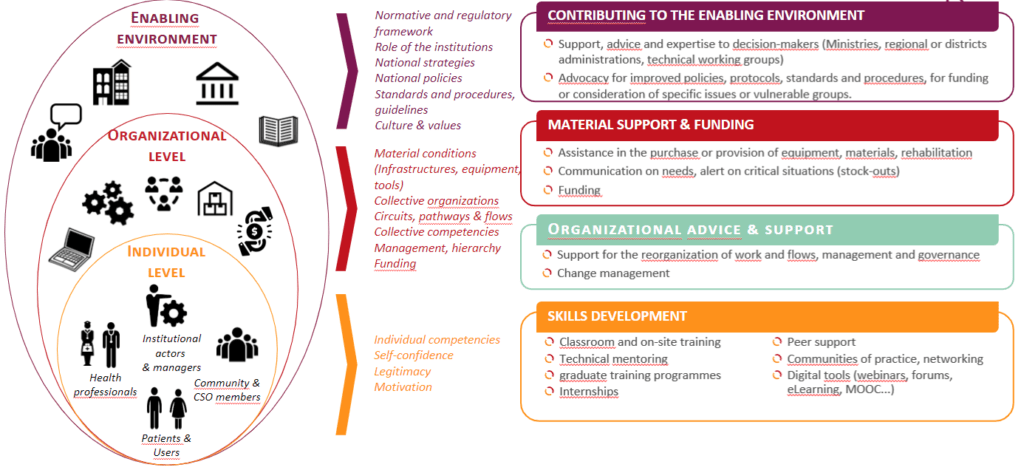
Additionally, clear communication is essential in an empowered workplace. Employees need to understand the organization’s goals, expectations, and boundaries within which they can operate. Without clear communication, empowerment can lead to confusion and inconsistency, undermining effectiveness.
Finally, empowerment must be implemented inclusively and equitably. All employees should have the opportunity to be empowered, regardless of their position or background. This inclusivity ensures that the benefits of empowerment are felt across the organization and that all employees have the chance to contribute meaningfully.
Empowered employees are the cornerstone of a successful, innovative, and dynamic organization. Empowerment drives higher performance, increased innovation, and enhanced job satisfaction by fostering confidence, encouraging ownership, and enabling meaningful contributions. However, achieving these benefits requires a thoughtful approach, including a shift in management practices, investment in training, and a commitment to clear and inclusive communication.
When done correctly, empowerment transforms the workplace into a vibrant environment where employees are not just workers but active participants in the organization’s journey. They are more confident, take greater ownership of their work, and deeply invest in the organization’s success. This leads to better business outcomes and creates a more fulfilling and satisfying work experience for employees, ensuring long-term growth and sustainability for the organization.

Case Study: Zappos and the Power of Employee Empowerment
Background:
Zappos, an online shoe and clothing retailer, is renowned for its customer service and unique approach to employee empowerment. Since its inception, Zappos has strongly emphasized creating a company culture prioritizing employee satisfaction, autonomy, and responsibility. This case study explores how Zappos’ empowerment strategy has significantly contributed to fostering team confidence, driving innovation, and achieving long-term business success.
Empowerment Strategy:
Zappos’ approach to empowerment is rooted in the belief that happy employees lead to happy customers. The company implements several key strategies to empower its workforce:
1. Holacracy:
• In 2014, Zappos adopted a self-management practice called holacracy, which replaced the traditional hierarchical structure with a distributed authority system. In a holacracy, decision-making power is decentralized, and employees are organized into circles that focus on specific functions. This structure empowers employees by giving them the autonomy to make decisions and take ownership of their roles without needing approval from a traditional manager.
• The transition to holacracy was challenging, but it ultimately fostered a sense of responsibility and confidence among employees, who now had greater control over their work.
2. Customer Service Autonomy:
• Zappos is famous for its exceptional customer service, mainly due to the autonomy given to its customer service representatives. Employees are encouraged to use their judgment to go above and beyond for customers without supervisors’ permission.
• For instance, customer service reps can spend unlimited time on calls with customers, offer refunds, and send surprise gifts—all without manager approval. This level of trust empowers employees to take the initiative and make decisions they believe are in the customer’s best interest.
3. Commitment to Employee Development:
• Zappos places a strong emphasis on continuous learning and development. The company offers various training programs and opportunities for employees to grow their skills and advance their careers. This focus on development enhances employee confidence and enriches the organization with a more skilled and versatile workforce.
• Additionally, Zappos offers a unique program in which new hires can quit after their initial training and receive a $2,000 bonus if they do so. This practice ensures that only those who are genuinely committed to the company’s mission stay, fostering a sense of loyalty and confidence among those who continue.
Outcomes:
The empowerment strategies at Zappos have yielded significant positive outcomes:
1. Enhanced Employee Confidence:
• The autonomy and trust placed in employees have led to a workforce that is confident in its abilities. Employees feel valued and empowered to take initiative, resulting in higher engagement and job satisfaction.
2. Innovation and Agility:
• The holacracy system and customer service autonomy have created an environment where innovation thrives. Employees are encouraged to experiment with new ideas and approaches without fearing failure. This agility has allowed Zappos to quickly adapt to market changes and customer needs, maintaining its competitive edge.
3. Improved Customer Satisfaction:
• Zappos’ empowered employees are motivated to provide outstanding customer service, leading to high customer satisfaction and loyalty. The company’s customer-centric approach has been a critical driver of its success and reputation in the market.
4. Strong Organizational Culture:
• The focus on empowerment and employee satisfaction has cultivated a strong, positive organizational culture at Zappos. This culture attracts and retains top talent, reducing turnover and ensuring a stable and committed workforce.
Conclusion:
Zappos’ commitment to empowering its employees has been a cornerstone of its success. Zappos has fostered a culture of trust, accountability, and innovation by granting employees the authority, resources, and autonomy to make decisions and take initiative. This empowerment has boosted employee confidence, driven higher performance, and contributed to the company’s long-term success. The Zappos case study demonstrates that empowerment is not just a management strategy but a powerful catalyst for creating a confident, high-performing workforce deeply invested in the organization’s mission and success.

Exercise: Exploring Empowerment and Its Impact on Team Confidence
• Form pairs with a colleague.
• Partner A: Describe a situation in your work experience where you felt truly empowered. This could involve being given the autonomy to make decisions, lead a project, or take the initiative. How did this empowerment affect your confidence, motivation, and overall performance?
• Partner B: Listen attentively without interrupting. Take notes on key points that highlight the impact of empowerment.
• Partner B: Now share a contrasting experience of feeling disempowered or micromanaged. How did this impact your confidence, creativity, and willingness to take initiative?
• Partner A: Listen attentively and note the effects of disempowerment.
• Discuss the differences between the two experiences shared. Focus on how empowerment or the lack thereof influenced your engagement, decision-making, and overall contribution to the team.
• Reflect on the broader implications of these experiences for team dynamics and organizational success.
• Together, brainstorm two or three strategies that could be used to foster empowerment within your current team or organization. Consider specific actions leaders could take to create an environment of trust and autonomy.
• Discuss how these strategies could help improve team confidence, innovation, and overall performance.
• After completing the exercise, each pair will briefly share one critical insight or strategy they developed with the larger group.
• Reflect on how implementing these strategies might transform your workplace and the potential challenges you might encounter.

Course Manual 5: Culture of Continuous Learning
Adapting and innovating are paramount to maintaining a competitive edge. Organizations increasingly recognize that technology, products, and people are their most valuable assets. A continually learning and evolving workforce is crucial to responding effectively to changes, seizing new opportunities, and driving long-term success. This realization has led to the growing importance of creating a culture of continuous learning within businesses.
A culture of continuous learning is one where learning is not confined to formal training sessions or specific periods but is embedded into the organization’s everyday operations. It is an environment where employees at all levels are not just encouraged, but empowered to seek knowledge, develop new skills, and apply them in their work. This culture promotes curiosity, creativity, and a growth mindset, fostering an atmosphere where employees are trusted, valued, and integral to the initiative and engage in self-directed learning.
The benefits of cultivating such a culture are manifold. For employees, it leads to enhanced job satisfaction, as they feel valued and supported in their professional growth. Continuous learning opportunities enable them to stay relevant in their roles, develop new competencies, and advance their careers. For the organization, a culture of constant learning drives innovation, improves productivity, and enhances adaptability. It ensures that the workforce is equipped with the latest skills and knowledge to meet the challenges of the modern business environment.
However, creating a culture of continuous learning is not without its challenges. It requires a strategic approach that includes aligning learning initiatives with business goals, providing the necessary resources and tools, and fostering an environment that values and rewards learning. Leadership plays a critical and inspiring role in this process, as leaders must not only model continuous learning behaviors but also inspire and motivate their teams, provide guidance, and create opportunities for employees to learn and grow.
Furthermore, the advent of digital technologies has revolutionized workplace learning. Organizations must harness these technologies to create flexible, accessible, and personalized learning experiences that cater to the diverse needs of their workforce. By doing so, they can foster a sustainable and scalable culture of continuous learning.
In conclusion, creating a culture of continuous learning is essential for organizations aiming to thrive in an increasingly complex and dynamic business environment. It requires commitment, strategic planning, and a supportive environment, but the rewards for innovation, employee engagement, and organizational resilience make it a worthy investment.
Encouraging a Growth Mindset and Continuous Learning: The Foundation of High-Performing Teams for the Future
In the modern workplace, where constant change and competition are fierce, fostering a growth mindset and encouraging continuous team learning is critical for success. A growth mindset, popularized by psychologist Carol Dweck, refers to the belief that abilities and intelligence can be developed through dedication, effort, and learning. A growth mindset can transform teams into dynamic, resilient, and innovative units capable of navigating challenges and driving sustained success with a commitment to continuous learning. This mindset offers a hopeful view of the future, where challenges are seen as opportunities and failures as valuable lessons, instilling a sense of optimism and hope in the team.
The Importance of a Growth Mindset
A growth mindset contrasts sharply with a fixed mindset, where individuals believe their talents and intelligence are static and unchangeable. Teams with a fixed mindset may shy away from challenges, fear failure, and resist feedback, stifling innovation and progress. On the other hand, teams that embrace a growth mindset view challenges as opportunities to learn and grow, see failures as valuable lessons, and welcome feedback as a tool for improvement.
Encouraging a growth mindset within teams leads to several key benefits:
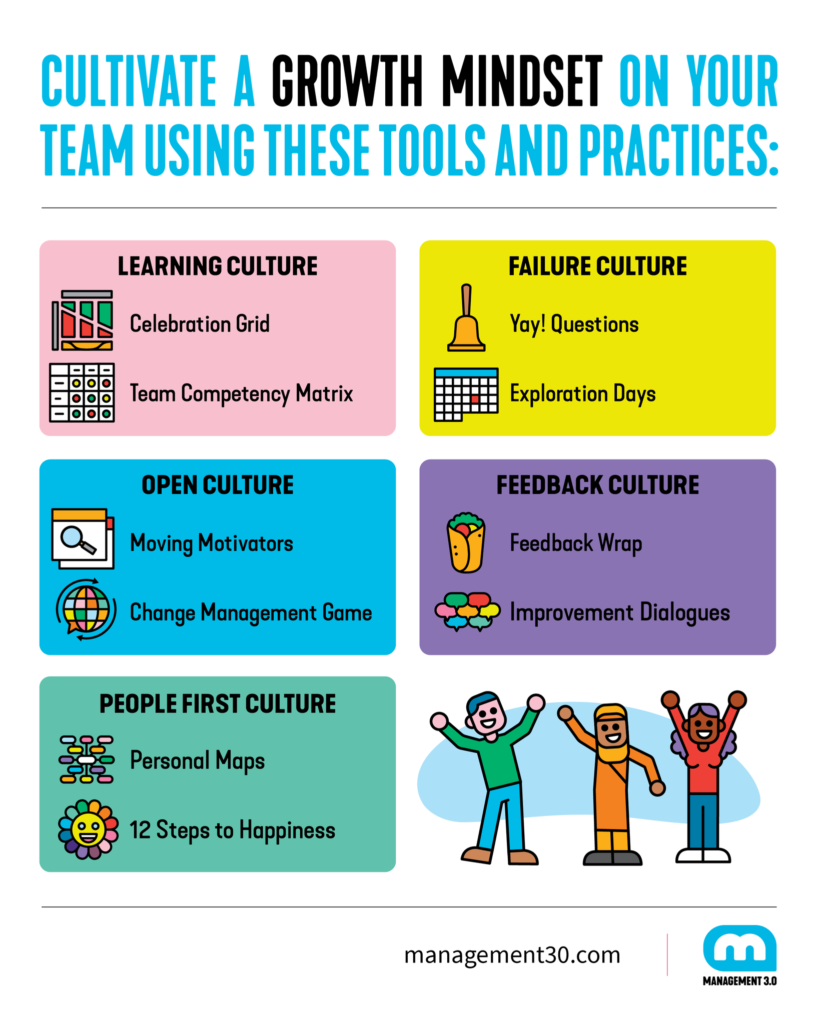
1. Enhanced Problem-Solving: Teams with a growth mindset are likelier to approach problems creatively and persistently. They are willing to explore new ideas and approaches, leading to more effective and innovative solutions.
2. Increased Resilience: When teams believe their abilities can be developed, they are better equipped to handle setbacks. They view failures as part of the learning process, which enhances their resilience and ability to bounce back from adversity.
3. Improved Collaboration: A growth mindset fosters a collaborative environment where team members support each other’s development. This collaboration leads to more cohesive teams leveraging diverse perspectives and skills.
Strategies for Encouraging a Growth Mindset and Continuous Learning
1. Lead by Example: Leaders play a crucial role in fostering a team growth mindset. By modeling a growth mindset themselves, leaders can set the tone for the entire team. This includes being open to feedback, admitting mistakes, and demonstrating a commitment to personal and professional development.
2. Promote a Learning Culture: Create an environment where learning is valued and encouraged. This can be achieved by providing access to learning resources, such as training programs, workshops, and online courses. Encourage team members to pursue their interests and develop new skills, even if not directly related to their current roles.
3. Normalize Failure as a Learning Tool: Reframing failure as a learning opportunity rather than a setback is essential to foster a growth mindset. Encourage teams to experiment and take calculated risks, and when failures occur, focus on what can be learned rather than placing blame.
4. Provide Constructive Feedback: Feedback is a critical component of a growth mindset. Rather than innate abilities, offer constructive feedback on effort, strategies, and processes. Highlight areas for improvement while also acknowledging progress and achievements.
5. Set Challenging Goals: Encourage teams to set ambitious, achievable goals that push them out of their comfort zones. Challenging goals can motivate individuals to develop new skills and stretch their capabilities, reinforcing that growth is possible through effort and learning.
6. Celebrate Growth and Learning: Recognize and celebrate team members’ growth and learning achievements. This can be done through formal recognition programs, meeting shout-outs, or informal praise. Celebrating these achievements reinforces the value of continuous learning and motivates others to adopt a growth mindset.
7. Encourage Peer Learning: Foster an environment where team members can learn from each other. Encourage knowledge sharing through regular team discussions, mentoring programs, and collaborative projects. Peer learning enhances individual growth and strengthens team cohesion and collective intelligence.
Encouraging a growth mindset and continuous learning within teams is a powerful strategy for building high-performing, adaptable, and innovative teams. By promoting a learning culture, normalizing failure, providing constructive feedback, and celebrating growth, organizations can create an environment where teams are motivated to develop their skills and capabilities continuously. This enhances individual and team performance and drives long-term organizational success in an ever-changing business landscape.
Building Agility and Long-Term Success: The Power of a Continuous Learning Culture
In the rapidly evolving landscape of modern business, adapting, innovating, and staying ahead of industry trends is no longer just an advantage—it’s necessary. Organizations that fail to keep pace with change risk obsolescence, while those that embrace learning and development as core values position themselves for sustained success. At the heart of this competitive advantage lies a culture of continuous learning, an environment where ongoing education, skill development, and knowledge sharing are ingrained in the daily operations and ethos of the company. This culture keeps organizations agile and adaptable and empowers employees to anticipate and respond to industry changes, fostering long-term success.
The Importance of Organizational Agility
Organizational agility refers to a company’s capacity to adapt rapidly to market changes and emerging opportunities. It is characterized by the ability to pivot in response to external forces, such as technological advancements, economic shifts, and evolving consumer preferences. In an agile organization, decisions are made quickly, processes are flexible, and innovation is constantly pursued.
A culture of continuous learning is a foundational element of organizational agility. When learning is embedded in the organizational culture, employees are encouraged to seek new knowledge, experiment with new ideas, and continuously update their skills. This proactive approach to learning ensures that the organization can respond swiftly to changes and capitalize on new opportunities.
Moreover, continuous learning supports the development of a growth mindset across the organization. Employees who believe in their ability to grow and improve are more likely to embrace change rather than resist it. This mindset shift is critical for maintaining agility, enabling the organization to adapt to new challenges and thrive in an ever-changing environment.
Encouraging Adaptability Through Continuous Learning
Adaptability is the ability to adjust to new conditions and environments, and it is a critical component of long-term success in today’s business world. An adaptable workforce can quickly learn and apply new skills, embrace new technologies, and shift strategies to align with changing circumstances.
A culture of continuous learning nurtures adaptability by fostering an environment where change is accepted and expected. Employees are encouraged to view change as an opportunity for growth rather than a threat to their job security. This perspective reduces resistance to change and promotes a more dynamic and responsive organizational culture.
One fundamental way to encourage adaptability is to provide employees with the tools and resources to develop their skills continuously. This includes access to training programs, workshops, online courses, and other learning opportunities that allow employees to stay current with industry trends and best practices. Additionally, organizations should encourage cross-functional collaboration and job rotation, which can expose employees to different aspects of the business and broaden their skill sets.
Leadership also plays a crucial role in fostering adaptability. Leaders who model continuous learning and are willing to adapt to new situations inspire their teams to do the same. By creating a safe environment where experimentation and risk-taking are encouraged, leaders can help employees build the confidence to navigate change effectively.
Staying Ahead of Industry Changes
In industries where technology and market conditions evolve rapidly, staying ahead of industry changes is essential for maintaining a competitive edge. A culture of continuous learning equips organizations to anticipate and respond to these changes proactively rather than merely reacting to them after the fact.
One of the primary benefits of continuous learning is that it keeps employees informed about the latest developments in their field. By staying current with industry trends, employees can identify potential disruptions and opportunities early on, allowing the organization to make strategic decisions that capitalize on these insights.
Furthermore, continuous learning fosters innovation by encouraging employees to think creatively and explore new ideas. In an environment where learning is valued, employees are more likely to experiment with new approaches and technologies, leading to breakthrough innovations that can set the organization apart from its competitors.
To stay ahead of industry changes, organizations must also prioritize knowledge sharing. This can be achieved through formal mechanisms such as knowledge management systems and informal practices like regular team meetings and collaborative projects. By promoting a culture of openness and collaboration, organizations can ensure that valuable insights and expertise are shared across the company, enabling the entire organization to benefit from collective learning.
Fostering Long-Term Success
Long-term business success is not just about surviving in the present but thriving in the future. Organizations prioritizing continuous learning are better positioned to achieve sustained growth and success over time. This is because constant learning drives innovation, improves employee engagement, and enhances organizational performance.
Innovation is a crucial driver of long-term success, and it thrives in an environment where learning is encouraged. Continuous learning fosters a culture of curiosity and exploration, where employees are motivated to seek new ideas and solutions. This, in turn, leads to a steady stream of innovations that can keep the organization at the forefront of its industry.
Employee engagement is another critical factor in long-term success. Engaged employees are more productive, committed to work, and less likely to leave the organization. A culture of continuous learning contributes to higher levels of engagement by providing employees with opportunities for growth and development. Employees who feel their organization is invested in their professional development are more likely to be motivated and loyal.
Additionally, continuous learning contributes to overall organizational performance by ensuring the workforce has the skills and knowledge needed to excel in their roles. As the business environment becomes increasingly complex, organizations need employees capable of handling new challenges and driving the company forward. By investing in continuous learning, organizations can build a workforce that is not only capable of meeting today’s demands but also prepared for tomorrow’s challenges.
Implementing a Culture of Continuous Learning
While the benefits of a culture of continuous learning are clear, implementing such a culture requires a strategic and sustained effort. It is not enough to offer training programs or encourage employees to take courses; organizations must create an environment where learning is integrated into every aspect of the business.
1. Leadership Commitment: The commitment to continuous learning must start at the top. Leaders must prioritize learning and development as a strategic objective and allocate the necessary resources to support it. They should also lead by example, demonstrating their commitment to education and encouraging their teams to do the same.
2. Employee Empowerment: Employees should be empowered to take charge of their learning and development. This means allowing them to pursue learning opportunities that align with their interests and career goals. Organizations can support this by offering personalized learning paths, access to a wide range of learning resources, and opportunities for self-directed learning.
3. Integration into Daily Operations: Learning should be woven into daily operations rather than treated separately. This can be achieved by encouraging on-the-job learning, promoting knowledge sharing, and creating opportunities for employees to apply new skills. For example, organizations can implement regular “lunch and learn” sessions, where employees can share their expertise with their colleagues or set aside time for employees to work on personal development projects.
4. Recognition and Reward: To sustain a culture of continuous learning, organizations should recognize and reward employees who demonstrate a commitment to education and development. This could include formal recognition programs, career advancement opportunities, or financial incentives for completing training or acquiring new certifications.
5. Leveraging Technology: Technology is crucial in supporting continuous learning. Organizations should leverage digital learning platforms, online courses, and other technological tools to make education accessible and convenient for employees. Organizations can cater to different learning styles and preferences by providing various learning options, making it easier for employees to learn continuously.
6. Measuring Impact: Finally, organizations should measure the impact of their continuous learning initiatives to ensure they are driving the desired outcomes. This could include tracking metrics such as employee engagement, retention, and performance and assessing the impact of learning on innovation and business results. By regularly evaluating the effectiveness of their learning programs, organizations can make data-driven decisions to refine and improve their approach.
A culture of continuous learning is essential for organizations that aim to stay agile, adaptable, and ahead of industry changes. By fostering an environment where learning is valued and encouraged, organizations can build a workforce capable of navigating the complexities of the modern business landscape and driving long-term success. Implementing a culture of continuous learning requires commitment, strategic planning, and integrating learning into daily operations. Still, the rewards in innovation, employee engagement, and sustained growth make it a worthwhile investment. As the pace of change continues to accelerate, organizations prioritizing continuous learning will be better equipped to thrive, ensuring their success for years.

Case Study: Accenture’s Culture of Continuous Learning
Background:
Accenture, a global professional services company specializing in consulting, technology, and outsourcing, operates in an industry characterized by rapid technological advancements and constant change. Accenture has established a robust culture of continuous learning to maintain its competitive edge and ensure long-term success. This culture empowers employees, fosters innovation, and aligns learning initiatives with the company’s strategic objectives.
The Challenge:
In the fast-paced and evolving technology landscape, Accenture faced the challenge of ensuring that its 500,000+ global workforce remained up-to-date with the latest skills and knowledge. The company needed to foster a culture where continuous learning was encouraged and ingrained in daily operations. This was essential for maintaining its leadership position in the industry, driving innovation, and delivering value to clients.
Strategy and Implementation:
1. Digital Learning Platforms:
• Accenture invested heavily in digital learning platforms like the “Accenture Connected Learning” platform. This platform provides employees access to many online courses, certifications, and learning modules accessible anytime, anywhere. The content covers various topics, from technical skills like artificial intelligence and cloud computing to soft skills like leadership and communication.
2. Integration of Learning into Daily Operations:
• Continuous learning at Accenture is embedded into the fabric of daily work. Employees are encouraged to allocate dedicated time for learning as part of their workweek. The company has implemented a “90:10” learning model, where employees spend 90% of their time on client work and 10% on learning and development activities.
• Learning is also integrated into project work through “just-in-time” learning resources, where employees can access relevant training materials and expert advice during project execution.
3. Leadership Commitment and Role Modeling:
• Accenture’s leadership plays a crucial role in fostering a culture of continuous learning. Leaders at all levels are expected to model learning behaviors, actively participate in training programs, and encourage their teams to prioritize learning. This commitment from leadership underscores the importance of continuous learning and helps to embed it into the company’s culture.
• The company’s CEO and senior executives regularly share their learning experiences with employees, promoting a growth mindset and emphasizing the importance of staying current with industry trends.
4. Focus on Emerging Technologies:
• Accenture recognized the importance of staying ahead in emerging technologies such as artificial intelligence, blockchain, and cybersecurity. The company launched targeted learning programs to equip employees with the skills to master these technologies. This proactive approach ensures that Accenture can continue offering its clients cutting-edge solutions.
• Accenture also established specialized learning hubs like the “Innovation Centers” and “Tech Labs,” where employees can engage with the latest technologies, experiment with new ideas, and collaborate on innovative projects.
5. Encouraging a Growth Mindset:
• Accenture actively promotes a growth mindset across the organization, encouraging employees to view challenges as opportunities for learning and development. The company provides regular feedback and celebrates learning achievements, reinforcing the value of continuous improvement.
• Failure is recognized as a valuable learning tool. Employees are encouraged to take risks and experiment with new ideas, knowing that setbacks are part of the learning process.
Outcomes:
1. Increased Employee Engagement and Retention:
• The focus on continuous learning has significantly boosted employee engagement at Accenture. Employees feel empowered to take control of their professional development, leading to higher job satisfaction and loyalty to the company.
• The company has seen reduced turnover rates, as employees are likelier to stay with an organization that invests in their growth and development.
2. Enhanced Innovation and Competitiveness:
• Accenture’s culture of continuous learning has fostered a more innovative and agile workforce. Employees are better equipped to adapt to new challenges, develop creative solutions, and contribute to the company’s success.
• The ability to quickly acquire and apply new skills has enabled Accenture to remain competitive in the fast-evolving technology landscape, consistently delivering cutting-edge solutions to clients.
3. Alignment with Business Goals:
• By aligning learning initiatives with business objectives, Accenture ensures that its workforce is prepared to meet the market’s demands. The focus on emerging technologies and industry-specific skills has enabled the company to maintain its leadership position and grow its market share.
4. Global Recognition:
• Accenture’s commitment to continuous learning has earned it global recognition as a leader in employee development. The company has been consistently ranked among the top employers for learning and development, attracting top talent and reinforcing its reputation as an industry leader.
Conclusion:
Accenture’s case study demonstrates how fostering a culture of continuous learning can drive innovation, enhance employee engagement, and maintain a competitive edge in a rapidly changing business environment. By integrating learning into daily operations, leveraging digital platforms, promoting a growth mindset, and aligning learning with strategic objectives, Accenture has created a dynamic and resilient workforce that is well-equipped to meet the challenges of the future. This approach not only benefits the employees but also ensures the long-term success and sustainability of the organization.

Exercise: Reflecting on Continuous Learning and Growth Mindset
• What was the situation, and what new knowledge or skill did you need to acquire?
• How did you approach the learning process? Did you actively seek resources, ask for help, or experiment with new ideas?
• What challenges did you face, and how did you overcome them?
• Did you view challenges as opportunities for growth, or were you more focused on avoiding failure?
• How did you handle setbacks or mistakes? Did you see them as learning opportunities?
• What feedback did you receive, and how did you incorporate it into your learning process?
• What steps can you take to develop a growth mindset further?
• How can you integrate more continuous learning into your daily routine?
• Are there specific skills or knowledge areas you want to focus on?
• What new skill or knowledge area do you want to develop?
• How will you approach this learning process (e.g., online courses, reading, practice)?
• How will you measure your progress and success?
• Identify the resources or support you will need.
• Schedule regular times for learning and reflection in your calendar.
• Consider how you will seek feedback and adjust your approach as needed.

Course Manual 6: Effective Feedback
Where continuous learning and adaptability are paramount, effective feedback is a cornerstone for organizational growth and development. When delivered constructively, feedback is critical for nurturing talent, enhancing performance, and fostering a culture of continuous improvement. It bridges current capabilities and potential future achievements, guiding employees on their professional journeys and helping organizations meet their strategic objectives.
The traditional view of feedback as a performance evaluation tool has significantly evolved in modern businesses. Feedback is no longer just about past performance; it has transformed into a proactive mechanism that drives future success. It empowers individuals by providing them with clear, actionable insights into their strengths and areas for improvement, enabling them to align their efforts more effectively with organizational goals.
Effective feedback is characterized by its timeliness, specificity, and relevance. Feedback that is delivered promptly allows for immediate reflection and adjustment, making it more impactful. Specific feedback, which focuses on particular behaviors or outcomes rather than generalities, helps recipients understand precisely what needs to change or be reinforced. Moreover, feedback must be relevant to the individual’s role and the broader business context, ensuring that the guidance aligns with personal and organizational objectives.
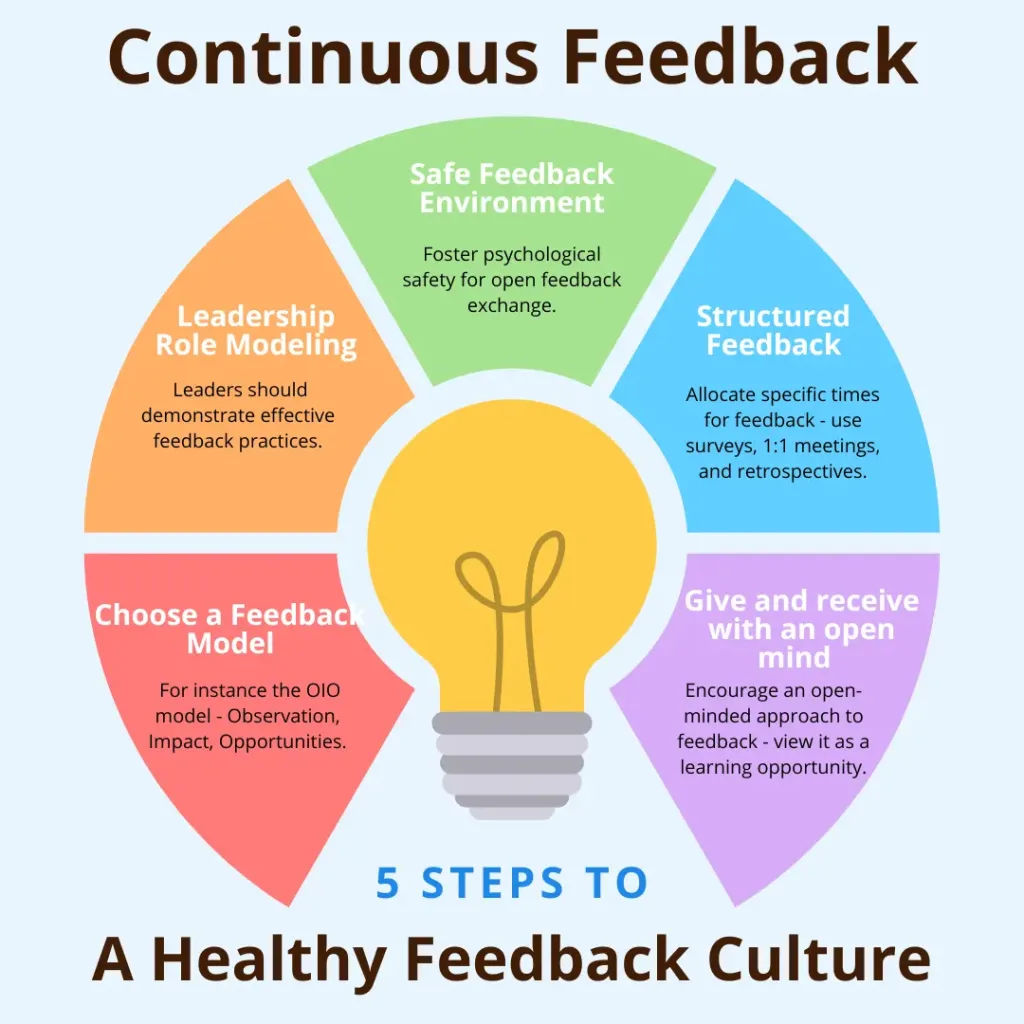
Feedback should be seen as a two-way street, where both giving and receiving are equally important. Engaging in open dialogue encourages employees to take ownership of their development, fosters trust, and builds stronger working relationships. Leaders who model a feedback-rich culture contribute to a more engaged and motivated workforce, where continuous learning is encouraged and ingrained in the organizational DNA.
However, effective feedback requires skill and sensitivity. Poorly delivered feedback can demoralize employees, create resistance, and undermine the growth it seeks to promote. As such, organizations must invest in training their leaders and managers to provide constructive, balanced, and empathetic feedback. This ensures that feedback serves its intended purpose: to support and accelerate personal and professional development.
Effective feedback is imperative for business and a strategic enabler of growth and development. By fostering a feedback-rich culture, organizations can unlock the full potential of their workforce, driving both individual and collective success in a competitive marketplace.
Unlocking Sustained Growth: The Critical Role of Constructive Feedback
In the contemporary workplace, constructive feedback is indispensable in fostering sustained growth for individuals and organizations. Constructive feedback, defined as information provided to improve performance or behavior, is critical in continuously developing skills, enhancing performance, and achieving long-term organizational objectives. Extensive research underscores the importance of constructive feedback and highlights its pivotal role in driving improvement, motivation, and sustained growth.
Constructive feedback is a cornerstone of effective communication within organizations. It provides employees with clear insights into their strengths and areas for improvement, allowing them to make informed decisions about their professional development. Feedback that is both specific and actionable empowers employees to take ownership of their growth, fostering a sense of accountability and engagement. According to research published in the *Journal of Applied Psychology*, employees who receive constructive feedback are likelier to exhibit improved performance, higher job satisfaction, and more significant commitment to their organizations. This underscores feedback’s essential role in correcting behavior and motivating employees to strive for excellence.
One of the critical benefits of constructive feedback is its ability to foster a culture of continuous learning and development. In a study by the Harvard Business Review, organizations that actively promote a feedback-rich environment reported higher levels of innovation and adaptability. This is because feedback encourages employees to embrace a growth mindset, where challenges are viewed as opportunities for learning rather than threats. By normalizing giving and receiving feedback, organizations can create an environment where employees feel safe to experiment, take risks, and learn from their mistakes—critical ingredients for sustained growth.
Constructive feedback is crucial in leadership development. Leaders who master giving feedback can significantly influence their teams’ growth trajectories. Research from the Center for Creative Leadership indicates that leaders who provide regular, constructive feedback are more effective in developing high-performing teams. This is because such feedback guides employees toward achieving their goals, builds trust, and strengthens relationships.
The research also highlights the importance of receiving feedback in fostering personal and professional growth. Feedback allows individuals to gain an external perspective on their performance, which is often more objective than self-assessment. This process empowers individuals to take control of their growth, continuously refine their skills, improve performance, and remain aligned with organizational goals.
However, the effectiveness of feedback depends on how it is delivered and received. Feedback poorly communicated or perceived as critical rather than constructive can have detrimental effects, such as decreased morale and disengagement. Research from Psychological Science suggests that for feedback to be truly constructive, it must be delivered with empathy, clarity, and a focus on future improvement rather than past mistakes. Similarly, individuals must be trained to receive feedback with an open mind and a willingness to learn rather than viewing it as personal criticism.
Research supports the role of constructive feedback in fostering sustained growth. It is a vital personal and organizational development tool, enabling continuous improvement, enhancing performance, and promoting a learning culture. Organizations that prioritize and effectively manage giving and receiving feedback are better positioned to inspire and motivate their employees, leading to long-term success in a competitive and ever-evolving business landscape.
Building a Collaborative and High-Performing Workplace Through Constructive Feedback
In today’s fast-paced and competitive work environment, the ability to give and receive constructive feedback has become an essential skill for fostering personal and professional growth. Beyond individual development, constructive feedback is a powerful tool that can significantly improve performance and strengthen team relationships, ultimately leading to a more collaborative and high-performing workplace. When effectively implemented, constructive feedback transforms how individuals approach their roles, and teams function as cohesive units, making everyone feel part of a successful team and driving overall organizational success.
The Role of Constructive Feedback in Personal and Professional Growth
Constructive feedback serves as a critical mechanism for personal and professional development. It provides individuals with valuable insights into their strengths and areas for improvement, helping them to refine their skills and behaviors in alignment with their career goals and organizational objectives. This continuous feedback and adjustment process is central to a growth mindset, where individuals view challenges as opportunities to learn and grow rather than obstacles to avoid.
Research has consistently shown that individuals who receive regular constructive feedback are more likely to engage in self-reflection and take proactive steps toward self-improvement. A study published in the *Journal of Applied Psychology* highlights that employees who receive specific, actionable feedback demonstrate higher motivation and job satisfaction levels. This is because constructive feedback helps individuals understand the impact of their actions and decisions, enabling them to make more informed choices about their professional development.
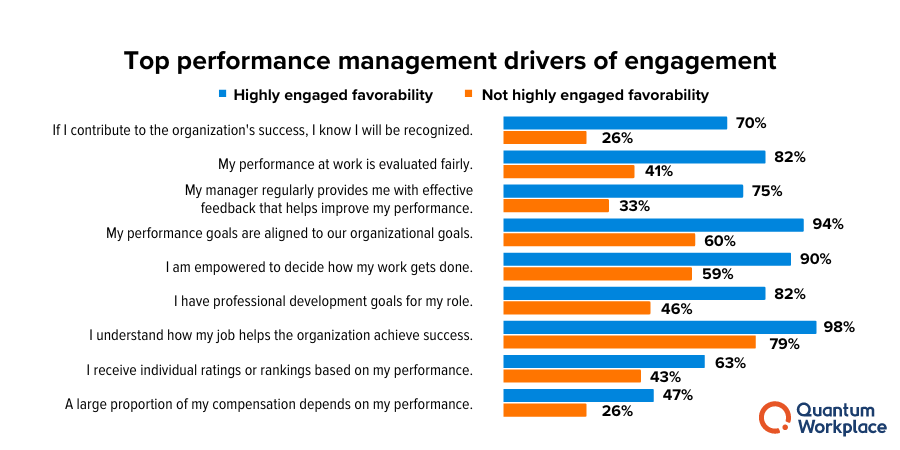
Constructive feedback is essential for setting and achieving personal and professional goals. By providing clear expectations and guidance, feedback helps individuals identify the skills and behaviors they need to develop to advance in their careers. For instance, a manager might provide input to an employee on their communication style, offering suggestions on how to be more assertive or diplomatic in meetings. This feedback helps the employee improve their communication skills and positions them for future leadership roles within the organization.
Constructive feedback also plays a crucial role in fostering a culture of continuous learning. In organizations prioritizing feedback, employees are encouraged to seek out and embrace growth opportunities. This culture of feedback and learning promotes adaptability, a key trait in today’s rapidly changing business environment. Employees who are open to feedback are better equipped to navigate change, as they are more likely to be aware of their strengths and weaknesses and can adjust their behaviors accordingly.
Enhancing Performance Through Constructive Feedback
Beyond personal and professional growth, constructive feedback is a powerful driver of improved performance. Effective feedback gives employees the information they need to understand how their work contributes to the organization’s success and where they need to focus their efforts to achieve better results. This precise alignment between individual performance and organizational goals is crucial for maintaining high levels of productivity and efficiency.
Constructive feedback enhances performance by helping employees identify and overcome obstacles to success. For example, suppose an employee is struggling to meet deadlines. In that case, input from their manager can help them determine the root cause of the issue—whether it’s a lack of time management skills, unclear priorities, or insufficient resources—and develop strategies to address it. By addressing performance issues early and proactively, feedback helps prevent minor problems from escalating into more significant, complex challenges.
Moreover, feedback that is delivered in a timely and specific manner allows employees to make immediate improvements to their work. This real-time adjustment is particularly valuable in fast-paced environments where quick decisions and actions are necessary. According to research by the *Harvard Business Review*, organizations that provide regular, real-time feedback experience higher employee engagement and performance levels. Employees who receive feedback as they work are more likely to stay focused, motivated, and aligned with organizational goals.
In addition, constructive feedback contributes to a sense of accountability among employees. When feedback is tied to specific goals and outcomes, employees are likelier to take ownership of their performance and strive for excellence. This sense of accountability drives individual performance and contributes to a high-performance culture across the organization. Teams accountable for their work are more likely to collaborate effectively and achieve collective success.
Strengthening Team Relationships Through Constructive Feedback
Constructive feedback is not only a tool for individual development and performance enhancement; it also plays a vital role in strengthening team relationships. Teams that engage in regular, open feedback are more likely to develop strong working relationships based on trust, respect, and mutual understanding, which are the foundation of a collaborative and high-performing workplace.
One key benefit of constructive feedback in team settings is that it promotes open communication. When team members feel comfortable giving and receiving feedback, they are more likely to share their ideas, concerns, and perspectives. This open exchange of information is critical for effective collaboration, as it ensures that all team members are on the same page and can work together toward common goals.
Feedback helps to resolve conflicts and prevent misunderstandings within teams. Differences in opinions, work styles, and personalities are inevitable in any team environment. Constructive feedback provides a structured way for team members to address these differences and find solutions that work for everyone. For example, if two team members have different approaches to a project, feedback from a third party (such as a team leader) can help them understand each other’s perspectives and find a compromise that leverages the strengths of both approaches.
Research has shown that teams that engage in regular feedback are more likely to develop a sense of psychological safety. This sense of safety allows team members to feel safe taking risks and making mistakes without fear of judgment or retaliation. This sense of safety is crucial for fostering innovation and creativity within teams. When team members feel secure in their relationships and confident that their contributions are valued, they are likelier to share bold ideas and take the creative risks necessary for breakthrough innovation.
Furthermore, constructive feedback helps to build trust within teams. When feedback is delivered in a respectful and supportive manner, it demonstrates a commitment to the well-being and development of team members. This trust is essential for effective teamwork, as it allows team members to rely on each other and work together toward common objectives. Trust fosters a sense of team belonging, leading to higher engagement and job satisfaction.
Building a Collaborative and High-Performing Workplace
The cumulative effect of constructive feedback on personal and professional growth, performance, and team relationships creates a collaborative and high-performing workplace. Organizations that prioritize feedback as a core component of their culture are better positioned to achieve sustained success in an increasingly competitive business environment.
A collaborative workplace is where employees work together effectively to achieve common goals. Constructive feedback is essential for fostering this collaboration, as it encourages open communication, mutual respect, and a shared commitment to excellence. In a feedback-rich environment, employees are likelier to share their knowledge and expertise, leading to more incredible innovation and problem-solving capabilities.
Moreover, a high-performing workplace is characterized by a continuous improvement culture, where employees constantly seek ways to enhance their skills and contribute to the organization’s success. Constructive feedback is a crucial driver of this constant improvement, providing employees with the information and motivation to pursue excellence in their work. In a high-performing workplace, feedback is not seen as a one-time event but as an ongoing process integral to achieving long-term success.
In addition, constructive feedback helps align individual and team goals with the organization’s broader objectives. When employees understand how their work contributes to the organization’s mission and vision, they are more likely to be motivated and engaged. This alignment of goals ensures that all employees are working toward the same outcomes, leading to greater cohesion and synergy within the organization.
Finally, organizations that foster a culture of constructive feedback are more likely to attract and retain top talent. In today’s competitive job market, employees seek workplaces offering growth, development, and collaboration opportunities. A feedback-rich environment signals potential employees that the organization is committed to their success and well-being, making it an attractive workplace.
Constructive feedback is a powerful tool that fosters personal and professional growth, improves performance, and strengthens team relationships. By creating a culture of continuous feedback, organizations can build a collaborative and high-performing workplace where employees are motivated, engaged, and aligned with organizational goals. Giving and receiving feedback effectively is a valuable skill for individual development and a critical component of organizational success in today’s dynamic business environment. As such, organizations should prioritize feedback as a central element of their culture, ensuring that it is delivered in a timely, specific, and supportive manner that promotes growth, learning, and excellence at all levels of the organization.

Case Study: Adobe’s Shift to a Continuous Feedback Culture
Background:
Adobe, a global leader in software solutions, is renowned for its creative products like Photoshop and Acrobat. However, as the company transitioned from selling boxed software to a subscription-based model (Adobe Creative Cloud), it recognized the need to foster a more agile and adaptive workforce. Adobe transformed its performance management system from annual performance reviews to a continuous feedback model, known as the “Check-in” system, to support this shift. This case study explores how Adobe’s commitment to constant feedback has driven employee engagement, innovation, and organizational success.
The Challenge:
Like many traditional systems, Adobe’s previous annual performance review system was time-consuming, stressful, and often viewed as demotivating by employees. The process involved lengthy evaluations and ratings tied to compensation decisions, usually focusing on past performance rather than future growth and development. This system was misaligned with Adobe’s new, more dynamic business model, which required faster innovation and greater adaptability.
To address these issues, Adobe needed to create a culture that encouraged continuous learning and improvement, where feedback was a regular part of daily work life rather than a once-a-year event.
Adobe’s Continuous Feedback System (“Check-in”):
1. Elimination of Annual Reviews:
• In 2012, Adobe boldly moved by eliminating its traditional annual performance review system. The company replaced it with a more flexible and continuous feedback approach called the “Check-in” system.
• The Check-in system encourages ongoing conversations between managers and employees throughout the year. These conversations focus on setting clear expectations, providing real-time feedback, discussing career development, and adjusting goals as needed.
2. Focus on Real-Time Feedback:
• Adobe’s Check-in system emphasizes the importance of real-time feedback. Managers are trained to give feedback regularly in formal or informal meetings. This timely feedback allows employees to reflect on their performance immediately and make necessary adjustments, leading to continuous improvement.
• The system also encourages peer feedback, where colleagues provide input on each other’s work. This 360-degree approach ensures comprehensive feedback and helps employees understand their impact on the broader team and organization.
3. Empowering Employees:
• Adobe’s new approach shifts the ownership of career development to the employees. Employees are encouraged to take the initiative to seek feedback and drive their development conversations with their managers.
• The Check-in system also aligns individual goals with Adobe’s business objectives, ensuring employees understand how their work contributes to the company’s success. This alignment fosters a sense of ownership and accountability.
4. Support from Leadership:
• Adobe’s leadership played a crucial role in the success of the Check-in system. Leaders at all levels were trained to give constructive feedback, set clear expectations, and coach employees on their development journey.
• By modeling this behavior, Adobe’s leaders reinforced the importance of continuous feedback and created a culture where learning and growth were prioritized.
Outcomes:
1. Increased Employee Engagement and Satisfaction:
• The shift to a continuous feedback system significantly increased employee engagement and satisfaction at Adobe. Employees reported feeling more valued and supported in their roles as they received regular, actionable insights into their performance and development.
• The elimination of the annual review process also reduced stress and anxiety, as employees no longer had to worry about a once-a-year rating that determined their compensation. Instead, compensation decisions were based on ongoing performance and contribution.
2. Enhanced Innovation and Agility:
• The continuous feedback model has helped Adobe become more agile and innovative. With real-time feedback, employees can quickly adapt to changes, experiment with new ideas, and improve their work without waiting for an annual review cycle.
• This agility has been crucial in Adobe’s success in the highly competitive software industry, where the ability to innovate quickly is a key differentiator.
3. Improved Manager-Employee Relationships:
• The Check-in system has strengthened relationships between managers and employees. Regular feedback conversations have built trust and open communication, making it easier for managers to guide and support their teams.
• This stronger relationship has led to better collaboration, higher morale, and a more cohesive work environment.
4. Alignment with Business Goals:
• Adobe’s continuous feedback culture ensures that individual goals align with the company’s strategic objectives. As a result, employees are more focused on contributing to the company’s success, and the organization can adapt its goals as the business environment evolves.
• This alignment has played a critical role in Adobe’s successful transition to the subscription-based model and its continued growth in the digital space.
Conclusion:
Adobe’s transition to a continuous feedback culture through the Check-in system demonstrates the powerful impact of constructive feedback on employee engagement, innovation, and organizational success. Adobe has created a more agile and motivated workforce by eliminating annual reviews and fostering a real-time feedback culture. This approach aligns employees’ efforts with the company’s strategic goals and supports their ongoing development and career growth. Adobe’s case highlights the importance of continuous feedback as a strategic tool for driving performance, innovation, and long-term business success in a fast-evolving industry.

Exercise: The Role of Constructive Feedback in Driving Continuous Learning and Organizational Success
• Begin by briefly discussing the role of feedback in an organization. Consider how constructive feedback can influence continuous learning, performance improvement, and organizational growth.
• Reflect on how effective feedback differs from traditional performance evaluation and why it is crucial for fostering a proactive, growth-oriented culture.
• Scenario: Imagine your organization is implementing a new feedback system to replace the traditional annual performance reviews. The goal is to create a continuous learning and adaptability culture where feedback is timely, specific, and actionable.
1. What challenges might arise in shifting from annual reviews to continuous feedback? How can these challenges be addressed?
2. How can feedback be structured to ensure it is timely, specific, and relevant to individual roles and the organization’s strategic goals?
3. Discuss the importance of making feedback a two-way process. How can leaders encourage open dialogue and ensure employees feel comfortable giving and receiving feedback?
4. What training or support might managers and employees need to deliver and receive feedback effectively?
1. Feedback Frequency: How often should feedback be given? Should it be part of daily operations, scheduled regular check-ins, or a mix?
2. Feedback Delivery: What methods can be used to deliver feedback (e.g., one-on-one meetings, peer reviews, digital platforms)? How can you ensure the feedback is constructive and balanced?
3. Encouraging a Growth Mindset: How can the organization promote a growth mindset that views feedback as an opportunity for learning and improvement rather than criticism?
4. Integration with Business Objectives: How will feedback align with the organization’s strategic goals, ensuring that individual and team efforts contribute to overall success?
• Each group will present their strategy to the larger group. Focus on how your strategy addresses the challenges of implementing a continuous feedback culture and how it aligns feedback with the organization’s goals.
• Be prepared to discuss the potential impact of your strategy on employee engagement, performance, and organizational adaptability.
• Reflect on the different strategies proposed by the groups. What common themes emerged? What unique ideas stood out?
• Discuss how your organization can begin implementing some of these strategies and the potential challenges that might arise.
• Consider how fostering a continuous feedback culture could transform your organization’s learning, innovation, and growth approach.

Course Manual 7: Resilience and Adaptability
Resilience and adaptability have emerged as crucial traits for effective leadership. In the face of increasing volatility, uncertainty, complexity, and ambiguity (VUCA) in global markets, leaders who can navigate challenges with agility and maintain composure under pressure are in high demand. Resilience, the ability to recover quickly from setbacks, is no longer just desirable but necessary for sustaining business operations. It plays a pivotal role in fostering a positive organizational culture, where employees feel secure and motivated to perform at their best. Similarly, adaptability—the capacity to adjust strategies, behaviors, and mindsets in response to changing circumstances—is essential for leaders who aim to steer their organizations through periods of disruption and uncertainty.
Resilient leaders can withstand the pressures of crises, maintain a sense of purpose, and inspire confidence in their teams. They possess a growth mindset that views failures as opportunities for learning rather than insurmountable obstacles. This mindset helps leaders recover from setbacks and encourages a culture of continuous improvement within their organizations. In times of crisis, resilient leaders act as stabilizing forces, providing direction and reassurance to their teams and ensuring that the organization remains focused on its long-term goals. This stabilizing role makes resilient leaders feel more integral and valued in their organizations, knowing that their actions can make a significant difference in times of crisis.
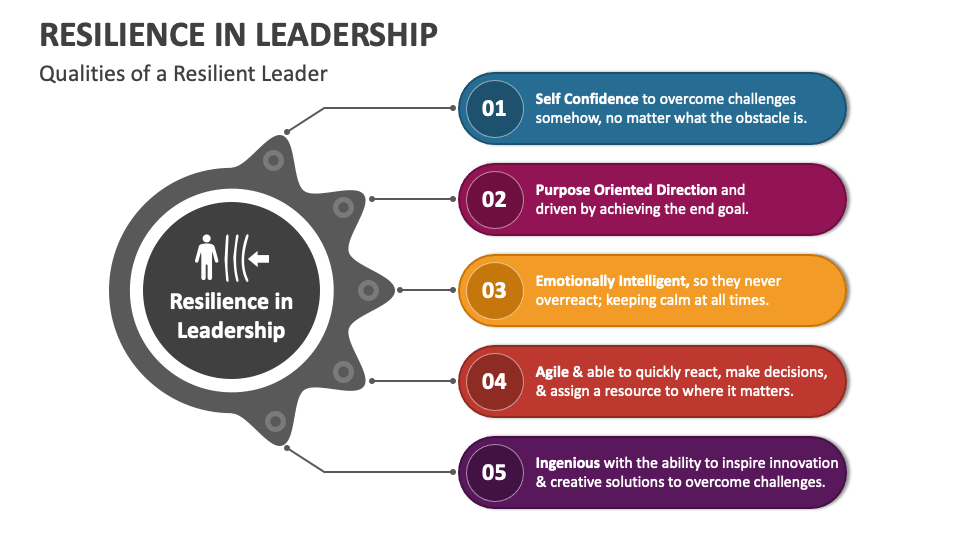
On the other hand, adaptability is a powerful tool that empowers leaders to pivot strategies, embrace new ideas, and innovate in response to external changes. In a world where technological advancements, regulatory changes, and shifting consumer preferences can upend established business models overnight, adaptable leaders are the ones who can ensure their organizations remain competitive. They are open to feedback, value diverse perspectives, and are willing to experiment with new approaches to problem-solving. By fostering a culture of adaptability, leaders can empower their teams to embrace change, which is crucial for driving innovation and maintaining relevance in a fast-paced business environment. This empowerment instills a sense of control and confidence in leaders, knowing they can steer their organizations through any change.
The intersection of resilience and adaptability in leadership is particularly significant. A resilient and adaptable leader manages to recover from challenges, learns from them, and adjusts strategies accordingly. This combination ensures the organization can thrive in adversity and seize opportunities from change. In essence, resilience and adaptability are not just survival skills but are foundational to building sustainable, future-ready organizations. As such, leaders who cultivate these qualities are better equipped to navigate the complexities of the modern business world, ensuring long-term success and growth.
Unlocking Success: The Power of Resilience and Adaptability in Leadership
In an era marked by rapid technological advancements, global interconnectedness, and constant change, cultivating resilience and adaptability as a leader has become more critical. These qualities enable leaders to navigate the inevitable challenges and position them to seize opportunities and drive their organizations toward sustained success. Understanding the upside of nurturing these traits can reveal why they are indispensable in modern leadership.
Resilience: The Foundation of Long-Term Success
Resilience is the ability to bounce back from adversity, whether a financial setback, a sudden market shift, or an internal crisis. Leaders who nurture resilience within themselves and their teams can sustain their operations despite significant challenges. The upside of resilience lies in its capacity to create a stable and supportive environment where employees feel secure and motivated to perform at their best, regardless of external pressures.
A resilient leader is a role model, demonstrating to their team that setbacks are not failures but learning opportunities. This perspective encourages a culture of continuous improvement, where mistakes are analyzed constructively, and innovation is born out of adversity. Furthermore, resilience fosters trust and loyalty among employees as they see their leader confidently steering the organization through difficult times. This trust translates into higher employee engagement and retention, critical components of long-term organizational success.
Resilience also enhances decision-making under pressure. When leaders can maintain their composure in crises, they are better equipped to assess the situation objectively, consider all options, and make informed decisions. This ability to think clearly and strategically in the face of adversity often leads to better outcomes for the organization, as leaders can navigate complex challenges without succumbing to panic or hasty decisions.
Adaptability: Thriving in a Dynamic Environment
While resilience helps leaders withstand challenges, adaptability allows them to thrive in a dynamic and ever-changing environment. Nurturing adaptability has the strategic advantage of keeping an organization competitive and relevant. In a world where technological advancements and market trends can shift overnight, adaptable leaders can pivot strategies quickly, embrace new technologies, and respond to changing customer needs. This proactive nature of adaptability makes leaders feel more strategic and forward-thinking as they anticipate changes in the business landscape and prepare their organizations accordingly.
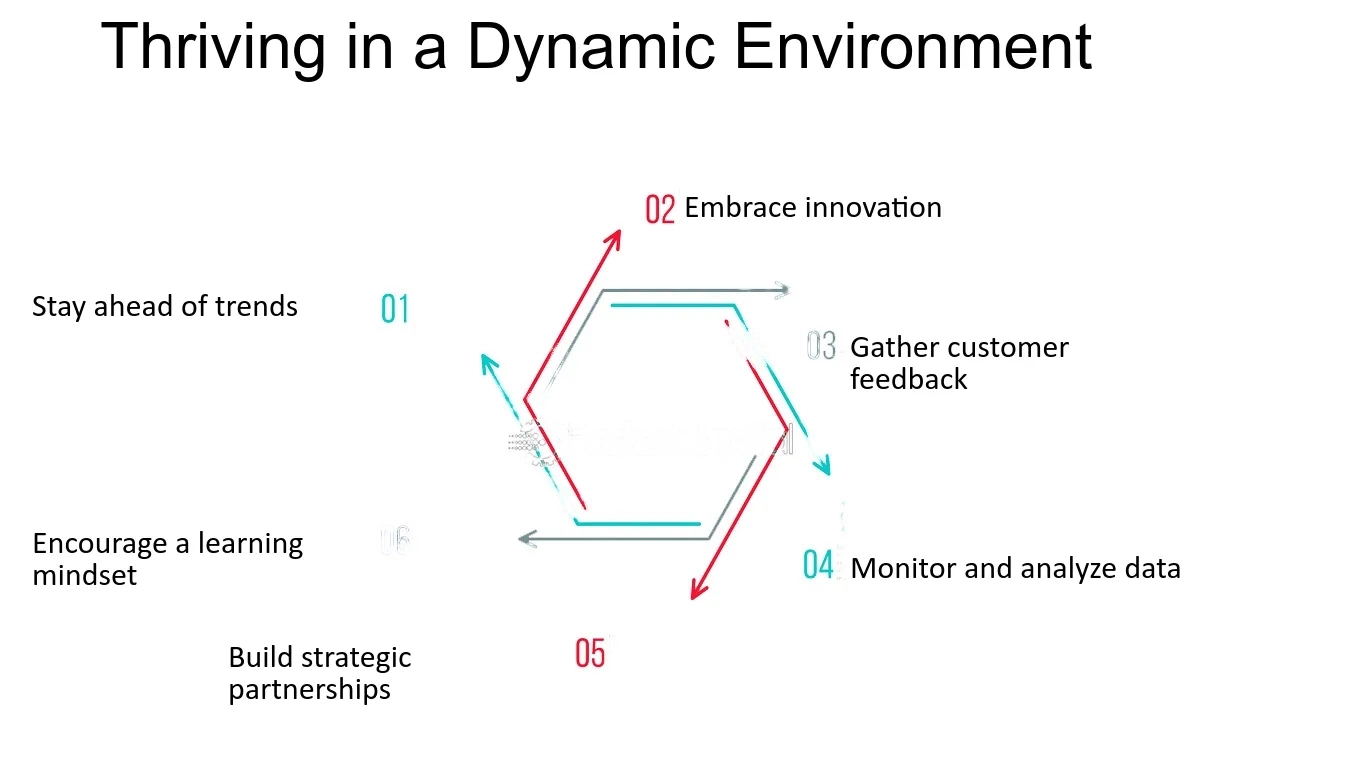
Adaptable leaders are not only reactive but also proactive. They anticipate changes in the business landscape and prepare their organizations accordingly. This foresight allows them to stay ahead of the curve, positioning their companies as industry leaders rather than followers. Moreover, adaptability fosters a culture of innovation within the organization. Leaders who are open to new ideas and approaches encourage their teams to think creatively and experiment with new solutions. This innovative mindset is crucial for driving growth and maintaining a competitive edge in today’s fast-paced business environment.
Adaptability also plays a vital role in managing diverse teams and navigating cultural differences, which are increasingly important in a globalized world. Leaders who adapt their communication styles, management approaches, and business strategies to different cultural contexts are better equipped to lead international teams and expand into new markets. This underscores the global leadership role of resilience and adaptability, making leaders feel more globally competent.
The Synergy of Resilience and Adaptability
When combined, the upside of nurturing resilience and adaptability as a leader is realized. Resilient, adaptable leaders recover from challenges, learn from them, and adjust their strategies to emerge stronger. This combination creates a powerful, stable, and flexible leadership style, providing consistent direction while remaining open to change.
For organizations, having leaders who embody resilience and adaptability means having the capacity to endure disruptions and capitalize on opportunities. It enables them to maintain continuity during crises, innovate continuously, and stay competitive in a rapidly evolving market. Such leaders cultivate more engaged, innovative, and committed teams to the organization’s success.
While resilience and adaptability are crucial, it’s also important to remember that they are not the only qualities that make a great leader. Over-reliance on these traits can lead to burnout and a lack of strategic direction. A balanced approach that incorporates other leadership qualities such as empathy, strategic thinking, and effective communication is essential for sustained success in a rapidly changing business environment.
Resilient Leadership
In today’s fast-paced, unpredictable business environment, the need for resilient leadership has never been greater. Organizations face constant pressure from technological advancements, economic fluctuations, and an increasingly complex global marketplace. Resilient leaders are better equipped to handle these stresses and more capable of adapting to changing circumstances and guiding their teams through challenges. This ability to maintain composure and effectiveness in the face of adversity is crucial for ensuring sustained organizational success.
The Nature of Resilience in Leadership
Resilience in leadership refers to the ability to recover from setbacks, remain focused under pressure, and continue to lead effectively despite challenges. Resilient leaders possess a mental toughness that enables them to withstand the rigors of leadership without succumbing to stress. They view obstacles as opportunities for growth rather than insurmountable barriers. This mindset is foundational to their capacity to lead teams through difficult times and sustain long-term organizational success.
A resilient leader is not immune to stress but is skilled at managing it. This involves a combination of emotional intelligence, self-awareness, and coping strategies that allow them to maintain a balanced perspective, even when facing significant challenges. Such leaders can modulate their emotional responses to stress, avoiding panic and maintaining clarity of thought. This level-headedness is critical for their well-being and the morale and performance of their teams.
The Impact of Stress Management on Leadership Effectiveness
Stress is an inevitable aspect of leadership, especially in volatile business environments. However, how a leader manages stress can significantly impact their effectiveness. Resilient leaders are better equipped to handle stress, which can directly affect their decision-making abilities, interpersonal relationships, and overall leadership performance.
When leaders manage stress effectively, they can think more clearly and make better decisions. Stress often narrows a person’s focus and impairs cognitive functions, leading to hasty decisions that may not be in the organization’s best interest. Resilient leaders, on the other hand, can maintain a broader perspective, considering all relevant factors before making decisions. This careful consideration often leads to more strategic and well-thought-out choices that benefit the organization long-term.
Furthermore, stress management is crucial in maintaining healthy interpersonal relationships within a team. Leaders who are overwhelmed by stress may unintentionally project their frustrations onto their teams, leading to a toxic work environment. In contrast, resilient leaders can manage their stress to prevent it from negatively affecting their interactions with others. This helps foster a positive, supportive work environment where team members feel valued and motivated, which is essential for high performance and sustained success.
Adaptability: A Core Component of Resilient Leadership
Adaptability is another crucial characteristic of resilient leaders. In a business world where change is the only constant, adapting quickly and effectively is essential for long-term success. Resilient leaders are adept at adjusting their strategies, behaviors, and mindsets in response to new information, unexpected challenges, or shifting market conditions. This flexibility allows them to steer their organizations through turbulent times without losing sight of their goals.
Resilient leaders are adaptable because they are open to change and embrace uncertainty. They understand that rigid adherence to outdated strategies can be detrimental in a rapidly evolving environment. Instead, they remain agile, continuously seeking new opportunities and refining their approaches to align with current realities. This proactive approach to change enables resilient leaders to keep their organizations competitive and relevant in the face of shifting external conditions.
Adaptability also involves the ability to learn from experience. Resilient leaders view failures not as endpoints but as valuable learning opportunities. This growth mindset allows them to extract lessons from every situation, which they can apply to future challenges. By continuously learning and evolving, resilient leaders ensure that their organizations continuously improve and move forward, even in adversity.
Leading Teams Through Challenges
Resilient leaders play a critical role in guiding their teams through challenges. Their ability to remain calm and focused under pressure stabilizes their teams, providing reassurance and direction during times of uncertainty. This leadership quality is vital for maintaining team morale and cohesion, overcoming challenges, and achieving organizational goals.
Teams often look to their leaders for guidance and support when facing difficult situations. A resilient leader can provide both by modeling a positive attitude and demonstrating confidence in the team’s ability to succeed. This can profoundly affect team members, boosting their confidence and encouraging them to persevere through challenges. Additionally, resilient leaders are skilled at keeping their teams focused on the long-term vision, helping them to stay motivated and engaged even when immediate circumstances are difficult.
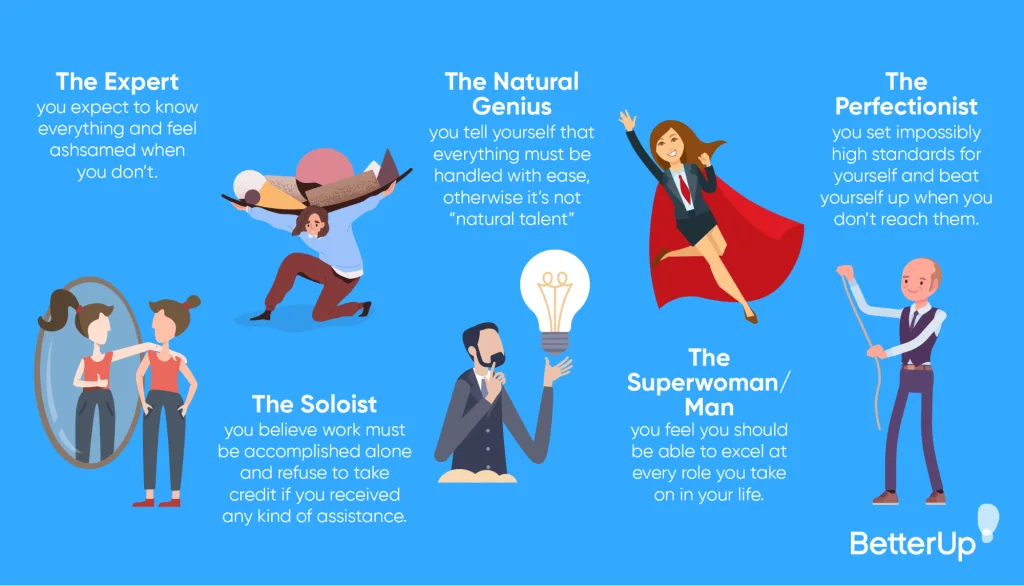
Effective communication is another crucial aspect of leading teams through challenges. Resilient leaders excel in communicating clearly and honestly with their teams, providing them with the information and context they need to understand the situation and their role in addressing it. By maintaining open lines of communication, resilient leaders foster trust and collaboration within their teams, which is essential for navigating complex challenges.
Moreover, resilient leaders are proactive in supporting their teams’ well-being. They recognize that challenges can take a toll on their team members’ mental and emotional health, and they take steps to mitigate this impact. Whether through offering additional resources, providing opportunities for professional development, or simply being available for one-on-one support, resilient leaders show their commitment to their team’s overall well-being. This helps the team weather the storm and builds loyalty and resilience within the team itself.
Sustained Organizational Success Through Resilient Leadership
Resilient leaders’ ability to manage stress, adapt to change, and guide their teams through challenges is directly linked to sustained organizational success. Organizations led by resilient leaders are more likely to thrive in the face of adversity, as these leaders are equipped to navigate challenges without losing momentum.
Resilient leadership contributes to sustained success by fostering a culture of resilience within the organization. When leaders model resilience, they set the tone for the entire organization. Employees are more likely to adopt resilient behaviors, such as persistence, adaptability, and a positive attitude toward change. This collective resilience enhances the organization’s ability to respond to challenges effectively, minimizing disruptions and maintaining productivity.
Furthermore, resilient leaders are often better at strategic planning and risk management. Their ability to anticipate potential challenges and adapt their strategies accordingly means that their organizations are less likely to be caught off guard by unexpected events. This foresight enables organizations to prepare for and mitigate risks, reducing the likelihood of significant setbacks and ensuring they can continue pursuing their long-term objectives.
Resilient leadership also positively impacts organizational innovation. By fostering a culture that values learning from failure and embracing change, resilient leaders encourage their teams to experiment with new ideas and approaches. This openness to innovation is crucial for staying competitive in today’s fast-paced business environment. Organizations that continuously innovate are better positioned to capitalize on new opportunities and maintain their market position over time.
In addition, resilient leaders contribute to sustained success by building strong, cohesive teams. Their ability to manage stress, communicate effectively, and support their team members’ well-being leads to higher employee engagement and satisfaction. Engaged employees are more productive, more committed to the organization’s goals, and more likely to contribute innovative ideas. This high level of engagement is a crucial driver of long-term organizational success.
Resilient leaders are essential for navigating the complexities of today’s business environment. Their ability to manage stress, adapt to changing circumstances, and lead their teams through challenges is crucial for ensuring sustained organizational success. By fostering a culture of resilience, encouraging adaptability, and supporting their teams through difficult times, resilient leaders create organizations that can survive in a rapidly changing world and thrive.
As organizations continue to face unprecedented challenges, the importance of resilient leadership will only grow. Leaders who cultivate resilience within themselves and their teams will be better equipped to handle whatever challenges come their way, ensuring that their organizations remain strong, competitive, and thriving in the long term. In a world where constant change and challenges are inevitable, resilient leadership is not just a desirable quality but a critical component of sustained success.

Mary Barra’s Resilient and Adaptable Leadership at General Motors
Background:
Mary Barra became the CEO of General Motors (GM) in 2014, making history as the first woman to lead a major global automaker. Barra took the helm when GM emerged from significant challenges, including a government bailout and bankruptcy during the 2008 financial crisis. The company was also facing intense competition, technological disruption in the automotive industry, and a severe safety crisis due to faulty ignition switches, which led to numerous recalls and legal battles.
Barra’s leadership has been a defining example of resilience and adaptability, enabling GM to navigate through crises, embrace innovation, and position itself for long-term success in a rapidly changing industry.
The Challenge:
When Barra became CEO, GM was dealing with the fallout from the ignition switch scandal, which involved defective parts linked to numerous accidents and fatalities. The company faced significant reputational damage, regulatory scrutiny, and financial penalties. Moreover, the automotive industry was undergoing a significant transformation with the rise of electric vehicles (EVs), autonomous driving technology, and new mobility solutions like ride-sharing, requiring GM to rethink its business model and long-term strategy.
Barra needed to steer GM through these immediate crises while preparing the company to compete in a future dominated by new technologies and shifting consumer preferences.
Resilience in Leadership:
1. Taking Responsibility:
• One of Barra’s first significant actions as CEO was confronting the ignition switch scandal head-on. She publicly acknowledged GM’s failures, took responsibility for the company’s past mistakes, and launched an internal investigation to understand what went wrong. This level of accountability was crucial in rebuilding trust with customers, regulators, and the public.
• Barra also restructured GM’s safety protocols, creating a new position for a Global Vehicle Safety chief, who directly reported to her. This move reinforced GM’s commitment to safety and quality, helping to stabilize the company’s reputation during a tumultuous period.
2. Maintaining Focus and Stability:
• Throughout the crisis, Barra remained focused on the long-term goals of GM. She balanced the need to manage immediate challenges with the strategic imperative to prepare GM for the future of transportation. Her ability to maintain composure under pressure and keep the company on track was a testament to her resilience.
• Barra also emphasized the importance of culture change within GM, encouraging employees to adopt a mindset of accountability and continuous improvement. This cultural shift was essential in ensuring that past mistakes would not be repeated.
3. Rebuilding Trust and Confidence:
• Barra’s transparent and proactive crisis handling helped rebuild stakeholder trust. She implemented a compensation program for victims and their families and worked closely with regulators to ensure that GM met all safety and quality standards.
• This commitment to doing the right thing, even under challenging circumstances, reassured employees and customers that GM was on the path to recovery and long-term success.
Adaptability in Leadership:
1. Pivoting to Electric Vehicles (EVs):
• Recognizing the shift towards sustainable transportation, Barra boldly committed to transforming GM into a leader in electric vehicles. Under her leadership, GM announced plans to phase out internal combustion engines by 2035 and invest heavily in EV technology and infrastructure.
• This pivot required significant changes in GM’s operations, including retooling manufacturing plants, developing new supply chains for battery production, and investing in research and development for autonomous and connected vehicles. Barra’s adaptability enabled GM to stay ahead of the curve in an industry undergoing rapid technological change.
2. Embracing New Business Models:
• Barra understood that the future of transportation would involve more than just selling cars. She led GM’s push into new mobility solutions, including ride-sharing, car-sharing, and autonomous driving technology. The acquisition of Cruise, an autonomous vehicle startup, was a vital part of this strategy, positioning GM as a serious player in the race to develop self-driving cars.
• Barra’s willingness to explore and invest in these new business models demonstrated her adaptability and foresight, ensuring that GM could remain competitive in a rapidly evolving market.
3. Fostering Innovation and a Growth Mindset:
• Barra encouraged a culture of innovation within GM, breaking down silos and promoting cross-functional collaboration. She empowered teams to experiment with new ideas and take calculated risks, fostering a growth mindset across the organization.
• This cultural shift enabled GM to accelerate its transition to new technologies and adapt to changing consumer demands. Barra’s leadership ensured that GM could innovate at a pace necessary to compete with new entrants in the automotive industry.
Outcomes:
1. Financial Recovery and Growth:
• Under Barra’s leadership, GM successfully navigated the ignition switch crisis and emerged as a stronger, more resilient company. The company’s financial performance improved significantly, with GM consistently delivering strong earnings and maintaining a solid balance sheet.
• Barra’s focus on electric vehicles and new mobility solutions also positioned GM for future growth, with the company gaining recognition as a leader in the transition to sustainable transportation.
2. Enhanced Reputation and Trust:
• Barra’s transparent and accountable leadership during the crisis helped to restore GM’s reputation. The company regained the trust of its customers and stakeholders, as evidenced by strong sales and positive brand perception in the years following the crisis.
• GM’s commitment to safety and quality, reinforced by Barra’s actions, became a core part of the company’s identity, further strengthening its reputation in the industry.
3. Leadership in Electric and Autonomous Vehicles:
• GM’s pivot to electric vehicles and autonomous technology under Barra’s leadership has positioned the company as a leader in the future of transportation. The launch of the Chevrolet Bolt, one of the first affordable electric vehicles with long-range batteries, was a significant milestone in GM’s transformation.
• The continued development of Cruise’s autonomous vehicle technology has also put GM at the forefront of innovation in the automotive industry, ensuring the company remains competitive.
Conclusion:
Mary Barra’s leadership at General Motors exemplifies the critical importance of resilience and adaptability in today’s business environment. Her ability to navigate the company through a significant crisis while simultaneously preparing it for the future highlights the powerful impact of these traits on organizational success.
Barra’s resilient leadership stabilized GM during a significant challenge, while her adaptability allowed the company to pivot towards new opportunities in electric and autonomous vehicles. This combination of resilience and adaptability has ensured that GM remains a strong and competitive player in the global automotive industry, poised for long-term success.
This case study underscores that resilient and adaptable leadership is essential for guiding organizations through uncertainty and positioning them for future growth in an era of rapid change and disruption.

Exercise: Exploring Resilience and Adaptability in Leadership
• Form pairs with a colleague.
• Partner A: Share a situation from your work experience where you faced a significant challenge or crisis. Discuss how you or your leader demonstrated resilience during this time. How did maintaining composure and a sense of purpose help you navigate the situation? What was the outcome, and what did you learn from the experience?
• Partner B: Listen actively and take notes on key points, focusing on how resilience played a role in overcoming the challenge.
• Partner B: Now share an experience where adaptability was crucial. Discuss when you or your leader had to pivot strategies or embrace change due to unforeseen circumstances. How did openness to new ideas and feedback help adjust to the new conditions? What impact did this adaptability have on the team and the organization?
• Partner A: Listen actively, noting how adaptability contributed to successfully navigating the situation.
• Discuss the similarities and differences between the two experiences. How did resilience and adaptability complement each other in these scenarios?
• Reflect on the impact of these traits on team dynamics, decision-making, and overall organizational success.
• Together, brainstorm two or three strategies that can help foster resilience and adaptability within your team or organization.
• Consider specific actions leaders can take to develop these traits, such as promoting a growth mindset, encouraging continuous learning, and creating an environment that supports experimentation and innovation.
• Discuss how you can apply these strategies in your current roles to better navigate future challenges and uncertainties.
• After completing the exercise, each pair will briefly share one critical insight or strategy they developed with the larger group.
• Reflect on how cultivating resilience and adaptability can prepare leaders and teams for success in a volatile, uncertain, complex, and ambiguous (VUCA) world.

Course Manual 8: Building Trust
Building and maintaining trust has never been more critical in today’s dynamic business landscape, where rapid technological advancements, shifting market demands, and global uncertainties are the norm. Trust, a cornerstone of effective business relationships, is the glue that holds together the intricate web of interactions among employees, customers, partners, and stakeholders. However, in an environment characterized by constant change, fostering and sustaining this trust presents unique challenges that require a strategic and adaptable approach.
The changing environment, driven by digital transformation, brings new opportunities and risks that businesses must navigate carefully. With the rise of digital transformation, remote work, and evolving consumer expectations, companies are compelled to rethink their traditional methods of operation. In this context, trust is not merely a nice-to-have quality but a vital component of a resilient and sustainable business model. Trust influences everything from employee engagement and customer loyalty to brand reputation and competitive advantage.
One of the most significant challenges in building trust in a changing environment is the potential for uncertainty and misinformation. As businesses adopt new technologies and processes, there is often a learning curve that can lead to misunderstandings or perceived inconsistencies. Furthermore, the increasing prevalence of misinformation in the digital age can erode trust if not proactively addressed. Companies must prioritize transparency and open communication to mitigate these risks, ensuring that all stakeholders are kept informed and engaged throughout periods of change.
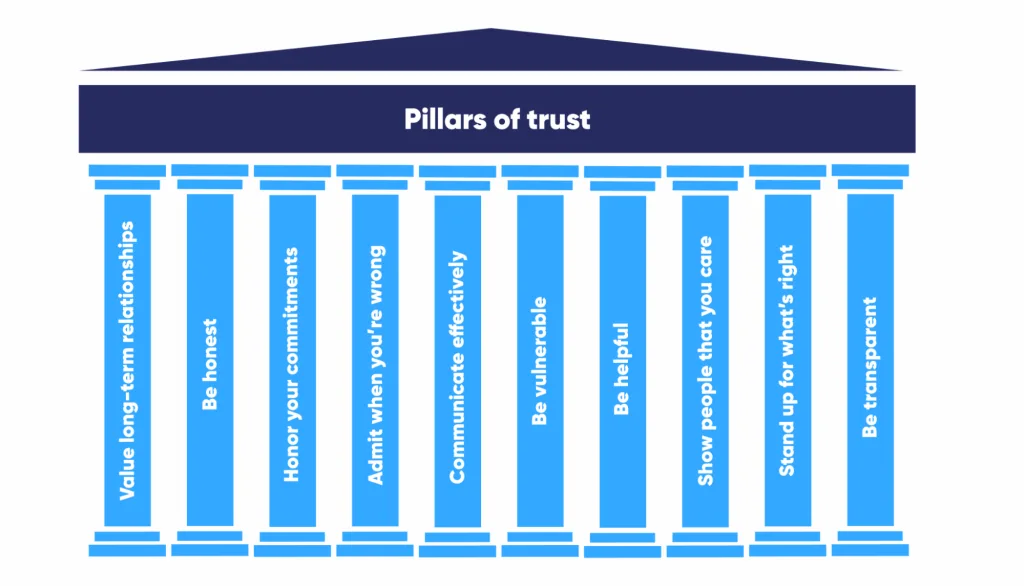
Leadership, particularly during times of uncertainty, plays a pivotal role in building trust in a changing environment. Leaders who embody integrity, empathy, and consistency are more likely to inspire trust among their teams and customers. In times of uncertainty, strong leadership becomes a beacon, guiding organizations through challenges and reinforcing the confidence of all involved. Leaders must also be adaptable, recognizing when to pivot strategies and communicate these changes effectively to maintain trust.
Another crucial aspect of trust-building in a changing environment is the alignment of actions with values. Staying true to core values while adapting to new circumstances is essential for maintaining credibility and trust as businesses evolve. Organizations that consistently demonstrate a commitment to ethical behavior, social responsibility, and customer-centricity are more likely to foster long-term trust, even in the face of significant change.
Building trust in a changing environment is a complex but essential business endeavor. By prioritizing transparency, strong leadership, and value alignment, companies can navigate change challenges while maintaining the trust crucial for long-term success.
Strategies for Building and Maintaining Trust During Organizational Change
Building and maintaining trust during times of change is essential for organizational success in an ever-evolving business environment characterized by rapid technological advancements, shifting market dynamics, and global uncertainties. Trust is the foundation upon which strong relationships are built, and in periods of change, it becomes even more critical as employees, customers, and stakeholders look for stability and reassurance. Developing strategies to foster and sustain trust during these times is not just advantageous but necessary for the resilience and longevity of any business.
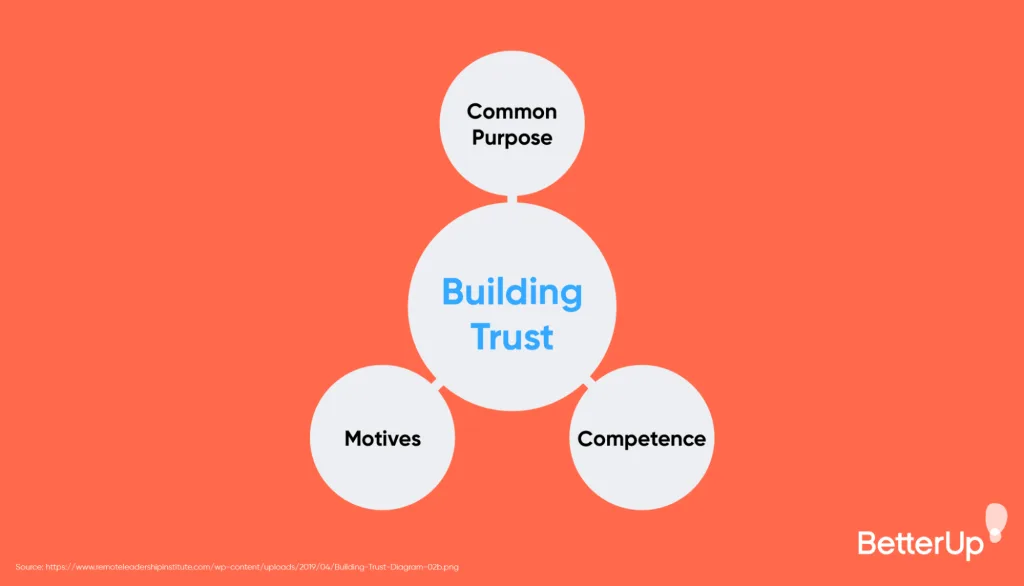
1. Prioritize Transparent Communication
Transparency in communication is not just a strategy but a powerful tool for building and maintaining trust during change. People are more likely to trust an organization that informs them about what is happening, why, and how those changes will impact them. When leaders communicate openly, they demonstrate that they respect and value the concerns of their employees and customers, which in turn strengthens trust. This approach ensures everyone is on the same page, fostering a sense of involvement and understanding.
Rumors and misinformation can spread quickly during change, potentially undermining trust. Organizations should establish clear and consistent communication channels where accurate information is regularly disseminated to combat this. Whether through town hall meetings, newsletters, or digital platforms, maintaining a steady flow of information helps alleviate fears and build confidence among all stakeholders.
2. Demonstrate Consistent Leadership
Leadership plays a pivotal role in building trust during times of change. When uncertain, employees and stakeholders look to leaders for guidance and assurance. Leaders who exhibit consistency in their actions and decisions, align their words with deeds, and show empathy toward their teams are likelier to inspire trust.
Consistency doesn’t mean rigidity; it means being dependable in making and communicating decisions. It involves a commitment to core values and principles, even as strategies and operations evolve. Leaders should also be approachable and willing to listen, respectfully addressing concerns and feedback. When leaders are transparent about their decision-making processes and involve others in those processes where appropriate, they foster a collaborative environment that reinforces trust.
3. Empower Employees and Stakeholders
Empowering employees and stakeholders during change is another crucial strategy for maintaining trust. When people feel they have a voice and a degree of control over the changes that affect them, they are more likely to trust the process and the organization leading it. This strategy not only fosters trust but also makes them feel involved and valued. Empowerment can take many forms, from involving employees in planning and decision-making to providing them with the tools and training needed to adapt to new circumstances.
Involving stakeholders—such as customers, partners, and investors—in discussions about change helps to build a sense of ownership and shared responsibility. Organizations demonstrate that they value these relationships and are committed to mutual success by actively seeking their input and addressing their concerns.
4. Align Actions with Organizational Values
Trust is closely tied to the perception that an organization’s actions are aligned with its stated values. During times of change, this alignment is put to the test. Organizations that consistently uphold their values are likelier to maintain trust even when faced with difficult decisions. This alignment reassures stakeholders that the organization’s values remain intact, fostering a sense of alignment and reassurance. For example, a company prioritizing customer service should continue prioritizing this value even when implementing significant operational changes. Similarly, if a business emphasizes ethical behavior, it must ensure that its actions during times of change reflect this commitment.
Ensuring that all employees understand and embrace these values is also critical. Regular training and communication about the organization’s core values help reinforce their importance and guide behavior, especially when navigating change.
5. Be Adaptive and Responsive
Change is inherently unpredictable, and adapting quickly while maintaining trust is a valuable skill. Organizations responsive to new information, changing conditions, and stakeholder feedback are better positioned to adjust their strategies while maintaining trust. This responsiveness involves being open to course corrections and demonstrating a willingness to learn and improve.
Being adaptive also means anticipating potential challenges and addressing them proactively. For instance, if a change is likely to cause concern among employees or customers, addressing these concerns upfront with straightforward, honest communication can prevent trust from eroding.
Building and maintaining trust during times of change is a multifaceted challenge that requires a strategic approach centered on transparent communication, consistent leadership, empowerment, value alignment, and adaptability. By focusing on these critical areas, organizations can navigate the complexities of change while preserving the trust vital for long-term success. Trust is not a static quality but a dynamic one that must be continuously nurtured, especially amid uncertainty and transformation.
The Key to Building Trust
In today’s fast-paced and unpredictable business environment, building and maintaining high levels of trust within an organization is a critical determinant of success. Trust is the foundation upon which all successful relationships are built, both within the organization and with external stakeholders. It fosters collaboration, drives employee engagement, and enhances the overall resilience of an organization, enabling it to navigate change more effectively. Understanding the profound impact of trust on these aspects can help organizations cultivate a culture that survives and thrives amid the challenges of the modern business world.
1. Trust as the Foundation for Stronger Collaboration
Collaboration is the engine that drives innovation and problem-solving within an organization. With high trust levels, employees are likelier to collaborate effectively, share ideas, and engage in productive dialogue. Trust reduces the barriers that often inhibit open communication and information sharing, essential for collaboration.
In an environment where trust is prevalent, employees feel safe expressing their ideas, even when they may be unconventional or challenge the status quo. This openness leads to a more dynamic exchange of perspectives, fostering creativity and innovation. Teams that trust each other are more willing to take risks together, knowing their colleagues will support them. This collective risk-taking is crucial for organizations looking to innovate and stay competitive.
Moreover, trust facilitates smoother collaboration across different organizational levels and departments. When trust is established between leaders and their teams, as well as among peers, the resulting cohesion can break down silos and encourage cross-functional cooperation. This collaboration is essential when an organization faces complex challenges requiring diverse expertise and perspectives. In such cases, trust enables the effective integration of different viewpoints, leading to more holistic and robust solutions.
In contrast, in environments lacking trust, collaboration can be stifled by fear, competition, and miscommunication. Employees may hesitate to share information or ideas, fearing that they will be judged or their contributions will be undervalued. This reluctance can lead to missed opportunities and a culture of disengagement, where individuals work in isolation rather than as part of a cohesive team.
2. Trust Drives Higher Employee Engagement
Employee engagement is another critical factor deeply influenced by the level of trust within an organization. Engaged employees are emotionally and psychologically invested in their work and the organization’s success. High levels of trust foster this engagement by creating a work environment where employees feel valued, supported, and empowered.
When employees trust their leaders and the organization, they are more likely to be committed to their roles and go above and beyond. Trust in leadership, in particular, plays a significant role in employee engagement. Transparent leaders communicate openly and demonstrate integrity in their actions to build trust with their teams. This trust, in turn, encourages employees to take ownership of their work, as they believe in the organization’s mission and feel confident that their efforts will be recognized and rewarded.
Furthermore, trust enhances job satisfaction by contributing to a positive workplace culture. Employees who trust their colleagues and managers are likelier to enjoy their work, feel a sense of belonging, and experience lower stress levels. This satisfaction boosts engagement and reduces turnover, as employees are less likely to leave an organization where they feel trusted and appreciated.
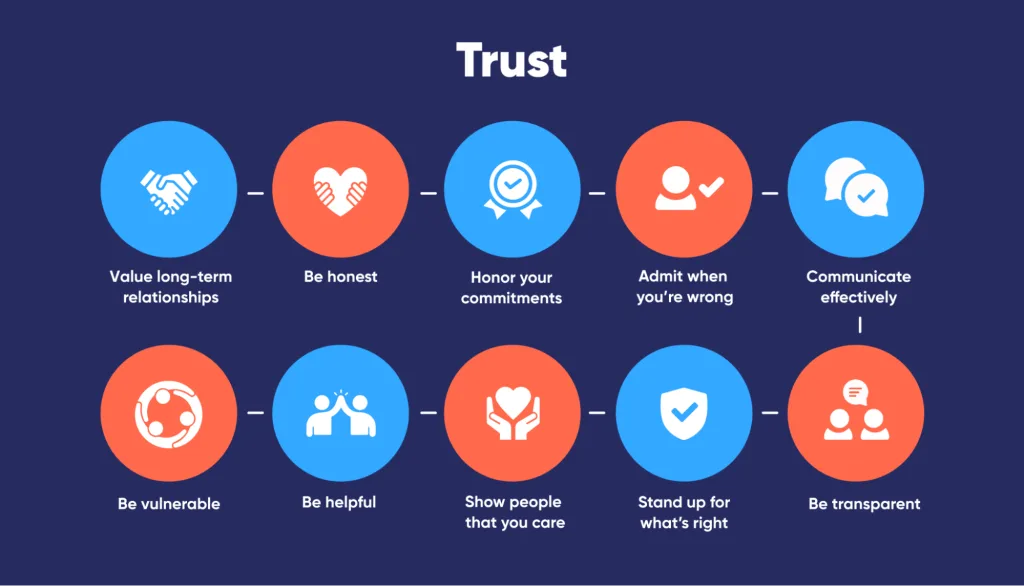
Engagement is also closely linked to employee motivation. Trust can motivate employees to perform at their best because they believe in the organization’s goals and feel that their contributions matter. When employees trust their work will have a meaningful impact, they are more likely to be passionate and enthusiastic about their roles. This motivation is essential during change, as engaged employees are more adaptable and willing to embrace new challenges.
On the other hand, employee engagement tends to suffer in environments where trust is low. Employees may become disengaged if they feel the organization does not value their contributions or lack confidence in their leaders. This disengagement can manifest as reduced productivity, higher absenteeism, and decreased organizational performance.
3. Trust Builds Organizational Resilience
Organizational resilience refers to the ability of an organization to withstand and adapt to internal or external challenges. In a rapidly changing business landscape, resilience is crucial to an organization’s long-term success. Trust is critical to resilience, strengthening the organization’s capacity to respond effectively to change and uncertainty.
One of the ways trust contributes to organizational resilience is by facilitating faster and more effective decision-making. In a high-trust environment, leaders can rely on their teams to provide honest feedback and to act in the organization’s best interest. This trust allows for quicker consensus-building and the implementation of decisions, which is crucial during times of crisis or rapid change. When employees trust that their leaders have their best interests at heart, they are more likely to support and execute decisions swiftly, without the need for excessive oversight or control.
Additionally, trust enhances the organization’s ability to learn from and adapt to challenges. In a trusting environment, mistakes are viewed as opportunities for learning rather than as failures to be punished. This perspective encourages employees to experiment and innovate, knowing they will be supported even if their efforts do not always lead to immediate success. This learning and continuous improvement culture is essential for resilience, enabling the organization to evolve and grow in response to changing circumstances.
Trust is also crucial in maintaining employee morale and cohesion during change. Change can be unsettling, leading to uncertainty and anxiety among employees. However, when trust is vital, employees are more likely to remain calm, focused, and supportive of one another. They trust that the organization will navigate the change effectively and that their well-being will be considered. This trust helps to maintain a positive and productive work environment, even in the face of significant disruptions.
Moreover, trust in external relationships—such as with customers, suppliers, and partners—contributes to organizational resilience. Organizations that have built solid and trust-based relationships with their stakeholders are more likely to receive support and cooperation in times of crisis. This external trust can be invaluable, giving the organization the resources and flexibility to weather challenges and emerge stronger.
4. Trust as a Catalyst for Effective Change Management
Change is inevitable in today’s business world, and how an organization manages change can significantly impact its success. Trust is critical in effective change management, as it influences how employees perceive and respond to change initiatives.
With high trust levels, employees are more likely to view change positively and engage with the process. They trust the change is being implemented for good reasons and will ultimately benefit the organization and themselves. This trust reduces resistance to change, a common obstacle in many organizations. Employees who trust their leaders are more open to new ideas and are more willing to adapt their behaviors and work practices to align with the new direction.
Trust also facilitates more effective communication during times of change. Change often brings uncertainty, and clear, transparent communication is essential for managing this uncertainty. In a high-trust environment, leaders can communicate openly about the reasons for the change, the expected outcomes, and the challenges that may arise. This transparency builds trust and ensures that employees feel informed and involved in the process, which is crucial for the successful implementation of change.
Furthermore, the trust supports the sustainability of change initiatives. Even when the initial implementation of change is successful, maintaining those changes over the long term can be challenging. Trust helps to sustain the momentum by keeping employees engaged and committed to the new way of doing things. When employees trust that the changes are in the organization’s and their best interest, they are more likely to continue supporting them, even as the novelty wears off. The challenges of implementation become more apparent.
High levels of trust are a critical asset for any organization. They lead to more vital collaboration, higher employee engagement, and a more resilient organization that can effectively navigate change. Trust is a soft, intangible quality and a powerful force that drives critical organizational outcomes. By fostering a culture of trust, organizations can unlock the full potential of their teams, create a more positive and productive work environment, and build the resilience needed to thrive in an ever-changing business landscape.
To cultivate and maintain trust, organizations must prioritize transparent communication, demonstrate consistent and ethical leadership, empower employees, and align actions with core values. In doing so, they will enhance their current operations and position themselves for long-term success in the face of future challenges. Trust, once established, becomes a self-reinforcing cycle that propels the organization forward, ensuring that it remains agile, innovative, and resilient no matter what the future holds.

Case Study: IBM’s Transformation and Trust-Building During the Shift to Cloud Computing
Background:
IBM, one of the oldest and most storied companies in the technology industry, has undergone multiple transformations throughout its history. However, the shift to cloud computing and artificial intelligence in the early 2010s posed one of its most significant challenges. The company needed to pivot from its traditional hardware and services business to focus on cloud computing, data analytics, and AI. This transformation required a change in business strategy and a concerted effort to build and maintain trust among employees, customers, and stakeholders during a time of significant uncertainty.
The Challenge:
As IBM shifted its focus to cloud computing, it faced several trust-related challenges. Internally, employees were concerned about the implications of the new strategy on their jobs and the company’s future. Externally, customers and investors were skeptical about IBM’s ability to compete with established cloud leaders like Amazon Web Services (AWS) and Microsoft Azure. There was also a risk of misinformation spreading due to the rapid changes in the company’s direction and strategy.
IBM must manage this transformation carefully to maintain trust among all its stakeholder groups. This involved transparent communication, consistent leadership, alignment with core values, and adaptability.
Trust-Building Strategies:
1. Transparent Communication:
• IBM prioritized open and honest communication throughout the transformation process. The company’s leadership, led by CEO Ginni Rometty at the time, regularly communicated the reasons for the shift to cloud computing, the challenges ahead, and the strategic vision for the future.
• Town hall meetings, internal newsletters, and direct communication channels were used to keep employees informed and engaged. IBM also regularly updates customers and investors on the progress of the transformation, reducing the risk of misinformation and ensuring that stakeholders understand the company’s direction.
2. Consistent Leadership:
• Ginni Rometty played a crucial role in maintaining trust during this period of change. Her leadership was characterized by a solid commitment to the company’s long-term vision, coupled with empathy and a deep understanding of the concerns of employees and customers.
• Rometty emphasized the importance of IBM’s legacy while articulating the need to evolve. Her consistent messaging and visibility during the transformation helped reassure stakeholders that IBM was on the right path.
3. Empowering Employees:
• IBM recognized that its employees were essential to the success of the transformation. The company invested in reskilling and upskilling programs to help its workforce adapt to the new focus areas of cloud computing and AI.
• Employees were encouraged to take ownership of their development and contribute to the company’s new direction. This empowerment helped build internal trust and ensured that IBM had the talent to succeed in its latest strategic areas.
4. Aligning Actions with Core Values:
• Throughout the transformation, IBM remained committed to its core values of innovation, customer focus, and integrity. The company continued to prioritize its customers’ needs, ensuring that its new cloud and AI solutions were designed to solve real business problems.
• IBM’s focus on ethical AI and data privacy further reinforced trust among its customers and the broader public, showing that the company was innovating and doing so responsibly.
5. Adaptability and Responsiveness:
• As the cloud computing and AI market evolved, IBM demonstrated adaptability by making strategic acquisitions and partnerships, such as the acquisition of Red Hat in 2018. This move significantly bolstered IBM’s hybrid cloud capabilities and positioned the company as a leader in the space.
• IBM’s willingness to adapt its strategy while staying true to its core values helped maintain trust with customers, who saw the company as innovative and reliable.
Outcomes:
1. Employee Engagement and Retention:
• IBM’s focus on transparent communication and employee empowerment helped maintain high levels of engagement during the transformation. The company’s reskilling initiatives were particularly successful, with many employees transitioning into new roles aligned with IBM’s strategic focus areas.
• By addressing employees’ concerns and involving them in the transformation, IBM could retain critical talent and ensure its workforce was prepared for the future.
2. Customer Trust and Loyalty:
• IBM’s consistent leadership and commitment to customer-centricity during the transformation helped build and maintain client trust. The company’s focus on ethical AI and data privacy was significant in industries where trust and compliance are critical.
• As a result, IBM was able to maintain strong customer relationships and grow its cloud and AI businesses, even in the face of intense competition.
3. Investor Confidence:
• IBM’s clear communication and strategic adaptability helped reassure investors that the company was on the right track. The acquisition of Red Hat, in particular, was considered a bold and necessary move to secure IBM’s position in the hybrid cloud market.
• While the transformation was not without challenges, IBM’s ability to build and maintain trust with its investors helped stabilize its stock price and position the company for future growth.
4. Long-Term Strategic Success:
• IBM’s transformation into a cloud and AI powerhouse has positioned the company for long-term success in the rapidly evolving tech landscape. By maintaining trust with its employees, customers, and investors, IBM has navigated the digital age challenges and remains a relevant and competitive player in the industry.
Conclusion:
IBM’s successful transformation into a cloud and AI leader demonstrates the critical importance of building and maintaining trust in a rapidly changing business environment. Through transparent communication, consistent leadership, employee empowerment, alignment with core values, and adaptability, IBM navigated significant challenges and emerged stronger.
This case study underscores that trust is not just a nice-to-have but a strategic asset that can determine an organization’s success or failure in an era of digital transformation and market disruption. By prioritizing trust-building strategies, companies like IBM can foster resilience, maintain strong stakeholder relationships, and achieve long-term success in a dynamic business landscape.

Exercise: Reflecting on and Enhancing Trust in Your Professional Environment
• What actions did you or others take that helped build or erode trust?
• How did communication and transparency affect the level of trust?
• What role did leadership play in fostering or undermining trust?
• Based on your reflection, identify two or three strategies that could have been applied to strengthen trust in that situation.
• Consider the importance of transparent communication, consistent leadership, alignment with core values, and adaptability.
• Write down these strategies and how they could have positively influenced the situation.
• How can you improve transparency and communication with your team and stakeholders?
• What steps can you take to demonstrate consistent and ethical leadership?
• How can you align your actions more closely with the core values of your organization?
• In what ways can you show adaptability and responsiveness in your work?
• Write down one or two specific actions you will commit to in the next month to build and maintain trust within your professional environment.
• These actions could include regular check-ins with your team, being more transparent about decisions, seeking feedback, or aligning more closely with the company’s values in your daily work.

Course Manual 9: Leading with Empathy
The role of leadership is undergoing a significant transformation. The traditional models, which were predominantly based on authority and control, are now making way for more human-centric approaches that prioritize empathy and compassion. These qualities, once considered soft skills, are now recognized as critical competencies that can drive organizational success. Leaders who lead with kindness and compassion not only enhance employee satisfaction and well-being but also foster a culture of trust, collaboration, and innovation.
Empathy, the ability to understand and share the feelings of others, allows leaders to connect with their teams on a deeper level. It enables them to recognize and address their employees’ needs, concerns, and motivations. This connection builds trust, a fundamental element in any successful team. Employees who feel understood and valued are likelier to be engaged, loyal, and motivated to contribute their best work. Empathy also helps leaders navigate the complexities of the modern workplace, where diversity and inclusion are paramount. By understanding the diverse experiences and perspectives within their teams, empathetic leaders can create more inclusive environments where everyone feels respected and empowered.
Compassion, closely linked to empathy, goes a step further by prompting leaders to take action to alleviate the challenges and hardships their employees may face. Compassionate leadership is about recognizing when someone is struggling and offering support through flexible working arrangements, additional resources, or simply a listening ear. This approach helps individuals and strengthens the organization as a whole. Companies that cultivate compassionate leadership are often more resilient, as they can better support their employees through times of crisis and change.
Leading with empathy and compassion can significantly impact business outcomes. Studies have shown that companies with empathetic leaders tend to have higher employee retention rates, greater job satisfaction, and improved overall performance. In a world where businesses are increasingly judged by their corporate social responsibility, leaders who prioritize the well-being of their people stand out. They attract and retain top talent, enhance their brand reputation, and build more substantial, sustainable businesses.
In conclusion, leading with empathy and compassion is not just a moral imperative, but it also provides a strategic advantage. As the business landscape continues to evolve, these qualities will become increasingly essential for leaders who aspire to inspire their teams, drive innovation, and achieve long-term success. By embracing these qualities, leaders can empower their teams and position their organizations for sustained success.
Unlocking Success: The Transformative Power of Empathy and Compassion in Leadership, inspiring and motivating leaders to embrace these qualities.
Discover the Benefits of Empathy and Compassion in Leadership Practices, enlightening and encouraging leaders to integrate these qualities into their practices.
Empathy and compassion are critical leadership qualities in today’s business world. As organizations become more complex and diverse, the need for leaders who can connect with their teams on a human level is increasingly evident. These qualities are not just about being kind or understanding; they are strategic tools that can significantly impact an organization’s success. By integrating empathy and compassion into leadership practices, businesses can unlock various benefits that contribute to individual well-being and overall organizational performance.
Enhancing Employee Engagement and Satisfaction
One of the most immediate benefits of empathetic and compassionate leadership is the positive impact on employee engagement and satisfaction. When leaders demonstrate empathy—understanding and valuing the emotions and perspectives of their employees—they create an environment where individuals feel heard and respected. This sense of being valued fosters greater engagement, as employees are more likely to feel motivated and connected to their work when they believe their leaders genuinely care about their well-being. Compassionate leaders take this a step further by actively seeking ways to support their employees, whether through providing resources, offering flexibility, or simply acknowledging and addressing their concerns.
Studies have consistently shown that higher levels of employee engagement lead to better job performance, increased creativity, and reduced turnover rates. Employees who feel understood and supported are likelier to go above and beyond, contributing to the organization’s success. This engagement also creates a more positive workplace culture where collaboration and innovation thrive.
Fostering a Culture of Trust and Collaboration
Empathy and compassion are foundational to building trust within an organization. Trust is a crucial element of any successful team, and it starts with leaders who are approachable, understanding, and willing to listen. When leaders demonstrate empathy, they signal to their employees that their opinions and feelings matter. This openness encourages employees to communicate more freely, share their ideas, and collaborate effectively. In contrast, a lack of empathy can lead to a culture of fear, where employees are reluctant to express themselves or take risks, stifling innovation and progress.
Moreover, compassionate leadership helps to create a supportive environment where employees feel safe to be vulnerable and ask for help when needed. This can lead to more effective problem-solving and teamwork, as employees are more likely to seek collaboration when they know they will be met with understanding rather than judgment. The result is a more cohesive and resilient organization, better equipped to navigate challenges and adapt to change.
Driving Business Performance and Innovation
Empathy and compassion in leadership not only benefit employees but also have a direct impact on business performance. Companies that prioritize these qualities often see improvements in customer satisfaction, brand loyalty, and financial performance. This is because empathetic leaders better understand their employees’ and customers’ needs and motivations, enabling them to make more informed and customer-centric decisions. Additionally, compassionate leadership fosters a culture of innovation. Employees who feel supported and valued are likelier to take the creative risks necessary for innovation. They are also more inclined to stay with the company longer, providing stability and continuity that can drive long-term success. In an increasingly competitive market, innovating and adapting is critical, and organizations that cultivate empathetic and compassionate leadership are better positioned to succeed.
Additionally, compassionate leadership fosters a culture of innovation. Employees who feel supported and valued are likelier to take the creative risks necessary for innovation. They are also more inclined to stay with the company longer, providing stability and continuity that can drive long-term success. In an increasingly competitive market, innovating and adapting is critical, and organizations that cultivate empathetic and compassionate leadership are better positioned to succeed. This should inspire leaders to foster these qualities in their organizations, driving performance and innovation.
Strengthening Organizational Resilience
Finally, empathy and compassion are vital to building organizational resilience. In times of crisis or change, compassionate leaders can provide employees with emotional support and guidance to navigate uncertainty. This support helps to maintain morale and productivity, even in challenging circumstances. Moreover, organizations led by empathetic and compassionate leaders are more likely to recover quickly from setbacks, as their employees are more engaged, loyal, and motivated to contribute to the recovery efforts.
The benefits of empathy and compassion in leadership practices are far-reaching. From enhancing employee engagement and fostering a culture of trust to driving business performance and strengthening organizational resilience, these qualities are essential for leaders who want to inspire their teams and achieve long-term success. As the business landscape continues to evolve, the importance of leading with empathy and compassion will only grow, making these qualities indispensable for the future of leadership. By preparing now and fostering these qualities, leaders can ensure they are ready for the challenges and opportunities.
The Key to Empathetic Leadership
In today’s complex and rapidly changing business environment, the role of leadership has evolved beyond merely directing tasks and achieving short-term goals. Modern leaders are increasingly recognized not just for their strategic vision and decision-making prowess but for their ability to connect with their teams on a human level. Empathetic leadership, characterized by the ability to understand and share the feelings of others, has emerged as a crucial element in creating a thriving organizational culture. By prioritizing empathy, leaders can enhance employee loyalty, reduce workplace conflict, and foster a supportive work environment. These outcomes, in turn, lead to higher overall satisfaction and productivity, which are essential for long-term success.
The Importance of Empathy in Leadership
Empathy is the ability to understand and share the feelings, perspectives, and experiences of others. In the context of leadership, empathy involves recognizing the emotions and needs of employees, responding to them with care and consideration, and creating an environment where individuals feel valued and understood. While empathy has traditionally been considered a soft skill, it is increasingly recognized as a strategic leadership capability that can drive significant business outcomes.
Empathetic leaders are attuned to their employees’ emotional and psychological needs, which allows them to build stronger relationships, foster trust, and create a sense of belonging within their teams. This human-centric approach to leadership is critical in today’s diverse and inclusive workplaces, where employees bring various backgrounds, experiences, and expectations. By leading with empathy, leaders can better navigate the complexities of modern organizational life and create conditions that support employee well-being and engagement.
Enhancing Employee Loyalty Through Empathetic Leadership
One of the most significant benefits of empathetic leadership is its ability to enhance employee loyalty. In an increasingly competitive job market, where top talent is in high demand, employee retention has become a critical challenge for organizations. Employees who feel understood, valued, and supported by their leaders are likelier to remain committed to their organization, even when faced with external opportunities or challenges.
Empathetic leaders foster loyalty by building trust and rapport with their employees. When leaders demonstrate genuine concern for the well-being of their team members, they create a culture of mutual respect and appreciation. Employees who feel their leaders are invested in their personal and professional growth will likely develop a strong loyalty to the organization. This loyalty is further reinforced when employees perceive that their leaders are approachable and willing to listen to their concerns and ideas.
Empathetic leadership helps address the factors contributing to employee turnover, such as burnout, job dissatisfaction, and lack of recognition. By understanding employee behavior’s emotional and psychological drivers, empathetic leaders can proactively address issues before they escalate, reducing the likelihood of turnover. For example, a leader who recognizes the signs of burnout in an employee can offer support, such as adjusting workloads or providing opportunities for rest and recovery, which can prevent disengagement and attrition.
Reducing Conflict in the Workplace
Conflict is an inevitable part of any organization, but how it is managed can significantly impact the overall work environment. Empathetic leadership plays a crucial role in reducing and resolving workplace conflict by fostering open communication, understanding different perspectives, and promoting a culture of respect and collaboration.
Empathetic leaders are skilled at recognizing the underlying emotions and motivations that drive conflict. Rather than dismissing or ignoring disagreements, they seek to understand and address the root causes constructively. This approach helps resolve disputes more effectively and prevents them from escalating into more significant issues that can disrupt team dynamics and productivity.
For example, when two employees disagree over a project approach, an empathetic leader would listen to both perspectives, validate their feelings, and work towards a solution that considers the needs and concerns of all parties involved. This approach not only resolves the immediate conflict but also strengthens relationships and builds a foundation for more effective collaboration in the future.
Empathetic leadership also promotes a culture of psychological safety, where employees feel comfortable expressing their thoughts, concerns, and ideas without fear of retribution or judgment. This openness reduces the likelihood of conflicts arising from misunderstandings or unspoken tensions. When employees know their leaders are empathetic and supportive, they are more likely to address potential conflicts before they become significant issues.
Creating a Supportive Work Environment
In a supportive work environment, employees feel valued, respected, and empowered to do their best. Empathetic leadership is central to creating such an environment, as it involves actively supporting employees’ personal and professional needs and fostering a culture of inclusivity and collaboration.
Empathetic leaders understand that employees are more than just their job titles—individuals with unique experiences, challenges, and aspirations. By recognizing and accommodating these individual differences, empathetic leaders create a work environment where employees feel seen and understood. This can involve offering flexible working arrangements to accommodate personal responsibilities, providing opportunities for professional development that align with employees’ career goals, or simply offering a listening ear when an employee needs support.
A supportive work environment also creates opportunities for employees to connect, share their experiences, and collaborate on meaningful projects. Empathetic leaders foster these connections by encouraging teamwork, recognizing contributions, and celebrating successes. This sense of community and shared purpose enhances employee satisfaction and engagement, as individuals feel more connected to their work and colleagues.
Moreover, empathetic leadership contributes to developing a positive organizational culture where respect, kindness, and collaboration are prioritized. In such a culture, employees are more likely to support one another, share knowledge, and work together towards common goals. This collective effort not only enhances individual well-being but also drives organizational success.
The Impact on Overall Satisfaction and Productivity
The combination of enhanced employee loyalty, reduced conflict, and a supportive work environment leads to higher overall satisfaction and productivity within the organization. Employees who feel loyal to their organization, experience low levels of conflict, and work in a supportive environment are likelier to be engaged, motivated, and committed to their work.
Research has shown that employee engagement is strongly correlated with productivity and performance. Engaged employees are likelier to go above and beyond in their roles, contribute innovative ideas, and take ownership of their work. They are also more likely to collaborate effectively with their colleagues, leading to better organizational outcomes.
Furthermore, higher levels of employee satisfaction are associated with lower absenteeism, reduced turnover, and improved overall morale. When employees are satisfied with their work environment and leadership, they are more likely to stay with the organization, reducing the costs and disruptions associated with turnover. Additionally, satisfied employees are more likely to advocate for the organization, enhancing its reputation and attracting top talent.
Empathetic leadership also positively impacts mental health and well-being, which is critical to sustaining long-term productivity. By creating an environment where employees feel supported and valued, empathetic leaders help reduce stress, prevent burnout, and promote a healthy work-life balance. This focus on well-being benefits employees and contributes to a more resilient and productive workforce.
Case Studies and Examples
Several organizations have implemented empathetic leadership practices, improving employee loyalty, satisfaction, and productivity. For example, Google is known for its focus on creating a supportive and inclusive work environment where employees are encouraged to bring their whole selves to work. Google’s leaders are trained in empathy and emotional intelligence, which helps them build strong relationships with their teams and create a culture of trust and collaboration. This approach has contributed to Google’s high levels of employee satisfaction and its reputation as one of the best workplaces.
Another example is Patagonia, an outdoor clothing company known for its commitment to social and environmental responsibility. Patagonia’s empathetic leadership practices include offering flexible work arrangements, providing on-site childcare, and supporting employees’ involvement in environmental activism. These initiatives reflect the company’s values and demonstrate a genuine concern for employees’ well-being, leading to high employee loyalty and engagement.
Empathetic leadership is desirable and critical to effective and sustainable leadership in today’s business environment. By enhancing employee loyalty, reducing conflict, and creating a supportive work environment, empathetic leaders can significantly impact overall satisfaction and productivity. These outcomes are essential for organizations seeking to thrive in an increasingly competitive and dynamic marketplace.
As the business landscape continues to evolve, the importance of empathy in leadership will only grow. Organizations prioritizing empathetic leadership will be better positioned to attract and retain top talent, foster innovation, and build resilient teams capable of navigating change and uncertainty. Ultimately, compassionate leadership is about more than just understanding others—it is about creating a work environment where everyone can succeed and contribute to the organization’s long-term success.

Case Study: Arne Sorenson’s Empathetic and Compassionate Leadership at Marriott International
Background:
Arne Sorenson, who became CEO of Marriott International in 2012, was known for his empathetic and compassionate leadership style, which played a significant role in the company’s success and resilience. Sorenson was the first CEO of Marriott, who was not a member of the Marriott family. Yet, he upheld the company’s deeply rooted values while steering it through significant challenges, including the acquisition of Starwood Hotels and the unprecedented crisis brought on by the COVID-19 pandemic.
The Challenge:
One of the world’s largest hotel chains, Marriott International, faced multiple challenges under Sorenson’s leadership. The acquisition of Starwood Hotels in 2016 was a significant, complex merger that required careful integration of corporate cultures and operations. The company also had to navigate the rapidly changing landscape of the hospitality industry, characterized by increased competition from platforms like Airbnb.
However, the most significant challenge came with the COVID-19 pandemic 2020, which severely impacted the global travel and hospitality industries. With travel bans, lockdowns, and a steep decline in travel demand, Marriott faced the daunting task of managing a business that saw its revenue drop by over 90% in weeks.
Empathy in Leadership:
1. Managing the Starwood Acquisition:
• The acquisition of Starwood Hotels was one of the largest in the history of the hospitality industry, creating the world’s largest hotel chain. Sorenson recognized that integrating these two companies was combining assets and operations and merging two distinct cultures.
• Sorenson prioritized listening to employees from both organizations, understanding their concerns, and addressing them with transparency. He engaged with teams across the globe, emphasizing the importance of retaining the best of both cultures. His empathetic approach helped ease the transition for employees, preserving morale and ensuring a smoother integration process.
2. Leading During the COVID-19 Pandemic:
• As the pandemic unfolded, Sorenson demonstrated extraordinary empathy towards Marriott’s employees, among the most brutal hit in the hospitality industry. Recognizing the fear and uncertainty among his workforce, Sorenson communicated openly about the company’s financial situation and the difficult decisions ahead.
• In a widely viewed video message to employees, visibly emotional Sorenson spoke candidly about the impact of the pandemic on Marriott and the painful necessity of furloughs and layoffs. His honesty and vulnerability resonated deeply with employees, building trust even in the face of difficult news.
Compassion in Leadership:
1. Supporting Employees During the Pandemic:
• Sorenson took steps to minimize the impact of furloughs and layoffs wherever possible. He and other senior executives voluntarily took pay cuts to support employee relief funds. Sorenson himself forfeited his salary for the year, redirecting those funds to support the company’s efforts to aid needy employees.
• Marriott also expanded its associate assistance fund, providing financial support to furloughed employees and their families. This compassionate approach reinforced Marriott’s commitment to its people, even during one of the most challenging periods in the company’s history.
2. Prioritizing Health and Safety:
• Understanding the anxiety surrounding health risks during the pandemic, Sorenson led efforts to implement stringent health and safety protocols across Marriott properties. The company launched the “Commitment to Clean” program, which included enhanced cleaning procedures, contactless check-ins, and social distancing measures to protect guests and staff.
• By prioritizing the well-being of both employees and customers, Sorenson demonstrated that Marriott was committed to maintaining a safe environment, reinforcing trust and loyalty among stakeholders.
Impact on Business Outcomes:
1. Resilient Workforce:
• Sorenson’s empathetic and compassionate leadership helped maintain loyalty and commitment among Marriott’s employees despite unprecedented challenges. The company’s workforce remained resilient, which was crucial as Marriott began to recover and rebuild post-pandemic.
• Employees felt supported and valued, strengthening the company’s culture and positioning Marriott for a quicker recovery as travel demand began to return.
2. Brand Reputation and Customer Loyalty:
• Marriott’s transparent communication and proactive safety measures during the pandemic helped maintain customer trust. The “Commitment to Clean” initiative reassured guests that Marriott was taking their health seriously, which was critical for encouraging travel during uncertain times.
• The company’s reputation for caring for its employees and guests enhanced customer loyalty, positioning Marriott as a leader in the hospitality industry’s response to the crisis.
3. Strategic Adaptation and Recovery:
• Sorenson’s leadership during the pandemic also involved strategic adaptations, such as accelerating Marriott’s digital transformation to enhance the customer experience. This included expanding mobile technology for contactless services and investing in online booking platforms.
• These initiatives helped Marriott navigate the immediate challenges of the pandemic and set the stage for long-term recovery and growth as the travel industry began to rebound.
Conclusion:
Arne Sorenson’s leadership at Marriott International is a powerful example of how empathy and compassion can drive organizational resilience and success, even in the face of unprecedented challenges. By prioritizing the well-being of employees and customers, Sorenson helped Marriott navigate the immediate impacts of the COVID-19 pandemic and reinforced the company’s long-standing values, ensuring it emerged more robust in the long term.
This case study illustrates that in today’s rapidly changing business environment, leading with empathy and compassion is beneficial and essential. Leaders who embody these qualities can inspire trust, foster loyalty, and guide their organizations through the most challenging times, positioning them for sustainable success in a competitive marketplace.

Exercise: Exploring the Impact of Empathy and Compassion in Leadership
• Begin by briefly introducing the shift in leadership styles from traditional authority-centered models to human-centric approaches prioritizing empathy and compassion.
• Highlight the critical benefits of empathetic and compassionate leadership, including improved employee satisfaction, trust, collaboration, innovation, and overall organizational resilience.
• Scenario: Imagine you are leading a team facing high stress levels due to a major project deadline. Some team members struggle with burnout, while others feel disconnected and undervalued. As the leader, you are tasked with addressing these challenges and ensuring the team’s success.
1. Empathy in Action: How would you use empathy to understand the feelings and challenges your team members face? What steps would you take to connect with them and show that you value their well-being?
2. Compassionate Leadership: What compassionate actions could you take to alleviate the stress and support your team? Consider flexible working arrangements, offering additional resources, or simply being available to listen.
3. Impact on the Organization: How do you think leading with empathy and compassion in this situation would affect team morale, collaboration, and the project’s overall success? What long-term benefits might arise for the organization?
• In your groups, develop a short action plan for fostering a more empathetic and compassionate leadership approach within your team or organization.
1. Building Empathy: What practices can you implement to ensure leaders and team members regularly practice empathy? (e.g., regular check-ins, open-door policies, active listening training)
2. Encouraging Compassionate Actions: How can you encourage leaders to act compassionately when employees struggle? (e.g., recognition programs, mental health support, flexible policies)
3. Promoting a Culture of Kindness: How can your organization promote a culture that values empathy and compassion? (e.g., embedding these values in company policies, leadership development programs, and team-building activities)
• Each group will present their action plan to the larger group. Focus on how your strategies can be practically implemented and the expected positive outcomes for employees and the organization.
• Be prepared to discuss how these strategies align with improving employee satisfaction, fostering collaboration, and driving innovation.
• Reflect on the different strategies proposed by the groups. What common themes emerged? What unique ideas stood out?
• Discuss how your organization can begin implementing some of these strategies and the potential challenges that might arise.
• Consider how a leadership style centered on empathy and compassion could transform your workplace and contribute to long-term organizational success.

Course Manual 10: Driving Innovation
Innovation is the cornerstone of competitive advantage and organizational success. However, the pathway to fostering genuine innovation is not solely rooted in technology or processes but in the people who drive these elements forward. Human-centered leadership, which places individuals at the heart of decision-making and organizational strategy, has emerged as a critical approach to nurturing innovation. This leadership style prioritizes empathy, collaboration, and the well-being of employees, recognizing that when people feel valued and supported, they are more likely to contribute creative ideas and engage fully in the innovation process.
Human-centered leadership is not a one-size-fits-all model; it requires leaders to deeply understand their teams’ unique needs, aspirations, and challenges. By fostering an environment of trust, where individuals feel safe to express their ideas and take risks, leaders can unlock the creative potential within their organizations. This approach encourages a culture of continuous learning and experimentation, where failures are seen as opportunities for growth rather than setbacks. Such a culture, built on trust and a positive attitude towards failure, is essential for innovation, allowing organizations to adapt quickly to changing market conditions and consumer demands.
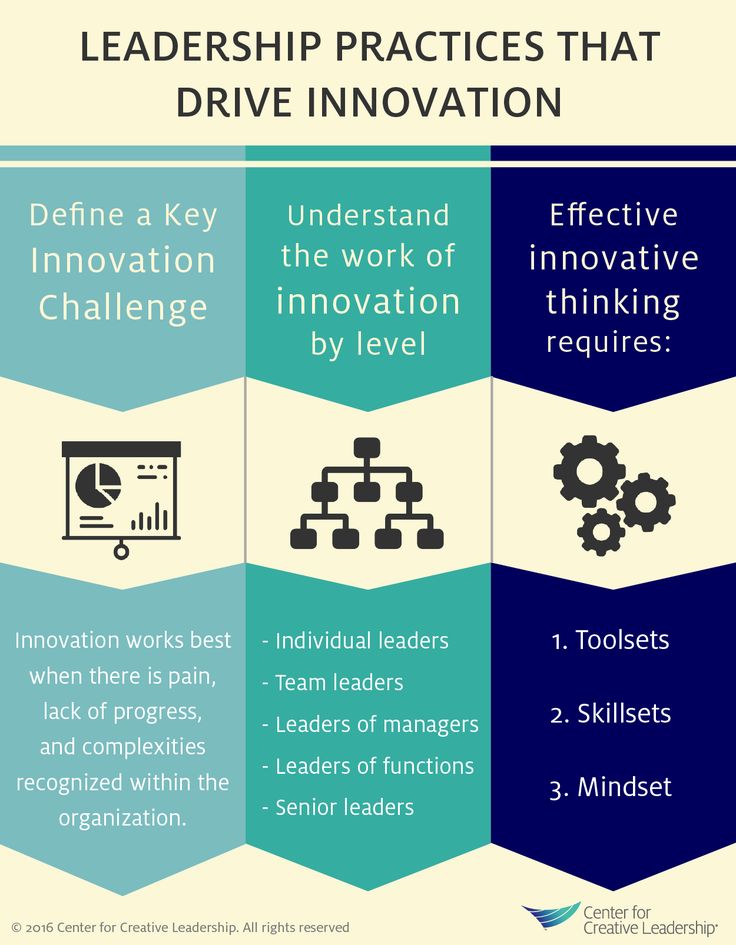
Moreover, human-centered leadership aligns closely with the principles of diversity and inclusion, which are vital for innovation. Diverse teams bring a more comprehensive range of perspectives, experiences, and ideas, which can lead to more innovative solutions. Leaders who prioritize inclusivity ensure that all voices are heard and that the best ideas, regardless of their source, are brought to the forefront. This drives innovation and enhances employee engagement and satisfaction, as individuals feel their contributions are valued and impactful.
Human-centered leadership can be integrated into existing leadership models, enhancing their effectiveness and adaptability. By understanding and addressing the needs and desires of these stakeholders, organizations can develop products and services that resonate more deeply with their target audiences. This external focus on human-centeredness ensures that innovation is not just about creating something new but something meaningful and relevant.
Driving innovation through human-centered leadership is about harnessing people’s collective creativity and passion. By placing individuals at the center of the innovation process, organizations can cultivate a resilient, adaptable culture primed for long-term success in an increasingly complex and dynamic business environment.
Empowering Innovation: The Research-Backed Impact of Human-Centered Leadership
Innovating and fostering creativity is crucial for sustaining competitive advantage and long-term growth in the contemporary business landscape. Among the various leadership styles, human-centered leadership has garnered significant attention for its profound impact on driving organizational innovation and creativity. This leadership approach, which emphasizes empathy, collaboration, and the well-being of individuals, is increasingly supported by a growing body of research, underscoring its pivotal role in fostering environments where innovation can thrive.
At its core, human-centered leadership is predicated on the belief that people are the most valuable assets of an organization. Unlike traditional leadership models prioritizing financial outcomes or operational efficiency, human-centered leadership focuses on creating conditions where employees feel valued, empowered, and motivated to contribute their best ideas. Research has consistently shown that when employees are engaged and supported, their creativity flourishes. A study by the Harvard Business Review found that companies with high employee engagement are 21% more profitable, primarily due to the increased levels of creativity and innovation that engaged employees bring to their work.
One fundamental way human-centered leadership drives innovation is by leaders fostering a culture of psychological safety. Psychological safety, a concept popularized by Amy Edmondson, refers to an environment where individuals feel safe taking risks, sharing their ideas, and making mistakes without fear of retribution. Research from Google’s Project Aristotle highlighted that psychological safety is the most critical factor in team success. Teams that operate in psychologically safe environments are more likely to collaborate effectively, experiment with new ideas, and ultimately innovate. Human-centered leadership is crucial in fostering this psychological safety culture and promoting innovation.
Human-centered leadership is closely aligned with the principles of diversity and inclusion, which are essential for innovation. Diverse teams, comprising individuals with varying backgrounds, experiences, and perspectives, are more likely to generate creative solutions to complex problems. A study by the Boston Consulting Group found that companies with more diverse leadership teams report higher innovation revenue—up to 45% more—compared to those with less diversity. This is because diverse teams bring a broader range of ideas to the table, which can lead to more innovative outcomes.
Human-centered leaders recognize the importance of inclusivity in harnessing their teams’ full creative potential. These leaders create a more dynamic and innovative organizational culture by ensuring that all voices are heard and that every team member has an opportunity to contribute. They actively seek out and value different perspectives, knowing that the best ideas often emerge from diverse viewpoints.
Another research-backed benefit of human-centered leadership is its positive impact on employee well-being, which is directly linked to creativity. Studies have shown that stress and burnout significantly diminish an individual’s capacity for creative thinking. On the other hand, when employees feel supported and their well-being is prioritized, they are more likely to engage in creative problem-solving. A study published in the *Journal of Occupational and Organizational Psychology* found that employees who experience high levels of well-being are more likely to display creative behaviors at work. Human-centered leaders create an environment where creativity can flourish by prioritizing their teams’ mental and emotional well-being.
Furthermore, human-centered leadership fosters a sense of purpose and meaning among employees, a critical driver of creativity. Research by McKinsey & Company indicates that employees who find purpose in their work are more engaged and more likely to contribute innovative ideas. By aligning organizational goals with employees’ values and aspirations, human-centered leaders can tap into deeper levels of motivation and creativity, inspiring their teams to strive for innovative solutions.
Research strongly supports the significance of human-centered leadership in driving innovation and creativity. By prioritizing psychological safety, diversity and inclusion, employee well-being, and a sense of purpose, human-centered leaders create the conditions necessary for innovation to thrive. In today’s complex and rapidly changing business environment, this leadership approach is beneficial—it is essential for organizations seeking to stay ahead of the curve and achieve sustained success. This knowledge empowers leaders to make informed decisions and drive their organizations toward innovation.
Human-Centered Leadership
Leadership has evolved beyond managing operations and achieving financial targets in the increasingly complex and fast-paced business world. Today, the most influential leaders prioritize their employees’ human needs, understanding that an engaged and motivated workforce is the key to sustained innovation, creativity, and competitive advantage. This shift towards human-centered leadership is not just a trend but a strategic imperative that directly influences an organization’s ability to innovate and grow in an ever-changing market. By fostering an environment where people feel valued, supported, and empowered to take risks, leaders can unleash the full creative potential of their teams, driving both innovation and business growth.
The Human-Centered Leadership Approach
Human-centered leadership is a philosophy that places people at the heart of organizational strategy. It goes beyond traditional management techniques, focusing on employees’ emotional, psychological, and social needs. This approach is rooted in the belief that when employees’ human needs are met—such as recognition, autonomy, belonging, and purpose—they are more likely to be engaged, motivated, and committed to their work. This engagement, in turn, fuels creativity, drives innovation, and ultimately contributes to a sustainable competitive advantage.
Research consistently supports the idea that human-centered leadership leads to better organizational outcomes. A study by Gallup found that companies with highly engaged employees outperform their competitors by 147% in earnings per share. This correlation between engagement and financial performance is primarily due to the increased creativity and innovation engaged employees bring. When people feel that their contributions are valued and that their leaders genuinely care about their well-being, they are likelier to go above and beyond, offering new ideas and solutions to propel the organization forward.
Inspiring Creativity Through Human-Centered Leadership
Creativity is the lifeblood of innovation, and it thrives in environments where people feel psychologically safe, respected, and empowered. Human-centered leaders understand that creativity cannot be forced or demanded but must be nurtured by creating the right conditions. These leaders prioritize building a culture of trust and openness, where employees feel comfortable expressing their ideas without fear of criticism or retribution. This psychological safety is critical for creativity, allowing individuals to explore new possibilities, experiment with unconventional ideas, and learn from their failures.
A key aspect of inspiring creativity is recognizing the individuality of each team member. Human-centered leaders take the time to understand their employees’ unique strengths, passions, and aspirations. They provide opportunities for individuals to work on projects that align with their interests and talents, enhancing job satisfaction and leading to more innovative outcomes. When people can work on their passion, they are more likely to produce creative and impactful work.
Moreover, human-centered leaders encourage collaborative creativity by fostering a culture of inclusivity and diversity. Diverse teams bring a wide range of perspectives and experiences, which can lead to more innovative solutions to complex problems. By ensuring that all voices are heard and everyone has a seat at the table, leaders can tap into the collective intelligence of their teams, leading to more prosperous and creative ideas. Research by the Boston Consulting Group supports this, showing that companies with diverse leadership teams have 19% higher innovation revenue than those with less diversity.
Encouraging Risk-Taking as a Pathway to Innovation
Innovation is inherently risky. It involves venturing into the unknown, experimenting with new ideas, and sometimes failing before succeeding. Human-centered leaders recognize that risk-taking is essential to innovation and actively encourage it within their organizations. However, this does not mean promoting reckless behavior; instead, it involves creating a supportive environment where calculated risks are valued and failure is viewed as a learning opportunity rather than a career-ending mistake.
Fear of failure is among many organizations’ most significant barriers to innovation. When employees fear the consequences of making mistakes, they are less likely to take the risks necessary to innovate. Human-centered leaders address this issue by fostering a culture that normalizes failure as part of the creative process. They communicate that failure is acceptable and integral to learning and growth. By de-stigmatizing failure, these leaders encourage their teams to take bold steps and explore uncharted territories, knowing their efforts will be supported, regardless of the outcome.
In addition to normalizing failure, human-centered leaders provide the resources and autonomy needed for employees to take risks. They empower their teams by allowing them to experiment with new ideas and approaches. This autonomy is crucial for fostering a sense of ownership and accountability, which drives innovation. When employees feel they have the authority to make decisions and pursue their ideas, they are likelier to take initiative and push the boundaries of what is possible.
Furthermore, human-centered leaders play a critical role in balancing risk and reward. They understand that not all risks will pay off, but they are adept at assessing which risks are worth taking and which should be avoided. By providing clear guidance and support, these leaders help their teams navigate the uncertainties of innovation, maximizing the chances of success while minimizing potential downsides.
Driving Innovation for Competitive Advantage and Business Growth
The ultimate goal of prioritizing human needs in leadership is to drive innovation, leading to competitive advantage and business growth. Innovation is not just about creating new products or services but about creating value that differentiates an organization from its competitors. Human-centered leadership plays a crucial role in this process by ensuring that innovation is driven by a deep understanding of employees’ and customers’ needs.
One of the most significant advantages of human-centered leadership is its ability to align innovation with organizational purpose and values. When leaders prioritize human needs, they create a sense of purpose that resonates with employees and customers. This purpose-driven approach to innovation ensures that the organization’s efforts are profitable but also meaningful and impactful. Companies that innovate with a clear sense of purpose are more likely to build lasting relationships with their customers, who increasingly value authenticity and social responsibility.
Human-centered leadership enhances the organization’s ability to adapt to change. In today’s rapidly changing business environment, the ability to innovate quickly and effectively is a critical determinant of success. Leaders prioritizing human needs are better equipped to foster an agile and responsive organizational culture. They empower their teams to experiment with new ideas and pivot when necessary, ensuring that the organization can stay ahead of market trends and respond to emerging opportunities.
Research supports the connection between human-centered leadership and business growth. A Deloitte study found that companies with a strong focus on human-centered leadership were twice as likely to be innovative and three times as likely to engage and retain top talent. These companies also reported higher customer satisfaction and loyalty, critical drivers of sustainable growth.
Furthermore, human-centered leadership contributes to long-term competitive advantage by building a solid organizational culture. A positive, inclusive, supportive culture attracts and retains top talent, essential for continuous innovation. In a global survey conducted by PwC, 79% of CEOs said they are concerned about the availability of critical skills, and 55% believe that a lack of skilled talent threatens their organization’s growth. Human-centered leaders can mitigate this risk by creating a workplace where people feel valued and empowered, ensuring their organizations have the talent to innovate and grow.
Case Studies: Real-World Examples of Human-Centered Leadership Driving Innovation
Several companies have demonstrated the power of human-centered leadership in driving innovation and business growth. One notable example is Google, which is known for its innovative products and services. Google’s leadership philosophy emphasizes psychological safety, creativity, and autonomy. The company encourages employees to spend 20% of their time on passion projects, which has created some of its most successful products, including Gmail and Google News. By prioritizing human needs, Google has built a culture of innovation that continues to drive its success.
Another example is Patagonia, an outdoor apparel company that consistently prioritizes social and environmental responsibility. Patagonia’s human-centered leadership approach aligns its business goals with its commitment to sustainability and ethical practices. This alignment differentiates Patagonia in a competitive market and drives innovation in sustainable product development. The company’s focus on purpose and values has earned it a loyal customer base and contributed to its long-term growth.
Mayo Clinic is renowned in the healthcare industry for its patient-centered approach, which extends to its leadership philosophy. Mayo Clinic’s leaders prioritize the well-being of both patients and employees, fostering a culture of collaboration and continuous improvement. This human-centered approach has led to numerous innovations in patient care and medical research, solidifying Mayo Clinic’s position as a leader in healthcare.
Leaders prioritizing human needs inspire greater creativity, encourage risk-taking, and drive innovation, ultimately leading to competitive advantages and business growth. Human-centered leadership is not just about creating a positive work environment; it is a strategic approach that directly impacts an organization’s ability to innovate and succeed in a rapidly changing world. By fostering a culture of psychological safety, inclusivity, and purpose, human-centered leaders unlock the full creative potential of their teams, driving the innovation needed to stay ahead of the competition and achieve long-term success. In today’s business landscape, where adaptability and creativity are critical, the importance of human-centered leadership cannot be overstated.

Case Study: Human-Centered Leadership at Pixar Animation Studios:
Background:
Pixar Animation Studios is widely recognized for its innovative approach to filmmaking, creating some of the most beloved animated films of the past few decades, such as *Toy Story*, *Finding Nemo*, and *Up*. Pixar’s success is not just due to its technological prowess or creative storytelling but also its human-centered solid leadership culture. The company has consistently valued creativity, collaboration, and employee well-being, making it a prime example of how human-centered leadership can drive innovation.
Human-Centered Leadership at Pixar:
At Pixar, leadership goes beyond traditional management. It involves fostering an environment where employees feel valued, trusted, and free to express their creative ideas. Ed Catmull, one of Pixar’s co-founders and former president, played a crucial role in developing this culture. He emphasized the importance of psychological safety, collaboration, and the willingness to embrace failure as a part of the creative process.
1. Psychological Safety and Creative Risk-Taking:
Pixar’s leadership recognized early on that innovation could not thrive in a fear-driven environment. To cultivate a culture of creativity, the company implemented practices that encouraged psychological safety. For instance, Pixar’s famous “Braintrust” meetings are designed to provide feedback on films in progress without placing blame or creating a sense of hierarchy. Directors and other team members are encouraged to openly share ideas, knowing they are valued and contribute to the creative process even if they do not make it into the final product.
This culture of safety allows employees to take creative risks, leading to groundbreaking innovations in storytelling and animation. For example, developing *Toy Story*—the world’s first feature-length film entirely created with CGI—required significant experimentation and risk-taking. The success of *Toy Story* set a new standard in the industry and solidified Pixar’s reputation as a leader in animation.
2. Diversity and Inclusion in Creative Teams:
Pixar understands that diverse teams bring diverse perspectives, which is essential for innovative storytelling. The company has actively worked to diversify its workforce, ensuring that different voices are represented in the creative process. For instance, *Coco*, a film centered around Mexican culture and the Day of the Dead, was developed with input from cultural consultants and a diverse team that included Mexican-American creators. This ensured cultural accuracy and enriched the story, making it more authentic and resonant with audiences.
The inclusive environment at Pixar encourages collaboration across departments and roles, leading to the creation of stories that resonate with global audiences. By prioritizing diversity, Pixar has consistently delivered innovative films that are both commercially successful and critically acclaimed.
3. Continuous Learning and Embracing Failure:
At Pixar, failure is not seen as a setback but as an opportunity for learning and growth. The company has a culture of continuous learning, where employees are encouraged to experiment and iterate on their ideas. Ed Catmull famously stated, “Mistakes aren’t a necessary evil. They aren’t evil at all. They’re an inevitable consequence of doing something new.” This philosophy is embedded in Pixar’s approach to filmmaking, where creating a film involves multiple iterations, feedback loops, and refinements.
For example, the development of *Ratatouille* involved several script rewrites and changes in direction before it became the Academy Award-winning film it is today. The willingness to embrace failure and learn from it allowed the team to refine their ideas and ultimately create a successful and innovative film.
4. Empathy and External Stakeholders:
Pixar’s human-centered approach extends beyond its internal teams to its relationships with external stakeholders, including audiences. The company conducts extensive research to understand its audiences, often organizing empathy sessions to gain insights into their experiences and preferences. This approach ensures that the films they create resonate deeply with viewers, making the stories more impactful and relatable.
Pixar’s partnerships with other studios and creatives are built on open communication and mutual respect. This collaborative approach has led to successful co-productions and sharing of innovative techniques and ideas across the industry.
Outcomes and Impact:
Pixar’s commitment to human-centered leadership has paid off in numerous ways. The company has produced several commercially successful and critically acclaimed films, many of which have won prestigious awards, including multiple Academy Awards. Pixar’s innovative approach to storytelling and animation has set new industry standards and has had a lasting impact on the film industry.
Moreover, the company’s focus on employee well-being and psychological safety has led to high employee satisfaction and retention levels, contributing to a stable and productive workforce. This, in turn, has allowed Pixar to maintain its competitive edge in the rapidly evolving entertainment industry.
Conclusion:
Pixar Animation Studios exemplifies how human-centered leadership can drive innovation by creating an environment where creativity thrives. Pixar has consistently produced groundbreaking and successful films by prioritizing empathy, psychological safety, diversity, and continuous learning. This case study illustrates that innovation is not just about technology or processes but about the people who drive these elements. Leaders in other organizations can learn from Pixar’s example and adopt human-centered leadership practices to foster innovation and achieve long-term success.

Exercise: Exploring Human-Centered Leadership and Innovation
• Find a partner to work with for this exercise. Each pair will discuss and explore the questions provided.
• Take turns discussing the following questions. Ensure both partners contribute their thoughts and perspectives.
• After discussing all the questions, work together to summarize the key insights from your conversation. You will share these insights with the larger group or reflect on them individually.
• Based on your discussion, identify one action you can take to promote human-centered leadership in your current role or organization. Share these actions for accountability.

Course Manual 11: Navigating Conflict
Conflict is inevitable. However, it is not the existence of conflict that poses a challenge; instead, it is how it is managed. Effective navigation of conflict and difficult conversations is crucial for maintaining a healthy organizational culture, fostering collaboration, and driving sustainable success. When handled constructively, conflict can be a powerful catalyst for innovation, growth, and improvement, bringing diverse perspectives, challenging the status quo, and leading to better decision-making and problem-solving.
When managed constructively, conflict can be a powerful catalyst for innovation, growth, and improvement. It brings diverse perspectives, challenges the status quo, and can lead to better decision-making and problem-solving. This positive outlook on conflict can inspire a sense of optimism and hope in the audience, showing them there is potential for growth and improvement even in the face of conflict.
A well-prepared business case for navigating conflict and difficult conversations focuses on these skills’ critical role in achieving organizational objectives. It emphasizes the need for a strategic approach that includes training, clear communication protocols, and a supportive culture that encourages open dialogue. By addressing conflict head-on, organizations can mitigate risks, reduce the potential for escalation, and resolve disagreements that align with the company’s values and goals.
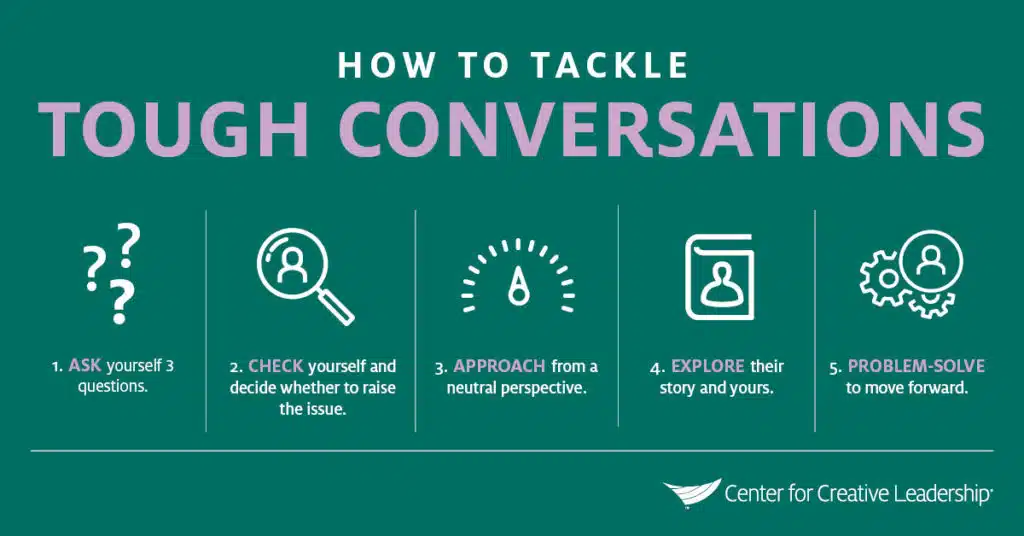
Furthermore, difficult conversations, whether they involve giving feedback on a project, addressing performance issues with a team member, or discussing sensitive topics like a change in company policy, are integral to personal and professional growth. Avoiding these conversations can lead to unresolved problems, decreased morale, and a lack of accountability. Conversely, approaching them with empathy, clarity, and a solution-oriented mindset can strengthen relationships, build trust, and create a more resilient workforce.
Navigating conflict and difficult conversations is not just a managerial skill but a strategic business imperative. It’s a responsibility that falls on the shoulders of every leader, manager, and employee. Organizations that invest in developing these competencies are better positioned to harness the potential of their teams, foster a culture of continuous improvement, and navigate the complexities of today’s business environment. The business case for effective conflict management and communication strategies underscores the importance of proactive and thoughtful engagement in resolving disputes and driving positive outcomes.
Conflict Management: The Key to Building Trust and Nurturing High-Performing Teams
Conflict management is often viewed negatively as something to be avoided or minimized. However, it’s important to reframe this view. Effective conflict management is not just necessary; it’s a powerful tool for building trust and nurturing high-performing teams. When managed well, conflict can become a constructive force that strengthens relationships, fosters innovation, and drives a team towards more significant achievements. This reframing can help the audience feel reassured and confident in managing conflict effectively.
The Role of Conflict in Team Dynamics
Conflict is inevitable in any team. Diverse teams bring together individuals with different backgrounds, perspectives, and working styles, naturally leading to disagreements and disputes. However, it is essential to recognize that conflict, in itself, is not detrimental. What matters is how the conflict is handled. When addressed openly and constructively, conflict can lead to better understanding among team members, enhanced problem-solving capabilities, and improved decision-making.
Effective conflict management helps to ensure that disagreements do not fester or escalate into more severe issues that could disrupt team cohesion. By addressing conflicts promptly and fairly, leaders can prevent the formation of cliques, reduce the spread of negative emotions, and maintain a positive and collaborative team environment.
Building Trust Through Conflict Management
Trust is the foundation of any high-performing team. Trust is necessary for team members to be more likely to share ideas, take risks, or support one another, all essential for achieving high performance. Effective conflict management plays a crucial role in building and maintaining this trust.
Trust is a critical element of effective conflict management. When team members see that conflicts are handled fairly and transparently, their trust in the leadership and each other increases. This trust encourages open communication and collaboration as team members become more confident that their concerns will be heard and addressed. This emphasis on trust can make the audience feel secure and confident in their team dynamics.
Additionally, managing conflict well demonstrates a commitment to the team’s well-being and success. It shows that the leader is willing to confront and work through complex issues rather than avoiding them or sweeping them under the rug. This approach builds trust and sets a standard for how team members should interact with each other, fostering a culture of mutual respect and accountability.
Nurturing High-Performing Teams Through Constructive Conflict
High-performing teams are characterized by their ability to navigate challenges and leverage their collective strengths to achieve outstanding results. Constructive conflict management, which involves encouraging healthy debate and ensuring that differing viewpoints are considered, is a crucial enabler. It helps teams avoid groupthink, identify potential pitfalls, and arrive at more robust solutions.
Moreover, when conflicts are managed constructively, they foster a learning environment where team members feel safe expressing their ideas and learning from their mistakes. This concept of ‘psychological safety’ is critical for creativity and innovation, as it allows individuals to take risks and push the boundaries of what is possible without fear of reprisal.
Effective conflict management also contributes to higher levels of engagement and job satisfaction. When team members feel that their contributions are valued and that conflicts are resolved fairly and respectfully, they are more likely to be committed to the team’s goals and motivated to perform at their best. This, in turn, leads to higher levels of productivity and overall team performance.
In conclusion, conflict management is indispensable for building trust and nurturing high-performing teams. By addressing conflicts constructively and fairly, leaders can build trust, foster open communication and mutual respect, and create an environment where team members feel empowered to contribute their best. In doing so, they resolve immediate issues and strengthen the team’s ability to collaborate, innovate, and achieve sustained success. Rather than viewing conflict as a threat, organizations should embrace it as an opportunity to grow stronger and more cohesive.
A Catalyst for Effective Conflict Management
Conflict is an inevitable aspect of team dynamics in the complex ecosystem of modern workplaces. Conflict is a natural byproduct of human interaction, whether from differing perspectives, competing interests, or simple misunderstandings. However, managing conflict can significantly impact an organization’s overall health. When approached effectively, conflict can be transformed from a potentially disruptive force into a catalyst for growth, stronger relationships, and enhanced team performance.
The Nature of Conflict in the Workplace
Conflict in the workplace often arises from the intersection of different ideas, values, or goals. It can manifest in various forms, from minor disagreements over task assignments to major departmental strategy disputes. While many instinctively view conflict as unfavorable, it is essential to recognize that it can lead to positive outcomes when managed well.
Conflict exposes underlying issues that might otherwise remain unaddressed. It brings to light differing perspectives, which can be instrumental in challenging the status quo and fostering innovation. When team members engage in healthy debate, they explore a more comprehensive range of options, often leading to better decision-making and problem-solving. Conversely, mishandling or ignoring conflict can lead to resentment, disengagement, and a breakdown in team cohesion.
Strengthening Relationships Through Conflict Management
One of the most significant benefits of effectively managing conflict is strengthening relationships within a team. When conflicts are addressed openly and constructively, individuals can better understand each other’s viewpoints, values, and motivations. This deeper understanding fosters mutual respect and empathy, which are essential for building strong, trusting relationships.
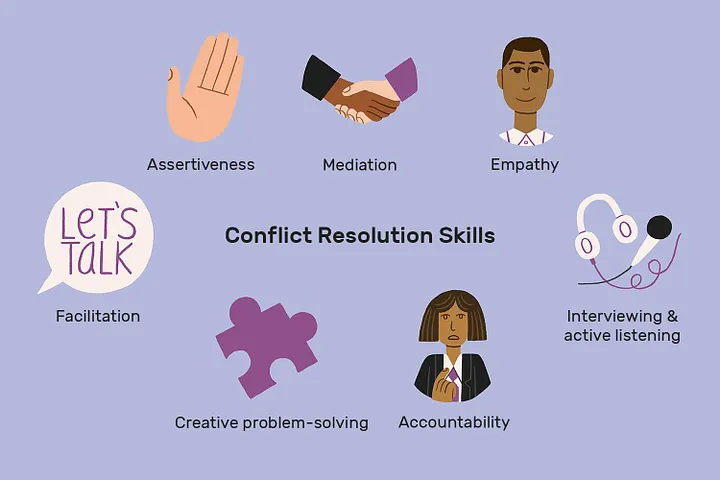
Effective conflict management requires a commitment to active listening and open dialogue. When team members feel heard and understood, they are more likely to feel valued and respected, even if their viewpoints differ. This sense of respect builds trust, which is the cornerstone of any strong relationship. Trust, in turn, encourages more open and honest communication, creating a positive feedback loop that further strengthens relationships.
When conflicts are resolved in a way that acknowledges the needs and concerns of all parties involved, it reinforces the idea that the team is committed to fairness and inclusivity. This approach helps to mend any rifts caused by the conflict and sets a precedent for how future conflicts should be handled. Over time, this can lead to a team culture where individuals feel safe to express their opinions and where differences are viewed as opportunities for growth rather than threats to unity.
Enhancing Open Communication Through Conflict Management
Open communication is a critical component of a high-performing team. It ensures that information flows freely, that team members are aligned with common goals, and that issues are addressed promptly. However, open communication can be challenging when conflict is avoided or poorly managed.
When conflict is mishandled, it can lead to a communication breakdown. Team members may become reluctant to share their thoughts or concerns, fearing backlash or further conflict. This can create an atmosphere of tension and mistrust, where individuals keep their true feelings hidden, and unresolved issues fester beneath the surface. In contrast, effective conflict management promotes a culture of openness and transparency.
By encouraging team members to voice their opinions and engage in constructive dialogue, leaders can create an environment where communication is open and honest. This involves addressing conflicts as they arise and fostering an ongoing conversation that allows for the early identification of potential issues. Regular team meetings, feedback sessions, and one-on-one check-ins can all contribute to a more open communication culture.
Furthermore, when conflicts are managed effectively, team members learn that it is safe to disagree and that their differing perspectives will be considered. This knowledge encourages open communication, as individuals feel more confident that their input will be valued. Over time, this leads to a more collaborative and innovative team dynamic, where ideas are freely exchanged, and the best solutions are identified through collective effort.
Creating a Harmonious Work Environment Through Conflict Resolution
A harmonious work environment is one in which team members feel supported, valued, and motivated to contribute their best work. However, achieving such an environment is challenging when unresolved conflicts are handled poorly. Unresolved conflicts can create a toxic atmosphere characterized by tension, resentment, and a lack of cooperation.
Effective conflict resolution is essential for maintaining harmony within a team. By addressing conflicts promptly and fairly, leaders can prevent minor disagreements from escalating into more significant issues that could disrupt the team’s cohesion. This proactive approach to conflict management helps to maintain a positive work environment where team members feel comfortable and supported.
Creating a harmonious work environment also involves fostering a culture of respect and inclusivity. When conflicts are resolved in a way that respects the needs and perspectives of all parties involved, it reinforces the idea that everyone’s contributions are valued. This inclusivity helps prevent future conflicts and encourages a more collaborative and cohesive team dynamic.
Additionally, a harmonious work environment is one where individuals feel psychologically safe to express themselves without fear of negative consequences. Effective conflict management is crucial in creating this sense of psychological safety. When team members know that conflicts will be handled fairly and constructively, they are more likely to speak up and contribute their ideas, leading to a more engaged and productive team.
Enhancing Team Cohesion and Performance Through Conflict Management
Team cohesion refers to the extent to which team members are united in pursuing common goals. It is a critical factor in a team’s overall performance, as cohesive teams are likelier to work together effectively, communicate openly, and support one another. However, team cohesion can be severely undermined by poorly managed conflict.
When conflicts are left unresolved, they can create divisions within a team, leading to a lack of trust and cooperation. This can result in a fragmented team dynamic, where individuals focus more on their interests than the team’s collective goals. In contrast, effective conflict management enhances team cohesion by addressing and resolving issues that could otherwise drive a wedge between team members.
Effective conflict management helps build a strong sense of unity within the team by promoting open communication, mutual respect, and a commitment to fairness. Team members who feel their voices are heard and their concerns are addressed are more likely to be committed to the team’s success. This commitment translates into greater cooperation, higher trust, and a willingness to go the extra mile for the team.
Moreover, effective conflict management contributes to a more innovative and agile team. When conflicts are managed constructively, team members are more likely to engage in healthy debate and challenge each other’s ideas. This can lead to better decision-making, as the team can consider a broader range of perspectives and identify the best possible solutions. In this way, conflict can be a driving force behind a team’s success when managed well.
Leadership’s Role in Conflict Management
Leadership plays a critical role in effectively managing conflict within a team. Leaders set the tone for how conflict is perceived and handled, and their approach to conflict management can profoundly impact the team’s overall dynamic.
Influential leaders recognize that conflict is an inevitable part of team life and that, if managed well, it can be a powerful tool for growth. They create an environment where conflicts are seen as opportunities for improvement rather than as threats to team cohesion. This involves promoting a culture of open communication, where team members feel safe to express their opinions and where differences are valued.
Leaders must also be skilled in conflict resolution techniques, such as active listening, mediation, and negotiation. Addressing conflicts promptly and reasonably can prevent minor issues from escalating into more significant problems. Furthermore, by modeling constructive conflict management behavior, leaders can set a positive example for their team members, encouraging them to approach conflicts similarly.
In addition, leaders should provide their teams with the tools and training needed to manage conflict effectively. This might include conflict resolution workshops, communication skills training, or team-building exercises. By investing in developing these skills, leaders can empower their teams to handle conflicts independently, leading to a more resilient and self-sufficient team.
Effective conflict management is essential for building stronger relationships, fostering open communication, and creating a harmonious work environment. When conflicts are addressed constructively, they can lead to a deeper understanding among team members, enhanced trust, and a more cohesive and high-performing team. In contrast, poorly managed conflict can lead to communication breakdowns, a toxic work environment, and a lack of team cohesion.
Leaders play a crucial role in shaping how conflict is managed within a team. By promoting a culture of open communication, fairness, and respect and equipping their teams with the necessary conflict-resolution skills, leaders can turn potential sources of discord into opportunities for growth and improvement. In doing so, they resolve immediate conflicts and lay the groundwork for a more collaborative, innovative, and successful team dynamic.
Effective conflict management is not just about resolving disputes; it is about building a strong, united team capable of overcoming challenges, embracing diversity, and achieving its full potential. These qualities distinguish high-performing teams in today’s complex and fast-paced business environment. Therefore, organizations prioritizing conflict management as a critical component of their team development strategy are better positioned to thrive long-term.

Case Study: Conflict Management at Intel Corporation
Background:
Intel Corporation, one of the world’s leading semiconductor companies, has a long history of driving technological innovation. However, the path to success in such a rapidly evolving industry is often fraught with challenges, including internal conflicts. Intel’s ability to manage conflict effectively, particularly during its transformational periods, has been a critical factor in maintaining its competitive edge and achieving long-term success.
The Rise of Conflict During Strategic Shifts:
In the 1980s, Intel faced a critical strategic decision that sparked significant internal conflict. The company, which had been a leader in the production of memory chips (DRAM), was being squeezed by aggressive competition from Japanese manufacturers. Intel’s leadership, including CEO Andy Grove and co-founder Gordon Moore, faced a dilemma: continue to compete in the increasingly commoditized memory market or pivot to focus on microprocessors. Intel had seen early success in developing the x86 architecture in this area.
This decision took much work. Many within Intel were deeply invested in the memory business, its primary focus since its inception. The shift to microprocessors represented a significant change in strategy and threatened to upend the careers of many employees who had specialized in memory technology. As a result, the debate within Intel became heated, with strong opinions on both sides.
Effective Conflict Management and Decision-Making:
Andy Grove, known for his assertive yet pragmatic leadership style, recognized the importance of addressing this conflict head-on. He understood avoiding difficult conversations and disagreements would only lead to indecision and stagnation. Instead, Grove facilitated candid discussions with Intel’s senior leadership team, encouraging open debate about the company’s future direction.
One of the pivotal moments in these discussions was what Grove referred to as the “revolutionary” decision-making process. During a particularly intense meeting, Grove asked his team to consider what they would do if fired, and their replacements had to decide. This reframing helped the team detach from personal biases and legacy thinking, allowing them to focus on what was best for Intel’s future. Ultimately, the decision was made to exit the memory business and fully commit to microprocessors, which would later be seen as one of the most significant strategic pivots in the company’s history.
Training and Support for Managing Conflict:
Intel’s culture, particularly under Grove’s leadership, strongly emphasized what he called “constructive confrontation.” Employees were encouraged to challenge ideas and engage in vigorous debate, but always to find the best solution for the company. To support this, Intel invested in training programs focused on communication skills, negotiation, and conflict resolution. These programs helped employees learn how to handle conflicts in a productive rather than destructive way.
Furthermore, Intel implemented clear communication protocols that ensured all voices were heard during discussions, particularly in critical decision-making processes. This approach helped manage conflicts more effectively and fostered a culture of accountability, where employees felt responsible for contributing to the company’s success.
Impact on Innovation and Growth:
Despite the intense internal conflict it generated, shifting away from memory chips and focusing on microprocessors proved to be a turning point for Intel. The company’s microprocessor business increased, and Intel became the dominant player in the global CPU market, powering most personal computers worldwide. This strategic pivot laid the foundation for decades of growth and cemented Intel’s position as a technology leader.
Intel’s ability to manage conflict effectively during this period also impacted its organizational culture. The practice of constructive confrontation became ingrained in Intel’s DNA, helping the company navigate future challenges and maintain its innovative edge. Employees learned that conflict, when handled appropriately, could lead to better decision-making and drive the company forward.
Handling Difficult Conversations:
Intel’s leadership also demonstrated a commitment to transparency and openness in handling difficult conversations, particularly around the company’s strategic direction. When the decision was made to exit the memory business, it was communicated clearly and directly to the employees, focusing on explaining the rationale behind the decision and what it meant for the company’s future.
This approach helped to mitigate some of the negative emotions that could have arisen from such a significant shift. By addressing concerns openly and supporting those affected, Intel maintained morale and retained key talent even as it dramatically changed its business strategy.
Results:
The success of Intel’s conflict management strategies is evident in the company’s subsequent performance. The decision to focus on microprocessors led to explosive growth in the PC era, with Intel’s processors becoming the standard for personal computers globally. This strategic shift, enabled by effective conflict management, positioned Intel for long-term success and allowed it to capitalize on the rapid expansion of the technology industry.
Intel’s culture of constructive confrontation and open dialogue continues to be a strength of the company, enabling it to adapt to new challenges and maintain its position as a leader in the semiconductor industry. The company’s experience during this critical period underscores the importance of managing conflict effectively, particularly when making strategic decisions that will shape the future of the business.
Conclusion:
Intel’s handling of internal conflict during its strategic pivot in the 1980s is a powerful example of how conflict, when managed effectively, can catalyze positive change. By fostering a culture of constructive confrontation, investing in conflict resolution training, and maintaining open communication, Intel navigated a complex decision-making process and emerged as a stronger, more innovative company. This case study highlights the importance of viewing conflict as an opportunity for growth and underscores the role of effective conflict management in achieving long-term business success.

Exercise: Reflecting on Conflict Management in the Workplace
• What was the nature of the conflict?
• How was the conflict initially addressed (or not addressed)?
• What were the outcomes of the conflict (positive or negative)?
• Was the conflict addressed in a timely and constructive manner?
• Were all parties allowed to express their perspectives?
• How did communication play a role in resolving (or escalating) the conflict?
• Were empathy and understanding evident in the resolution process?
• Did the resolution align with the organization’s values and goals?
• What alternative strategies could have been used to manage the conflict effectively?
• How could clear communication protocols, empathy, and a focus on solutions have improved the situation?
• What role could training in conflict resolution have played in this scenario?
• What specific conflict management skills do you need to develop or strengthen?
• How will you ensure that you address conflicts proactively and constructively?
• What steps will you take to foster open communication and build trust in your team or workplace?

Course Manual 12: Human-Centered Leadership
Today, the role of leadership has become increasingly complex and multifaceted. Among the myriad of leadership styles, human-centered leadership has emerged as a powerful approach that emphasizes empathy, inclusivity, and a deep understanding of the human aspect of organizations. This leadership style is not just a choice, but a strategic imperative in this dynamic landscape. Unlike traditional leadership models prioritizing short-term gains and productivity metrics, human-centered leadership focuses on employees’ well-being, development, and engagement, fostering an environment where individuals can thrive. This approach not only addresses the immediate needs of the workforce but also lays a foundation for sustainable long-term success.
Human-centered leadership is rooted in the belief that people are an organization’s most valuable asset. Leaders who adopt this style play a pivotal role in prioritizing their team members’ needs, aspirations, and personal growth. By cultivating a workplace culture that values and respects each individual’s contribution, these leaders inspire loyalty, enhance job satisfaction, and reduce turnover. In turn, this leads to a more engaged and motivated workforce, which is essential for innovation, creativity, and the sustained performance of the organization.
However, sustaining human-centered leadership over the long term requires more than good intentions. It necessitates a strategic commitment from the top levels of the organization, embedding these principles into the very fabric of the company’s operations, policies, and culture. This includes rethinking measuring success and shifting from purely financial metrics to considering employee satisfaction, diversity, and social impact. For instance, success could be measured by the number of employees who feel their voices are heard, the diversity of the workforce, or the company’s contribution to the community. Moreover, it involves equipping leaders at all levels with the skills and mindsets necessary to lead with empathy, inclusivity, and emotional intelligence.
In addition, organizations must recognize the evolving needs of their workforce, especially in an era where work-life balance, mental health, and purpose-driven careers are becoming increasingly important. Leaders attuned to these shifts and adapt their leadership style accordingly are more likely to build resilient teams that weather challenges and drive long-term success. Furthermore, fostering a human-centered approach can enhance the organization’s reputation, attract top talent, and position the company as a leader in corporate social responsibility.
In conclusion, sustaining human-centered leadership is not merely a leadership choice but a strategic imperative for businesses aiming for long-term success. By prioritizing the human elements within an organization, leaders can create a thriving, innovative, and resilient business that stands the test of time.
Embedding Human-Centered Leadership in Decision-Making for Sustainable Success
In an increasingly complex and dynamic business landscape, organizations recognize the critical importance of human-centered leadership. This leadership style prioritizes empathy, inclusivity, and the well-being of employees, aligning the organization’s goals with its people’s needs and aspirations. However, to reap the full benefits of human-centered leadership, its sustainability must be factored into the organization’s critical decisions. This integration ensures that human-centered practices are not just momentary initiatives but are embedded in the organization’s long-term strategy, culture, and decision-making processes.
Strategic Alignment with Organizational Goals
For human-centered leadership practices to be sustainable, they must be strategically aligned with the organization’s broader goals. This involves incorporating these practices into the organization’s vision, mission, and values. By doing so, companies can ensure that human-centered leadership is not viewed as a separate or secondary initiative but as an integral part of achieving organizational success. This alignment ensures that decisions at all levels of the organization are made with a clear understanding of their impact on the workforce.
Embedding Human-Centered Practices in Organizational Culture
Sustaining human-centered leadership also requires embedding these practices into the organizational culture. This involves cultivating a culture where empathy, inclusivity, and respect are valued and practiced by everyone, from top executives to frontline employees. To achieve this, organizations should invest in leadership development programs that equip leaders with the skills and mindsets necessary to lead with empathy and emotional intelligence. Companies should establish clear policies and practices that support work-life balance, diversity and inclusion, and employee well-being.
A robust and human-centered culture sustains leadership practices and attracts and retains top talent. Employees are likelier to stay with organizations where they feel valued and respected. A positive organizational culture can also enhance the company’s reputation, making it an employer of choice in a competitive job market.
Incorporating Human-Centered Leadership into Decision-Making Processes
To ensure that human-centered leadership practices are sustainable, they must be incorporated into the organization’s decision-making processes. Every significant decision related to strategy, operations, or finance should be evaluated for its impact on employees and the broader organizational culture. This can be done by creating decision-making frameworks that explicitly consider the human impact of each option. For example, companies should assess the financial implications and how the changes will affect employee morale, engagement, and productivity when considering a significant restructuring. Similarly, when introducing new technologies or processes, leaders should consider how these changes will impact employees’ day-to-day experiences and take steps to mitigate any adverse effects.
Incorporating human-centered considerations into decision-making is a crucial aspect of sustaining these leadership practices. It fosters a culture of transparency and open communication. Leaders should actively seek input from employees at all levels, ensuring that their voices are heard and their concerns are addressed. This inclusive approach improves the quality of decisions, builds trust, and strengthens the relationship between leadership and the workforce.
Continuous Evaluation and Adaptation
Sustaining human-centered leadership practices requires continuous evaluation and adaptation. Organizations must regularly assess the effectiveness of their leadership practices and make adjustments as needed to respond to changing circumstances and evolving workforce needs. This might involve conducting regular employee surveys, reviewing leadership performance metrics, and staying attuned to external trends that could impact the organization. By remaining flexible and responsive, companies can ensure that their human-centered leadership practices remain relevant and effective over the long term.
Ensuring the sustainability of human-centered leadership practices is essential for organizations aiming to achieve long-term success. Companies can create an environment where employees thrive by aligning these practices with strategic goals, embedding them in organizational culture, incorporating them into decision-making processes, and continuously evaluating and adapting. This enhances organizational performance and positions the company as a leader in corporate social responsibility, attracting top talent and fostering innovation in an increasingly competitive landscape.
Embedding Human-Centered Leadership in Organizational Culture
In an era where the business environment is characterized by rapid change, global competition, and technological advancements, organizations increasingly recognize that their most valuable asset is their people. Human-centered leadership prioritizes employee well-being, development, and engagement and has emerged as a critical approach for sustaining long-term success. By embedding human-centered leadership into organizational culture, companies can create an environment where employees thrive, innovation flourishes, and the organization remains adaptable to future challenges. This essay explores the multifaceted benefits of human-centered leadership and how it serves as a cornerstone for enduring organizational success.
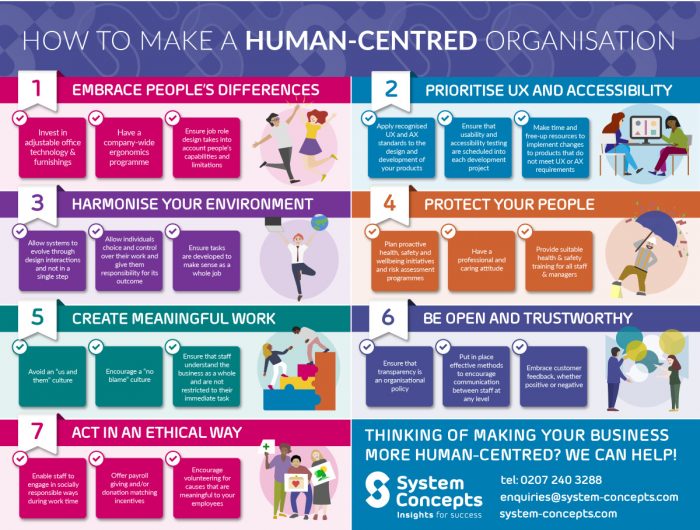
The Foundations of Human-Centered Leadership
Human-centered leadership is rooted in the understanding that people are at the heart of any successful organization. Unlike traditional leadership models that often emphasize hierarchical control and short-term financial gains, human-centered leadership focuses on fostering a culture of empathy, inclusivity, and collaboration. Leaders who adopt this approach prioritize their employees’ needs, aspirations, and growth, recognizing that a motivated and engaged workforce is essential for achieving long-term objectives.
The core principles of human-centered leadership include:
1. Empathy: Understanding and valuing employees’ perspectives, emotions, and challenges.
2. Inclusivity: Creating an environment where diverse voices are heard, respected, and integrated into decision-making processes.
3. Empowerment: Providing employees with the autonomy, resources, and support they need to excel in their roles.
4. Collaboration: Encouraging teamwork and open communication across all levels of the organization.
5. Adaptability: Cultivating a culture responsive to change and open to continuous learning.
Embedding Human-Centered Leadership into Organizational Culture
For human-centered leadership to have a lasting impact, it must be deeply embedded into the organizational culture. This involves more than just promoting certain behaviors or values—it requires a comprehensive integration of these principles into every aspect of the organization, from strategic decision-making to daily operations.
Aligning Leadership Practices with Organizational Values
The first step in embedding human-centered leadership is ensuring it aligns with the organization’s core values. These values should reflect a commitment to the well-being and development of employees and should be articulated and communicated throughout the organization. Leaders at all levels must embody these values in their actions, serving as role models for the behaviors and attitudes expected of all employees.
Moreover, these values should be reflected in the organization’s policies and practices. For example, performance management systems should be designed to recognize and reward individual achievements, collaborative efforts, and contributions to the team’s overall well-being. Similarly, recruitment and onboarding processes should emphasize cultural fit, ensuring that new hires are aligned with the organization’s human-centered values.
Creating a Supportive Environment for Employee Well-Being
A key component of human-centered leadership is creating a work environment that supports employees’ physical, mental, and emotional well-being. This can be achieved through various initiatives, such as offering flexible work arrangements, promoting work-life balance, and providing access to wellness programs. By addressing the holistic needs of employees, organizations can reduce burnout, increase job satisfaction, and enhance overall productivity.
In addition to these initiatives, leaders should foster a culture of psychological safety, where employees feel comfortable expressing their ideas, concerns, and feedback without fear of retribution. Psychological safety is crucial for innovation, as it encourages employees to take risks, share creative ideas, and experiment with new approaches. When employees feel safe and supported, they are more likely to contribute to the organization’s success.
Encouraging Continuous Learning and Development
Human-centered leadership recognizes that employee development is integral to the organization’s long-term success. To this end, organizations should invest in continuous learning and development opportunities to enhance employees’ skills, knowledge, and competencies. These can include formal training programs, mentoring and coaching, and opportunities for cross-functional collaboration.
Furthermore, organizations should create transparent and accessible pathways for career advancement for all employees. By supporting the professional growth of their workforce, organizations not only retain top talent but also build a pipeline of future leaders who are equipped to drive the organization forward.
Fostering a Culture of Innovation
Innovation is the lifeblood of any organization that seeks to remain competitive in a rapidly changing market. Human-centered leadership is critical in fostering a culture of innovation by empowering employees to think creatively, challenge the status quo, and explore new possibilities.
To embed innovation into the organizational culture, leaders should encourage experimentation and accept that failure is a natural part of the innovation process. This requires creating an environment where employees feel safe taking risks and learning from mistakes is valued more than avoiding them. Additionally, organizations should promote cross-disciplinary collaboration, as diverse perspectives often lead to more innovative solutions.
By embedding innovation into the culture, organizations can stay ahead of market trends, respond effectively to customer needs, and continuously improve their products, services, and processes.
The Long-Term Benefits of Human-Centered Leadership
Organizations that successfully embed human-centered leadership into their culture are well-positioned to achieve long-term success. This approach’s benefits extend beyond immediate improvements in employee engagement and productivity; they also contribute to the organization’s resilience, adaptability, and competitive advantage.
Thriving Employees as a Foundation for Success
At the heart of human-centered leadership is the belief that when employees thrive, the organization thrives. By prioritizing employee well-being and development, organizations create a more engaged, motivated, and committed workforce to achieving the organization’s goals. Thriving employees are more likely to go above and beyond in their roles, contribute innovative ideas, and stay with the organization for the long term.
Moreover, organizations known for their human-centered culture are more attractive to top talent. In today’s competitive job market, employees increasingly seek employers who align with their values and offer a supportive and inclusive work environment. By embedding human-centered leadership into their culture, organizations can differentiate themselves as employers of choice, attracting and retaining the best talent.
Innovation as a Driver of Competitive Advantage
Innovation is about creating new products or services, continuously improving, and adapting to changing circumstances. Organizations that foster a culture of innovation are better equipped to respond to market shifts, customer demands, and technological advancements. Human-centered leadership is crucial in driving innovation by creating an environment where employees feel empowered to explore new ideas, take risks, and collaborate across disciplines.
In the long term, a culture of innovation can provide a significant competitive advantage. Organizations that consistently innovate are likelier to lead their industries, capture new market opportunities, and sustain growth even in challenging economic conditions.
Adaptability and Resilience in the Face of Change
The business landscape constantly evolves, and organizations must be adaptable to survive and thrive. Human-centered leadership contributes to organizational adaptability by fostering a culture of continuous learning, collaboration, and open communication. When employees are encouraged to learn from their experiences, share their insights, and work together to solve problems, the organization becomes more agile and resilient in the face of change.
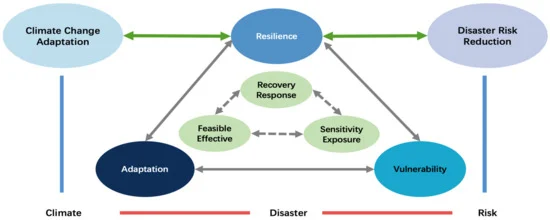
Additionally, human-centered leadership helps organizations navigate change more effectively by maintaining employee morale and engagement during times of transition. Leaders who prioritize the well-being of their employees and communicate transparently about changes are more likely to maintain trust and support within the organization, reducing the risk of disruption and resistance.
A Strong Organizational Reputation and Social Responsibility
Organizations that embed human-centered leadership into their culture often enjoy a more substantial internal and external reputation. Internally, employees who feel valued and supported are more likely to speak positively about their organization, contributing to a positive work environment and solid organizational loyalty. Externally, organizations that prioritize the well-being of their employees and demonstrate a commitment to social responsibility are more likely to earn the trust and loyalty of customers, partners, and the broader community.
In today’s socially conscious business environment, organizations are increasingly expected to demonstrate ethical leadership and social responsibility. Human-centered leadership aligns with these expectations by emphasizing the importance of people and society in business decision-making. By embedding these principles into their culture, organizations can enhance their reputation and build stronger stakeholder relationships.
Embedding human-centered leadership into organizational culture is a leadership strategy and a blueprint for long-term success. By creating an environment where employees thrive, innovation flourishes, and the organization remains adaptable to future challenges, human-centered leadership provides the foundation for sustained organizational growth and resilience. As organizations navigate the complexities of the modern business landscape, those prioritizing human-centered leadership will be best positioned to achieve enduring success.
In the long term, the benefits of human-centered leadership extend far beyond immediate improvements in employee engagement and productivity. They include a thriving workforce, a culture of innovation, increased adaptability, and a strong reputation—each contributing to the organization’s ability to compete and succeed in an ever-changing world. As such, embedding human-centered leadership into organizational culture is not merely a choice but a strategic imperative for any organization that aspires to long-term success.

Case Study: Human-Centered Leadership at Patagonia
Background:
Patagonia, an outdoor clothing and gear company, has long been recognized for its high-quality products and strong commitment to environmental sustainability and social responsibility. Founded by Yvon Chouinard in 1973, Patagonia has grown into a global brand while maintaining a deep commitment to human-centered leadership. This approach has been instrumental in ensuring the company’s long-term success and sustainability.
Human-Centered Leadership at Patagonia:
Patagonia’s leadership style is deeply rooted in its mission to “build the best product, cause no unnecessary harm, use business to inspire and implement solutions to the environmental crisis.” This mission reflects the company’s commitment to its employees, customers, and the planet. Patagonia’s human-centered leadership is characterized by empathy, inclusivity, and a focus on the well-being of its employees, aligning with the broader goals of environmental stewardship and social impact.
1. Empathy and Employee Well-Being:
Patagonia has consistently prioritized the well-being of its employees, recognizing that a satisfied and motivated workforce is crucial to the company’s success. For example, Patagonia offers on-site childcare at its headquarters, understanding that balancing work and family life is a significant challenge for many employees. This initiative supports working parents and fosters community and employee loyalty.
Additionally, Patagonia promotes a healthy work-life balance through flexible work hours and encourages employees to take time off to enjoy the outdoors, which aligns with the company’s core values. This approach has resulted in high employee satisfaction and retention levels and a solid organizational culture that reflects the company’s values.
2. Inclusivity and Diversity:
Patagonia’s commitment to inclusivity is evident in its efforts to create a diverse workforce and ensure that all employees feel valued and respected. The company has implemented hiring practices that promote diversity, including initiatives to increase the representation of women and people of color in its workforce.
Furthermore, Patagonia actively supports employee resource groups and diversity training programs, fostering an inclusive culture where different perspectives are welcomed and appreciated. This commitment to inclusivity is about meeting diversity metrics and creating a workplace where all employees can contribute fully to the company’s mission.
3. Social and Environmental Responsibility:
Patagonia’s human-centered leadership extends beyond its employees to its broader impact on society and the environment. The company is a leader in corporate social responsibility, consistently advocating for environmental causes and supporting grassroots activism. For example, Patagonia donates 1% of its sales to environmental organizations and has been a vocal advocate for protecting public lands.
This commitment to social and environmental responsibility resonates with employees who share these values, further strengthening their engagement and connection to the company. Patagonia’s leadership understands that aligning the company’s mission with the personal values of its employees can foster a more motivated and committed workforce.
4. Employee Empowerment and Innovation:
Patagonia empowers its employees to take initiative and drive innovation within the company. The company’s leadership encourages employees to propose new ideas and take ownership of projects that align with Patagonia’s mission. This empowerment has led to numerous innovations, such as developing new, more sustainable materials and launching Patagonia’s Worn Wear program, encouraging customers to repair and reuse their clothing rather than buy new products.
By fostering a culture of trust and empowerment, Patagonia’s leaders have created an environment where employees feel confident in taking risks and pursuing creative solutions. This approach not only drives innovation but also enhances employee satisfaction and engagement.
Sustaining Human-Centered Leadership:
Patagonia’s commitment to human-centered leadership is sustained through strategic alignment with the company’s goals and continuous evaluation of its practices. The company regularly assesses the impact of its policies on employee well-being. It adjusts its approach as needed to ensure that it continues to meet the evolving needs of its workforce.
Patagonia’s leadership is transparent and open about the company’s challenges, fostering trust and open communication across all levels of the organization. This transparency ensures employees are engaged in the company’s mission and understand how their work contributes to its broader goals.
Outcomes and Impact:
Patagonia’s human-centered leadership approach has significantly improved the company’s performance. The company has consistently been recognized as one of the best workplaces, with high employee satisfaction and low turnover rates. Patagonia’s commitment to its employees has also translated into strong brand loyalty among customers, who appreciate the company’s ethical values and social responsibility.
Financially, Patagonia has experienced sustained growth, with annual revenue exceeding $1 billion. This success is a testament to the company’s ability to balance profitability with its commitment to social and environmental impact. By prioritizing the well-being of its employees and aligning its business practices with its core values, Patagonia has built a resilient and innovative organization that is well-positioned for long-term success.
Conclusion:
Patagonia’s approach to human-centered leadership demonstrates that prioritizing empathy, inclusivity, and employee well-being can lead to sustained organizational success. By creating a supportive and engaging workplace culture, Patagonia has fostered a loyal and motivated workforce capable of driving innovation and contributing to the company’s mission. This case study illustrates that human-centered leadership is not just a leadership choice but a strategic imperative for businesses aiming to achieve long-term success in an increasingly complex and dynamic business environment.

Exercise: Exploring Human-Centered Leadership
1. Form Small Groups:
• Divide participants into small groups of 4-6 people. Each group will discuss the provided questions and share their insights.
2. Discuss Key Questions:
• In your groups, discuss the following questions. Ensure that everyone has the opportunity to share their thoughts and that the discussion remains focused on the topic.
3. Summarize and Share:
• After discussing all the questions, each group should summarize their key points and be prepared to share them with the larger group. If time permits, each group can present their discussion highlights to the entire session.
4. Reflect on the Discussion:
• After all groups have shared their insights, reflect briefly as a larger group. Discuss common themes that emerged, any differences in perspectives, and key takeaways that participants can apply in their leadership roles or organizations.
Project Studies
Project Study (Part 1) – Customer Service
The Head of this Department is to provide a detailed report relating to the Business Case process that has been implemented within their department, together with all key stakeholders, as a result of conducting this workshop, incorporating process: planning; development; implementation; management; and review. Your process should feature the following 12 parts:
01. Introduction To Human-Centered Leadership
02. The Science Behind Behavior
03. Building Clarity
04. Confidence Through Empowerment
05. Culture of Continuous Learning
06. Effective Feedback
07. Resilience and Adaptability
08. Building Trust
09. Leading with Empathy
10. Driving Innovation
11. Navigating Conflict
12. Human-Centered Leadership
Please include the results of the initial evaluation and assessment.
Project Study (Part 2) – E-Business
The Head of this Department is to provide a detailed report relating to the Business Case process that has been implemented within their department, together with all key stakeholders, as a result of conducting this workshop, incorporating process: planning; development; implementation; management; and review. Your process should feature the following 12 parts:
01. Introduction To Human-Centered Leadership
02. The Science Behind Behavior
03. Building Clarity
04. Confidence Through Empowerment
05. Culture of Continuous Learning
06. Effective Feedback
07. Resilience and Adaptability
08. Building Trust
09. Leading with Empathy
10. Driving Innovation
11. Navigating Conflict
12. Human-Centered Leadership
Please include the results of the initial evaluation and assessment.
Project Study (Part 3) – Finance
The Head of this Department is to provide a detailed report relating to the Business Case process that has been implemented within their department, together with all key stakeholders, as a result of conducting this workshop, incorporating process: planning; development; implementation; management; and review. Your process should feature the following 12 parts:
01. Introduction To Human-Centered Leadership
02. The Science Behind Behavior
03. Building Clarity
04. Confidence Through Empowerment
05. Culture of Continuous Learning
06. Effective Feedback
07. Resilience and Adaptability
08. Building Trust
09. Leading with Empathy
10. Driving Innovation
11. Navigating Conflict
12. Human-Centered Leadership
Please include the results of the initial evaluation and assessment.
Project Study (Part 4) – Globalization
The Head of this Department is to provide a detailed report relating to the Business Case process that has been implemented within their department, together with all key stakeholders, as a result of conducting this workshop, incorporating process: planning; development; implementation; management; and review. Your process should feature the following 12 parts:
01. Introduction To Human-Centered Leadership
02. The Science Behind Behavior
03. Building Clarity
04. Confidence Through Empowerment
05. Culture of Continuous Learning
06. Effective Feedback
07. Resilience and Adaptability
08. Building Trust
09. Leading with Empathy
10. Driving Innovation
11. Navigating Conflict
12. Human-Centered Leadership
Please include the results of the initial evaluation and assessment.
Project Study (Part 5) – Human Resources
The Head of this Department is to provide a detailed report relating to the Business Case process that has been implemented within their department, together with all key stakeholders, as a result of conducting this workshop, incorporating process: planning; development; implementation; management; and review. Your process should feature the following 12 parts:
01. Introduction To Human-Centered Leadership
02. The Science Behind Behavior
03. Building Clarity
04. Confidence Through Empowerment
05. Culture of Continuous Learning
06. Effective Feedback
07. Resilience and Adaptability
08. Building Trust
09. Leading with Empathy
10. Driving Innovation
11. Navigating Conflict
12. Human-Centered Leadership
Please include the results of the initial evaluation and assessment.
Project Study (Part 6) – Information Technology
The Head of this Department is to provide a detailed report relating to the Business Case process that has been implemented within their department, together with all key stakeholders, as a result of conducting this workshop, incorporating process: planning; development; implementation; management; and review. Your process should feature the following 12 parts:
01. Introduction To Human-Centered Leadership
02. The Science Behind Behavior
03. Building Clarity
04. Confidence Through Empowerment
05. Culture of Continuous Learning
06. Effective Feedback
07. Resilience and Adaptability
08. Building Trust
09. Leading with Empathy
10. Driving Innovation
11. Navigating Conflict
12. Human-Centered Leadership
Please include the results of the initial evaluation and assessment.
Project Study (Part 7) – Legal
The Head of this Department is to provide a detailed report relating to the Business Case process that has been implemented within their department, together with all key stakeholders, as a result of conducting this workshop, incorporating process: planning; development; implementation; management; and review. Your process should feature the following 12 parts:
01. Introduction To Human-Centered Leadership
02. The Science Behind Behavior
03. Building Clarity
04. Confidence Through Empowerment
05. Culture of Continuous Learning
06. Effective Feedback
07. Resilience and Adaptability
08. Building Trust
09. Leading with Empathy
10. Driving Innovation
11. Navigating Conflict
12. Human-Centered Leadership
Please include the results of the initial evaluation and assessment.
Project Study (Part 8) – Management
The Head of this Department is to provide a detailed report relating to the Business Case process that has been implemented within their department, together with all key stakeholders, as a result of conducting this workshop, incorporating process: planning; development; implementation; management; and review. Your process should feature the following 12 parts:
01. Introduction To Human-Centered Leadership
02. The Science Behind Behavior
03. Building Clarity
04. Confidence Through Empowerment
05. Culture of Continuous Learning
06. Effective Feedback
07. Resilience and Adaptability
08. Building Trust
09. Leading with Empathy
10. Driving Innovation
11. Navigating Conflict
12. Human-Centered Leadership
Please include the results of the initial evaluation and assessment.

Project Study (Part 9) – Marketing
The Head of this Department is to provide a detailed report relating to the Business Case process that has been implemented within their department, together with all key stakeholders, as a result of conducting this workshop, incorporating process: planning; development; implementation; management; and review. Your process should feature the following 12 parts:
01. Introduction To Human-Centered Leadership
02. The Science Behind Behavior
03. Building Clarity
04. Confidence Through Empowerment
05. Culture of Continuous Learning
06. Effective Feedback
07. Resilience and Adaptability
08. Building Trust
09. Leading with Empathy
10. Driving Innovation
11. Navigating Conflict
12. Human-Centered Leadership
Please include the results of the initial evaluation and assessment.

Project Study (Part 10) – Production
The Head of this Department is to provide a detailed report relating to the Business Case process that has been implemented within their department, together with all key stakeholders, as a result of conducting this workshop, incorporating process: planning; development; implementation; management; and review. Your process should feature the following 12 parts:
01. Introduction To Human-Centered Leadership
02. The Science Behind Behavior
03. Building Clarity
04. Confidence Through Empowerment
05. Culture of Continuous Learning
06. Effective Feedback
07. Resilience and Adaptability
08. Building Trust
09. Leading with Empathy
10. Driving Innovation
11. Navigating Conflict
12. Human-Centered Leadership
Please include the results of the initial evaluation and assessment.

Project Study (Part 11) – Logistics
The Head of this Department is to provide a detailed report relating to the Business Case process that has been implemented within their department, together with all key stakeholders, as a result of conducting this workshop, incorporating process: planning; development; implementation; management; and review. Your process should feature the following 12 parts:
01. Introduction To Human-Centered Leadership
02. The Science Behind Behavior
03. Building Clarity
04. Confidence Through Empowerment
05. Culture of Continuous Learning
06. Effective Feedback
07. Resilience and Adaptability
08. Building Trust
09. Leading with Empathy
10. Driving Innovation
11. Navigating Conflict
12. Human-Centered Leadership
Please include the results of the initial evaluation and assessment.

Project Study (Part 12) – Education
The Head of this Department is to provide a detailed report relating to the Business Case process that has been implemented within their department, together with all key stakeholders, as a result of conducting this workshop, incorporating process: planning; development; implementation; management; and review. Your process should feature the following 12 parts:
01. Introduction To Human-Centered Leadership
02. The Science Behind Behavior
03. Building Clarity
04. Confidence Through Empowerment
05. Culture of Continuous Learning
06. Effective Feedback
07. Resilience and Adaptability
08. Building Trust
09. Leading with Empathy
10. Driving Innovation
11. Navigating Conflict
12. Human-Centered Leadership
Please include the results of the initial evaluation and assessment.
Program Benefits
Management
- Empathy
- Adaptability
- Communication
- Engagement
- Trust-building
- Conflict resolution
- Coaching skills
- Decision-making
- Team alignment
- Resilience
Human Resources
- Talent retention
- Cultural alignment
- Employee satisfaction
- Leadership development
- Enhanced engagement
- Diversity inclusion
- Conflict resolution
- Performance improvement
- Succession planning
- Workplace well-being
Information Technology
- Enhanced collaboration
- Adaptive problem-solving
- Innovation mindset
- Empowered teams
- Agile project management
- Improved communication
- Talent retention
- Leadership development
- Increased productivity
- Enhanced morale
Client Telephone Conference (CTC)
If you have any questions or if you would like to arrange a Client Telephone Conference (CTC) to discuss this particular Unique Consulting Service Proposition (UCSP) in more detail, please CLICK HERE.











